#and we love our traditional clothes and we love to see other nationalities people embrace our culture
Explore tagged Tumblr posts
Text
I don't know why the West and Europe hate to see Middle Eastrens embrace their culture and have a family values, I don't understand their hate towards something we value and proud of and I don't know why they try to change everything in Middle East, we love our traditions and culture and our life style we don't want your fake ass herosim, you need to focus what is happening in your countries first.
#middle east#arabs#muslims#west#europe#fake news#fake media#racisim#we love our families and we love togther in the same house what are you going to do about it?#and we love our traditional clothes and we love to see other nationalities people embrace our culture
4 notes
·
View notes
Note
How do you feel about Greek folk dress having so many Turkish elements? Considering how the Turks treated Greeks and other Balkan people it makes me a bit sad, to be honest. Is this stupid of me?
For starters, I don't think these elements are Turkish per se / solely Turkish... Let me explain. The Greek traditional clothing shares many elements with its neighboring nations and it's not only the Turks that have coins and headcovers. We have hundreds of different versions of Greek traditional clothing. I don't know where we adopted the coins from, but possibly the headcovers existed in the region before the Turks. (Even ancient Greek women veiled themselves). I haven't researched too much into that, this is just an observation. But even if some elements were 100% Turkish and slowly absorbed by Greeks, I don't have an issue with that either.
I understand why it gives you such a feeling, and I don't think it's dumb. I've felt this too at some point in the past, before I dive into our many different types of clothing. Seeing the differences between the regions but also the differences between Turkish and Greek traditional clothing gave me a sense of "oof! We were not assimilated, we carved our own cultural path despite the difficulties!" Not saying that there aren't common elements between Greek dress and the neighboring countries' dress, I am just saying I like the fact that you can still see the cultural stamp, that it wasn't erased by the conquerors. (I am sure some other nations feel this too)
I am also very happy about all of the common elements I've spotted, which further prove our past contact and relations. The clothing... it is what it is. It shows our shared history and moments of cultural exchange, creativity, and happiness. I am not excited about the centuries of occupation/slavery but on the microscale of things I've heard and read many old accounts where Greeks and Turks say/write "we lived like brothers". And there are absolutely plenty of Greeks and Turks who lived together in love and peace. When circumstances allow, we should search for the common elements and cultivate a feeling of brotherhood in this very divided part of the modern world. The "simple people" are "simple people" everywhere, and our attitudes are even more similar when we are neighbors.

Greek Cypriot priest and Turkish Cypriot imam in the 1940s, uploaded by Ertan Karpazli (source)
What this theitsa is saying to Greeks who feel a certain way about our clothing, wear what was handed down by our ancestors with pride because it arrived to you through hardships and moments of success. There is the implication of Turkish influence changing Greek clothing but also consider how many Greeks had happy moments while wearing their clothes, especially what we think as "staple traditional clothing" today that was usually worn in festivals, weddings, and other merry occasions. (The everyday clothing was much simpler, usually a blouse and a skirt)
You should, of course, remember the dark spots of the past but don't let them have power over you today, and don't let them hold you back from having your eyes on the present. These dark spots can't harm you now and it's not that you can do anything to change history. What is within your control is creating a better future by embracing similarities and having fun while at it. Work through the dysphoria, don't let it win, and reclaim / accept this dress as part of Greek history and your identity. This is what we have and, in my opinion, we need to safekeep it and honor it. Αν δεν παινεψεις το σπιτι σου, θα πεσει να σε πλακωσει, που λενε... Και συνήθως αυτο το σπιτι ειναι ολα οσα εχουμε
17 notes
·
View notes
Note
I am arab but I do not feel any connection to my language or culture. I feel this may be the cause of Arabic and arab culture being heavily intertwined with Islam. At best it is extremely difficult to disentangle these ties; it makes me dislike my own background. How could I love a language that was in turn loved by such hateful people? I don't feel like I ever want to be a part of it, but technically, I am part of it. I'm tied to this culture, language, and religion by blood, and I am certainly not proud of my ethnicity, my nationality, and the religion I was born into. Being Arabic ≠ being religious, I know, but I can't shake off the feeling that I'm not Arabian. I suppose growing up with Arabs who were all Muslims has put that idea in my head, that an arab is inherently religious.
The bottom line is, I do not feel, nor do I want to feel, associated with my culture, language, ethnicity, and even my family.
Do you feel the same?
How could I love a language that was in turn loved by such hateful people?
with this mindset idk how u can like almost any language. english? italian? spanish? french? russian? japanese? chinese? hindi? the list could go on forever. what makes arabic especially hateful to you? it has existed long before islam and is the language of many non-muslims too. arab christians have their own cultures and practices and yet they speak arabic. i just dont see arabic as somehow intrinsically related to islam, nor do i see my culture that way either. youre right that a lot of our culture has become so deeply intertwined with islam, but i honestly don't see traditions like eid to be hateful either. i dont see them as celebrating anything hateful either. many cultures of many european countries are also deeply intertwined with christianity, and yet even non-religious europeans i know i often see embracing christmas and easter, for example. so i dont see anything wrong w embracing religiously-rooted traditions like ramadan or eid either. i love that eid involves getting together w the family, giving money, generosity, often new / nice clothing n dressing up, + specific special dishes. i love that for ramadan we often will sit together and eat and watch a ramdan show + have special dishes, and that in ramadan many will go on the streets or from house to house to provide with homemade gifts or be generous in other ways. what i take issue with is when these practices are forced on others, like the fact that its illegal to eat in public in many countries before iftar in ramadan time.
overall no i dont really relate tbh. i come from a non-religious family, they dont strongly identify w arabness bc idk we're bahrani first & foremost and often they're shit talking about arabs. but i grew up with examples that made me separate my culture from islam. islam is something that was forced onto me outside my family and my friend circles nd family's friend's circles. the arabs i know drink and party and smoke and don't segregate by sex and wear non-"modest" clothing and get tattoos and piercings etc while also often times wearing abayas or thobes (my atheist grandpa used to always wear a thobe), or traditional bahraini attire, speaking arabic, etc so. idk. i just don't view it as an Islam Thing. i recognise that most arab cultures have become quite intertwined with islam, but i also see how our differences nd special traditions exist. we have girga3on in bahrain for example and this is a tradition specific to gulf countries + iraq. we have stuff like henna and we eat dishes like daal and these are all also my culture & show me our history as an island nation that was an instrumental trading area. we have pearl-diving and pearls and gold and many things that are so traditional to us but not at all related to islam but rather our specific area. all of this is still my culture. perfumes and spices and our dialect and the ancient dilmunian civilisation are my culture too and my heritage. these are the things i take pride in and wish will live on long after im gone. i dont consider praying 3-5 times a day, athaan, islamic beliefs, etc to be my culture, and i don't hate my heritage or want to disconnect myself from it bc of that. i was always simply born muslim, but i am bahrani and i always will be regardless of my beliefs.
3 notes
·
View notes
Text
KW 2021: Blending Cultures
Day 2 for Kataang Week 2021 hosted by @kataang-week with the prompt Blending Cultures!
Definitely one of my better oneshots this week, mildly inspired by that one tumblr post talking about how the cloudbabies' mixed heritage should've been more highlighted in LoK. Hope I did it justice!
Links: AO3 | FF.net
Summary: Another year, another summer, another week of prompts celebrating our favorite couple. Kataang Week 2021 Day 2: Blending Cultures. Aang and Katara were from two very different cultures, but they made their family work anyways.
Word Count: 2.6K
The Air Nation and the Water Tribes.
Two extremely versatile societies, with rich cultures and very diverse people.
From these two societies came two very special people, who against all odds managed to create a beautiful life together: Avatar Aang from the Southern Air Temple and Master Katara from the Southern Water Tribe.
From the very start, Aang and Katara intertwined their traditions in ways not many believed were possible in the fresh post-war era.
Their wedding, the beginning of their family, had been the grandest event in over a century for both nations given that the war had prevented such festivities during its reign of terror. That day was to be a sign of healing, of peace, and of celebration as their friends and family from all four nations came together at Air Temple Island in honor of love.
Aang had been standing at the marble altar in long flowing robes of the brightest yellows, reds, and oranges. The warm smile on his face complimented the warm hues of his clothing, and a string of engraved wooden beads and thread tassels adorned his neck.
Katara, on the other hand, looked like the night to his day, wearing a deep, dark blue dress passed down from her mother. It had golden thread embroidered on the bodice and skirt to mimic the constellations sailors used to navigate the icy waters surrounding her home, and, in Aang’s opinion, it gave her an absolutely ethereal presence.
Bouquets of ice lilies, pink flowers that grew near the Southern Spirit Oasis, intermingled with the flowers of moon peaches grown at the Air Temples lined the halls of the temple as the bride and groom’s loved ones watched them perform each nation’s respective wedding customs.
As per Air Nomad tradition, the week before the wedding, Aang and Katara had visited the four air temples and meditated in front of each of the eternal tornadoes in hopes that the cardinal wind spirits would guide them in the right direction no matter where life led.
The pair had also gotten complimentary tattoos on their backs, right over their hearts (slightly above in Aang’s case due to his scar): yin for Aang and yang for Katara, to symbolize how they balanced each other and created harmony.
When they stood on the altar, their officiator, Hakoda, had tied three sacred red strings around their ring fingers. They were woven from plants growing around Aang’s original home, the Southern Air Temple, and symbolized the red thread of fate binding them to each other, their soulmates. The strings also stood for the three tenets of a successful marriage: trust, communication, and love, all of which they had plenty of.
The second part of the ceremony incorporated the Southern Water Tribe traditions. Around Katara’s neck rested her mother’s necklace, the symbol for water on one side and the symbol for air on the other, an addition by Aang (with her permission of course) so that she would never have to choose between wearing one pendant or the other.
After their hands had been binded by the threads, their two chosen tribal elders, Pakku and Kanna, stepped up with wooden bowls of navy paint in hand and gave them their marks from ice dodging all those years ago. Katara, once again, received a crescent moon in the center of her forehead, the Mark of the Brave, while Aang was given the Mark of the Trusted, a slightly curved arch that barely touched the tip of his arrow.
“Aang and Katara,” Hakoda began, “Your two marks show that you are the embodiment of bravery and honesty, and these traits will do you well in the years to come. You will always have courage and trust in one another, as those are your natural inclinations, but you must take care to incorporate logic and wisdom into your interactions and decisions with one another to remain as steadfast and stable as the undulations of the great ocean.”
He turned to the enraptured airbender, who was unable to tear his gaze away from his soon-to-be wife.
“Do you, Avatar Aang of the Air Nomads, vow to trust Katara, to accept, learn from, and return her courage and bravery, to love her through wind and hail, through blizzards and storms, in times of plenty and of scarcity, for as long as the moon guides the sea’s waves to shore?”
“I do.”
Hakoda smiled and turned to his daughter.
“And do you, Master Katara of the Southern Water Tribe, vow to have courage for Aang, to accept, learn from, and return his trust and honesty, to love him through wind and hail, through blizzards and storms, in times of plenty and of scarcity, for as long as moon guides the sea’s waves to shore?”
“I do.”
“Then let the spirits of our ancestors, the great Tui and La, and the cardinal wind spirits bear witness to this union and bless it as they have with all those before.”
Hakoda, Pakku, and Kanna all dipped their fingers into a small bowl of water from the Spirit Oasis and sprinkled it over the couple.
“You are now husband and wife. Welcome to the family, son.”
Aang and Katara both smiled widely and pulled each other into a tight embrace.
“We’re married,” the airbender whispered incredulously.
“I know,” she said back. “I was there.”
He laughed and swept her up in a kiss, taking care not to mess up her ornate braids as he closed the distance between them.
“I love you,” he murmured when they finally parted.
“I should hope so, you did just vow to love me no matter what.”
Aang rolled his eyes and pouted. “I’m trying to be sweet here, the least you could do is return the favor.”
Katara gave him an exaggerated sigh and rested her head on his chest, her arms draped around his neck and she closed her eyes in contentment.
“I love you too, Aang. Forever and always.”
“See now that’s more like it!” he grinned, making the waterbender chuckle.
“All that planning, all the months of stress and doing overtime to get the next two weeks off and planning and the wedding invitations and did I mention the planning?” The two shared a short laugh. “All of that and we’re finally here. We’re married. What do we do now? Where do we go from here?”
“Slow down there, Tara. We have the rest of our lives together to figure all that out. Let’s stay in the moment.”
“Rest of our lives. I like the sound of that,” she smiled.
“I did promise you that we would grow old together, did I not? I intend on seeing that through. For now though, the buffet will be starting and I’m famished. Let’s go eat!”
“You sound like Sokka,” she deadpanned, an amused glint in her eyes nevertheless. “Lead the way, my dear husband.”
The airbender gallantly gestured to where the rest of the crowd had already started heading. “But of course, my lovely wife.”
The banquet, like their wedding, was an exquisite culmination of food from all over. There were countless Air Nomad and Water Tribe dishes present, in addition to a few from the Earth Kingdom and Fire Nation like bean curd puffs, mochi, and, of course, Aang’s personal favorite, egg custard tarts.
Though Aang had reassured his bride during the wedding planning that she could arrange for as many meat dishes as she liked for her Water Tribe family, Katara had declined, saying that they could go without it for one day.
Instead, the feast had traditional southern foods like kale cookies, five flavor soup, sea prune stew (which Aang took extra care to avoid), and a new dessert that Sokka had been working on: spun sugar in the shape of a ball that he liked to call “cotton candy”.
The guests attending were especially excited for the Air Nomad cuisine present, as such a variety of foods from their culture hadn’t been seen in over a century. Vegetable-filled dumplings and bowls of savory mung bean curry sat on round platforms that rotated in the center of the tables. Golden platters held coconut macaroons, warm steamed buns, and a large variety of fruit pies made from the trees that grew on the mountainside next to the temples. There was also a special syrup made from maple trees that went over a fluffy Earth Kingdom delicacy called “pancakes.”
Everyone had an absolutely grand time, and the event was one talked about for quite some time to come, both with its political significance (the Avatar’s wedding wasn’t something that happened every day) and the symbolism it had for how the nations themselves could work together if they tried to create something beautiful.
The way Aang and Katara’s traditions mixed that very first day of their family was reflected throughout the rest of their life as they blended their cultures for their children.
Aang often took Bumi, Kya, and Tenzin to meditate by the lagoon for some tranquility and peace of mind. He reminded them of the importance of being open to new ideas and to look at things clearly and calmly. He helped them take on life as it came and have faith that they would always be led in the right direction by fate like a leaf being carried by the wind.
Katara also took the three to the lagoon on the southwest tip of the island, not so much to meditate but rather to observe the motion of ripples and the subtle movement of the water. She taught them to always have hope and to not be detached from their emotions. She wanted them to remain present in the moment, making sure they were aware of what they were feeling without being consumed by it- a delicate balance like the ebb and flow of the tides.
Once Bumi, Kya, and Tenzin each turned 14, their parents took them down to the South Pole for ice dodging, a Southern Water Tribe coming-of-age ceremony and rite of passage. As was tradition, their dad, Aang, was to take the three out on a wooden sailboat to navigate the treacherous and iceberg-filled waters of the Antarctic.
Though he wasn’t born in the Water Tribes, the airbender made sure to ask and learn all he could from Hakoda, Sokka, and Pakku so that he could pass on and perform those special father-child rituals.
No one was grinning wider than Aang when he awarded Bumi the Mark of the Brave for preventing the boat from capsizing, his heart had overflowed with joy giving Kya the Mark of the Trusted after she guided them through a narrow glacial pass, and he felt nothing but pure pride painting the Mark of the Wise on Tenzin’s freshly-tattooed arrow after his creative airbending solution to evade an ice blockade.
Despite his young age, Tenzin was an incredibly skilled airbender. Alongside Aang, he was one of the youngest masters in Air Nomad history, having earned his arrows in an extremely tear-filled ceremony a mere month before going ice dodging.
In fact, all of the kids were quite naturally talented at their respective disciplines. Bumi, a nonbender, took up many martial arts forms and combat styles, specifically “aikido” and “anipak.”
Aikido was an Air Nomad self defense technique. Though Aang taught all his children to use any form of fighting only as a last resort, he wanted to make sure they could protect themselves in a precarious situation. Aikido aligned with the Air Nomad beliefs of pacifism by relying on the principle of using your opponent's energy against them rather than being the aggressor.
Anipak, on the other hand, was the name given to the Southern Water Tribe style of combat. Bumi learned the ways of the boomerang and scimitar, a type of sword with a long curved blade, from his uncle Sokka and grandfather, who were delighted to teach him such a vital part of his heritage.
Both fighting techniques served Bumi well during his time in the United Forces and made him known as a great general, soldier, and leader, not just the child of two of the most powerful benders in the world.
As the only girl and spitting image of Katara, Kya learned healing and the Southern Water Tribe style of waterbending from her mother. Despite being a waterbender, she had the heart and spirit of an airbender like her father. She had a natural aptitude towards healing, much like Katara, but didn’t want to learn to fight. It wasn’t until Aang showed her how to incorporate airbending-like movements into her waterbending that she ever opened up to the idea.
Over the years, both parents taught her well, and, true to her nomadic roots, she went on to travel the globe and became a world-renowned healer who could most definitely hold her own in a fight.
Finally, the youngest of the three was Tenzin. With the weight of a whole nation on his shoulders, it was no secret that he held more of a connection to his Air Nomad side, but there was still significant Water Tribe influence.
Tenzin learned airbending from his father, Aang, but after years of watching his mother and sister waterbend, his movements became quite similar. He incorporated more redirection and punchier motions with his acrobatics to create a unique style of airbending that came from both cultures. These gave him an advantage while fighting and led to the thing that would earn him his mastery tattoos: the air wheel, inspired by a similar spinning water move Tenzin had seen Katara do.
The three cloudbabies had truly gotten the best of both worlds, and carried on their parents’ legacies by ushering the world into new eras of unity, peace, and prosperity.
Of course, despite all Aang and Katara’s efforts, there were still moments when Bumi, Kya, and Tenzin felt detached from their heritage. After all, they weren’t fully immersed in either society, having lived at Air Temple Island all their lives. Whether they were visiting their grandpa in the South or sitting in on an Air Acolyte lesson, there would often be a feeling of not quite belonging.
They were from the two rarest cultures in the world, and their combination had never been seen before. No one completely understood what it was like for them, not even each other. All three of them each had different relationships to each part of their culture, whether it was feeling closer to one or not feeling connected to either.
Katara and Aang did their best to assuage any fears or concerns they had, teaching them everything they wanted to know while also telling them that there was no pressure to learn, that they could go on to forge their own path and leave old traditions behind in the past, if that was what they wanted. And sometimes that reassurance helped, but sometimes it didn’t.
No family was perfect, and that held true for them. They had their fair share of problems, but at the end of the day, both Aang and Katara, as well as their children, were proud to be who they were. They were proud of their heritage, of where they came from, and of their unique set of traditions, and they wouldn’t give it up for the world.
So in spite of all the hardships, all the challenges, and all the struggles, with an abundance of love in their hearts for both each other and their children, Aang and Katara, two very different people from two very different nations, managed to create their own culture, a unique mix of Air Nomad and Southern Water Tribe traditions, just as beautiful and blended as their family.
#kataang week#kataang week 2021#kataang#aang x katara#kataangtag#bc their experience needs to be kNOWN
33 notes
·
View notes
Photo
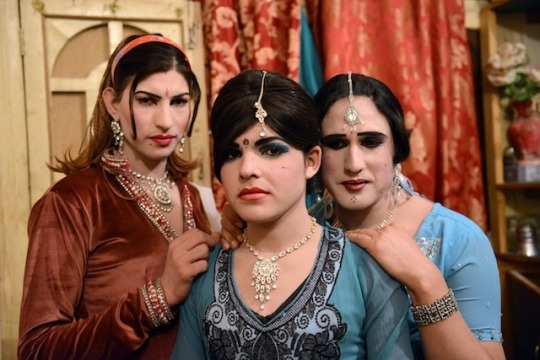
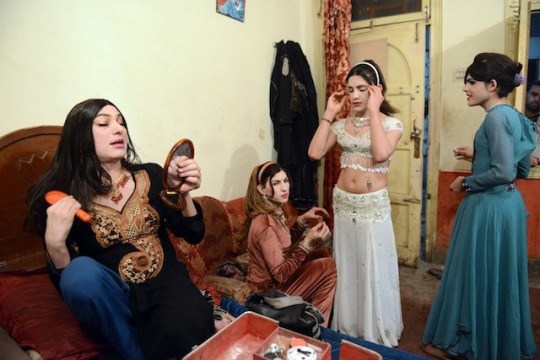
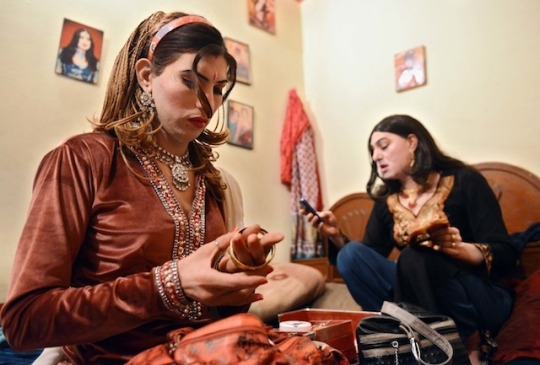
Pakistan's Transgender Community Is Hiding Out in a Hostile City
As Peshawar has come under increasing sway of an extremist view of Islam, its community of transgender hijras has been increasingly marginalized.
By Beenish Ahmed, 16/05/2014 Photos by Abdul Majeed Goraya
"My father used to beat me and ask, 'Why do you have to go around pretending to be a girl?'"
Now at 35, she says her cheeks burn and fists tighten if anyone refers to her as a man.
Khushboo, whose name means fragrance, classifies herself as a hijra, a South Asian gender designation that encompasses transgender and transexual people, as well as transvestites and eunuchs.
She has a different definition for herself and the estimated hundreds of thousands of other hijras across the region. "Our souls are female and our bodies are male," she says, dipping a rag into a red plastic pail filled with a chalky mixture of water and face powder. Surrounded by a group of several other hijras in a room they call their "office," Khushboo smears the dripping rag over her face and adds, "I've known I was a hijra since I was a child."
She used to wear her sisters' clothes. At 16, Khushboo slipped out of the house in one of their outfits and didn't return home for years. Along with another hijra, she settled in Peshawar, a city in northwestern Pakistan one night's drive from the costal city of Karachi where she'd grown up.
Peshawar has long been home to cultural traditions that insist on strict gender segregation, and the city has come under increasing sway of an extremist view of Islam in recent years. These intolerant, conservative beliefs are made brutally clear through the bombings and shootings that are now near-weekly occurrences. Taliban suicide bombers killed 85 worshippers at a church there last September, and militants killed thirteen people at a cinema showing pornographic movies in February. Lesser attacks are momentary blips on local news coverage featuring bloodied streets and blaring sirens.
Khushboo points to battered doors and broken windows around her. She says young men—"college boys" she calls them—wreak havoc on her and fellow hijras who are preparing for a dance performance later that night. Sometimes the men recite scripture and beat the hijras to shame them out of their profession as dancers, and other times they force them to dance or even rape them, she tells me.
Despite the extremism that has only further marred the city since her arrival nearly 20 years ago, Khushboo has an affinity for Peshawar because it's where she had a sort of rebirth as her new self.
Free from the abuse of her father and brothers, as well as the sense of dishonor she felt on behalf of her mother and sisters, Khushboo embraced a new life of openness—and was adopted into a new family.
"In this field we have mothers. We have gurus. We have uncles and aunts," she says, and then points to a girl who's rolling a spliff in the corner of the room. "She's my daughter. I'm a daughter of someone so she has a grandmother too. And," Khushboo adds, "She also has a father."
That last bit comes so quickly that I almost miss it. I inquire further about the girl's "papa" and Khushboo says, "Her father is married to someone else, but he loves me." She then goes on to explain what their relationship entails—and it's all very practical until it gets utterly tragic: "If I'm sick, he comes by and brings me medicine," she says proudly. "If I don't have money he drops some cash off. If I die, it's this man who will dress me up as a man and take my body to his house to carry out the cemetery. He might not explain the full story and just say that I was killed in the market or that there was some kind of shooting, but he's the one who will take care of the funeral."
I can't help but think that this grim possibility is one that Khushboo has discussed with her "husband"—and one that he too has come to terms with.
"In Pakistani society, there is a really strong [sense of] place and family," says Dr. Jamil Ahmad Chitrali, a professor of anthropology. "There is no alternative for anyone."
Based at the University of Peshawar, Chitrali has written about the city's hijra community. He says that by forging the same sorts of familial connections that they left behind, hijras create a social order that mimics the very society from which many of them fled.
"It's forcing all those revolutionary individuals who are against those binaries of man and woman to come into a structure which is reaffirming patriarchy," he says.
Pakistan's hijras have made some strides in recent years despite their rather isolated existence. In 2012, the Pakistani Supreme Court allowed for a "third gender" category to be added to national identity cards, which effectively gave hijras increased legal standing. It's because of this broader recognition that hijras could vote in that year's presidential election—at least five hijras even ran for office.
But the third gender classification has made little practical difference in Khusbhoo's life. "We live in a third world," she says, the difference between her life and that of a cisgender person just as stark as the difference between life in Pakistan, and say, Monaco.
And, she says, no matter what she does, she'll always be seen as different.
"Even if I give up dancing, everyone will still call me a hijra so what's the point? Why not do what I love?" She adds that even if she were to become a traveling evangelist, her family would still regard her with the same disdain. "I'm better off staying a hijra."
And that's the hardest thing that Khushboo has to face: her family. She got back in touch with them after five years of not speaking, and goes to see them in Karachi at least once a year. But when she does, she goes dressed as a man.
Though she moves about as a woman in Peshawar, Khushboo wears a black floor length, full-sleeved robe (or abaya), and a face covering (or niqab) that reveals only her eyes to hide herself from prying eyes. Even so, she's been thrown out of several houses by people who fear hijras will ruin their neighborhood.
While they occupy a marginalized space across Pakistan, hijras are probably worst off in Peshawar. In all of the other major cities in the country, they are frequent sites at traffic intersections or in shopping centers where they offer a prayer for a few rupees. Many passersby fear denying them might mean a curse and so will either oblige quickly or turn away completely.
I've spent a lot of time in Peshawar over the years, and have never seen hijras out in public the way they are in other cities. After speaking with Professor Chitrali, I learned that might be because hijras have a different role in the Pathan society that dominates the Peshawar area. In this part of the country, hijras aren't seen to have some sort of greater spiritual connection than cisgender people—instead, their role is celebratory. They're often asked to sing and dance at weddings and births.
"It's their performance which gives [a family] social recognition," Chitrali says, though the tradition is fading as weddings move from family houses into wedding halls. Some might have other professions—Khushboo says she has hijra friends who are lawyers and pilots and act cisgender in order to maintain their jobs, though they're free to "be themselves" with her and other hijras. Due to a lack of societal acceptance, many hijras live marginalized lives as low-income entertainers, but they've got a bit of a role as educators, too. Hijras sometimes teach—or even initiate—young men into sex. For many in Peshawar who live by strict religious and cultural codes that denounce almost any pre-marital interaction between the sexes as sinful, hijras provide a sort of in-between, or a "cushion," as Chitrali calls it.
"If you cross the domain of manhood into womanhood, that is against the culture, that is crossing your limits. But you can always move into the gray area, so this hijra community, in that sense, in a clear binary of man and woman among Pathans, [forms] a gray area." But he says that this "learning experience" is becoming less common with such how-to's readily available on the internet.
In Peshawar's increasingly religiously-motivated milieu, the presence of hijras—be they dancers or sex workers—is frowned upon and politicians vie for favor by pushing them out of their homes and worksites.
Seeing this, Malik Iqbal says he wanted to do something. "I sympathize with them because no one gives them any space," he tells me.
He rents out the office that Khusboo and her fellow hijras use to prepare for their dances.
"I didn't used to be on their side," Iqbal says. "Now I help them. I say they're humans too. We should have some empathy for that reason. Not just me, everyone should empathize with them as people."
But some believe Iqbal's connection to hijras goes beyond a shared humanity. Though he refuses to speak about it, Iqbal was arrested in 2010 for attempting to marry a hijra called Rani. Such a union would be illegal under Pakistani law, which only recognizes marriages between men and women. He has repeatedly denied the charge and claimed that police were trying to extort money from hijras at an event that wasn't a marriage but an innocent birthday party. Either way, the shock the story garnered reveals just how far removed everyday Pakistanis are from the hijra community. A big-grossing film called Bol, or Speak—released in 2011—may have helped some, but real connections like Iqbal's remain few.
And not everyone in close proximity to hirjas is sympathetic. Noor Illahi, who owns a grain shop down the street from the hijras' office, doesn't have a problem with the hijras themselves or even their work, but thinks they should find some other place to go. "My work has suffered because of them. The other storeowners and I, we think they should be given some place off to the side. It should be separate."
He's worked in his store for 15 years and says that sales have dropped fifty percent since the hijras set up shop next door a few years ago. "There are a lot of fights here now. They create quite a scene sometimes."
The raucousness has driven away his customers. Those who stop in the area are more interested in the hijras than the sacks of flour he has for sale.
"I'm not personally offended by them. But look," he says, pointing to a group of several white shalwar kameez-clad men loitering outside the hijra's building. "These poor people have earned just three or four hundred rupees all day ($3-4) and they'll come here and waste it all on them."
The men are all rickshaw drivers. One by one, they go on the record to deny being there to solicit sex. "We're just here to chit chat with them," one says while peering over his shoulder to see if any of the hijras have come out into the alley. "It's a totally innocent relationship that we have with them."
Back up in the hijras' office, the lights have gone out as a part of the rolling power outages that have frustrated Pakistanis for years. It might be another hour before they're ready to leave for their performance. When they do, they'll be cloaked in massive shawls and under the cover of night.
27 notes
·
View notes
Link
Everyone knows the story of Cinderella, whether you grew up with Walt Disney’s 1950 animated film, the Rodgers and Hammerstein television musical, or the European folktale. Still, adapting a beloved story for a new generation means connecting past and present. The cast and crew of 2021’s Cinderella was intent on innovation. The film, which is set to premiere on Amazon Prime on September 3rd, reimagines the story as an uplifting musical about the power of self-discovery.
Unlike her predecessors Camila Cabello’s “Ella” doesn’t aspire to life as a royal, instead she’s busy building a fashion empire. The heroine's shift from dreamer to proactive entrepreneur makes for a different kind of narrative, one the forces behind the project hope will inspire young girls. “It is a completely new telling of the story. I feel like other fairytales have values that are more antiquated and don’t reflect women accurately,” shared Cabello from Los Angeles. “In this Cinderella, she has dreams and ambitions, and she wants to save herself, not have a prince or anybody else save her.”
Given Ella’s goals, much of the modernization is expressed via wardrobe. For costume designer Ellen Mirojnick, telling Ella’s story meant starting from scratch. “With Cinderella you of course think of the blue dress, the glass slipper, etc. but that wasn’t how we were going to approach this story,” she says. “This is a brand new retelling so we wanted to put a twist on it and embrace a new point of view, [one] that promotes female empowerment and individuality.”
Adept at creating jaw dropping costumes for immersive fictional worlds—her costumes for Bridgerton, The Greatest Showman, and Maleficent: Mistress of Evil are characters unto themselves—Mirojnick looked to the soundtrack inspiration. “Everything becomes concrete once you read and listen to the music,”she says. “The songs have fairytale, romantic, and modern aspects and an [overarching] theme about breaking the glass ceiling.” Within Ella’s wardrobe those concepts translate into period looks that feature contemporary touches and pieces that highlight her uniqueness. Still, Mirojnick was careful not to foreshadow Ella’s princess transformation. “From the beginning [of the design process] we took into consideration that her clothes shouldn’t be too obvious,” says Mirojnick. “So you have her in neutral colors, natural fabrics, linens, but with modern touches like her belts.”
The character’s interest in design was key to understanding her motivations. “One of the things I realized is that you have a Cinderella who is [effectively] designing herself,” says Mirojnick. “Ella’s closet is at the center of our film. The costumes capture her spirit, how design empowers her, and how nothing will get her down. Camila, who is one of the most authentic and joyous spirits I’ve met in a long time, embodies this perfectly.” For Cabello, who describes her character’s look as innovative and daring, collaborating with Mirojnick throughout the design process was a dream. “I loved my work costumes! They were so comfortable, but still had Ella’s swag to them,” she says. “Ellen and her team were so passionate, full of joy for what they were doing. They were so in love with Ella and the values she represented. In a time where women’s self expression is so limited, she uses fashion to express herself. Even when she’s dressing for work she has accessories in her hair, and puts unique details in her corsets. I think it shows how much self expression and authenticity is important to her.”
Oscreen Ella, uses the tools at her disposal to create, but she’s still subject to the limitations of being a young, cash-strapped designer. “For the ball she is making her own gown, so we had to hone in on what she would create and what she might have difficulty making,” says Mirojnick. “That is until the Fab G comes along.”
Audiences know Disney’s ‘Bibbidi-Bobbidi-Boo’-singing, benevolent godmother, but Billy Porter’s Fab G is a completely different take on the magical mentor figure. Porter, with his outré style and endless swagger, needed more than a powder blue cape. So Mirojnick whipped up a gilded gown with reflective shades inspired by butterfly wings. “The Fab G was born from the monarch butterfly,” explains Mirojnick. “I presented a whole series of sketches to Billy. It was important to him that the costume represent both masculine and feminine elements. It all came together in a couple of conversations. I had to take into consideration movement and how the character would emerge onto the scene because it had to be fabulous.” Equally striking are the Fab G’s accessories which run the gamut from a glittery wand, custom Jimmy Choo boots, and a Mercedes Benz carriage that Porter dreamed up with the automaker. “It’s all remarkable,” says Mirojnick. “They truly went all out in creating the design.”
Of course, the ride isn’t as important as the destination. In this case, that would be the party thrown for Nicholas Galitzine’s Prince Robert, in order to find his bride. Ella arrives in a glittering ball gown whipped up by Fab G, but she isn’t the only contender. A host of princesses from across the kingdom show up to meet the royal family and try their luck. In other adaptations this plays out as a Bachelor style spectacle where young women compete against each other for a guy, but director Kay Cannon and Mirojnick wanted to avoid that cliche. “What was most important to us was that this world be global,” says Mirojnick. “Originally we planned on having designers from other countries each contribute a design, but [that] proved too difficult last year. So we went about it our own way with each princess representing their respective nation.” The change also allowed for cameos, like Japanese comedian Naomi Watanabe. “The ball is about bringing the community together,” says Mirojnick “They may be vying for attention but they also support each other.”
While the protagonist isn’t looking to become a princess, the story doesn’t break with tradition entirely. The clothes—which will be revealed to the world during the Mercedes Benz ‘Dressed for a Dream” livestreamed fashion showon August 28th—are the stuff of fantasy. During the show the costumes will be worn on the runway by individuals who embody the progressive messages of the film. Both Cabello and Mirojnick, who serve as Mercedes Benz brand ambassadors for the project, hope that viewers find the movie, fashion show, and subsequent campaign inspiring. “We’re going to have models walking the fashion show who have incredible success stories. They’re our everyday Ellas,” says Mirojnick. “It’s an honor to be able to partner with Mercedes on this [and] at this moment in time where we can celebrate female empowerment and amplify stories that show girls what they’re capable of.”
That sentiment was echoed by Cabello. “[The fashion show] is Ella’s dream come true! I think women seeing other women be strong, ambitious, and supporting each other is so important,” she says. “Helping each other realize our power and celebrating each other taking control of our lives is so important for young people to be watching, and for that to be the world they grow up in.”
5 notes
·
View notes
Text
From Green River to Nirvana to Bush: A Brief History of Grunge
The origin of the term grunge, which means either repugnant or dirty came from most likely a Sub Pop music catalog to describe an EP released by the band Green River in 1987. “Gritty vocals, roaring Marshall amps, ultra-loose GRUNGE that destroyed the morals of a generation". The term grunge had been used since the 1960’s to describe an array of bands, but this was the first time the term had been applied to any music out of Seattle. One of the reasons the music coming out of Seattle sounded so dirty or sludgy came for a very practical reason. Most of these groups did not have very much money, which meant when creating new songs in the studio these artists could not spend the money they did not have on cleaning up the sound. The scene of Seattle first came from two colleges, Evergreen State and the University of Washington, which brought about the hugely popular radio station KAOS, where Nirvana would actually play in 1987. Many major bands that came out of Seattle like Nirvana, Pearl Jam, Soundgarden hated the term. One primary reason was the fact that it stereotyped these bands into one generic genre as even these three specific groups were vastly different from one another. Nirvana was pop punk, Pearl Jam embodied classic rock, and Soundgarden turned out to be much more metal. Ben Shepherd of Soundgarden would say he hated the term and did not want to be associated with it. Many musicians from Seattle all the way down the line never referred to grunge in any manner whatsoever. Rolling Stone would say that there did not exist any clear definition of what defined grunge as it covered a bunch of bands that were very different from each other.
The start of early grunge in Seattle began when Black Flag came to town in 1984. They were the poster child for hardcore punk at the time. Black Flag’s album My War was huge in terms of Seattle’s sound as it took elements of metal and traditional rock, then slowed it down. Steve Turner of Mudhoney would later comment. “A lot of other people around the country hated the fact that Black Flag slowed down ... but up here it was really great ... we were like 'Yay!' They were weird and fucked-up sounding." One of the people that went to these Black Flag shows was Buzz Osbourne, lead singer of local group the Melvins. After seeing Black Flag, he began writing riffs for his own band that were much slower and heavier. This became the very beginning of Northwest grunge, which producer Jack Endino called slowed down punk rock. Seattle musician Leighton Breezer would describe it as essentially playing punk rock backwards. Another key ingredient to grunge’s development came in the infusion of metal elements with the greatest influence being Black Sabbath. One approach for these early bands was to take a metal riff, then play it backwards with a ton of feedback, while screaming lyrics on top of it. Another other source of the grunge sound came with indie rock, which should not be discounted because it brought that pop melody into the equation. A huge influence on this emerged with Sonic Youth. Other artists included Pixies and Dinosaur Jr. Kurt Cobain identified with the former in particular as he noted in a Rolling Stone interview, "I connected with that band so heavily that I should have been in that band—or at least a Pixies cover band. We used their sense of dynamics, being soft and quiet and then loud and hard." These artists did seem to embrace the ugly aspect of the music as they loved to pen dark lyrics mirroring society at the time. This stood in stark contrast to the mainstream sex, drugs and rock and roll of the hair metal coming out of Los Angeles. The Seattle bands would even take things from so called cheesy rock bands like Kiss. Buzz Osbourne would say they would steal from the ridiculous rock bands too seeing what they could get away with all the time. Rock writer Kyle Anderson would say this about grunge when reviewing Sixteen Stone from Bush. “The twelve songs on Sixteen Stone sound exactly be like what grunge is supposed to sound like, while the whole point of grunge was that it didn't really sound like anything, including itself. Just consider how many different bands and styles of music have been shoved under the "grunge" header in this discography alone, and you realize that grunge is probably the most ill-defined genre of music in history."
Certain artists prior to bands like the Melvins and Green River heavily influenced that Seattle sound including Here Are The Sonics, released in 1965 by The Sonics.[153] Neil Young's albums Rust Never Sleeps (1979) and Ragged Glory (1990). Neil Young symbolized everything that grunge and Seattle seemed to represent including plaid flannels and distorted guitar. He would even have Pearl Jam act as his backing band for the 1995 album Mirror Ball. These groups were soon labeled proto-grunge. Other artists included Elvis Costello, the Stooges, Led Zeppelin, and Creedence Clearwater Revival for their respective 1970’s and 1980’s albums. Another effect on the development of the sound came in the city of Seattle itself as it flew below the radar when compared with other cities. Sub Pop’s Jonathan Poneman would say in an interview. “Seattle was a perfect example of a secondary city with an active music scene that was completely ignored by an American media fixated on Los Angeles and New York [City]." Everything about the style that would become associated with Seattle came out of necessity, not really any choice. Trucker hats, pawnshop clothes, cheap guitar all sprung from the fact that Seattle in fact was a very poor town. For his part, Kurt Cobain when Nevermind went number one was actually living in his car. Local post-punk bands also had an effect on what eventually became the grunge bands of the late eighties such as The Fartz, The U-Men, 10 Minute Warning, The Accüsed, and the Fastbacks. Yet, one must note there existed a differential between these groups and those that came to define early grunge.
The very first grunge record has been regularly referred to as Come on Down from Green River. The band would later split up with half the group later forming Pearl Jam and the other half creating Mudhoney. Another release that hugely helped along the development of the Seattle sound was in the Deep Six compilation featuring tracks from six bands: Green River, Soundgarden, Melvins, Malfunkshun, Skin Yard, and The U-Men. Jack Endino would make this observation about the release at the time. “People just said, 'Well, what kind of music is this? This isn't metal, it's not punk, What is it?' ... People went 'Eureka! These bands all have something in common.'" Later around the same time, Sub Pop released a similar compilation, along with a new EP from Green River, Dry As a Bone. The effect of the Sub Pop label had everything to do with the Seattle sound too because of their heavy commitment to cleverly selling the brand to the rest of the world as one of the greatest regional music scenes in the history of the world. The early concerts sponsored by the label were not attended by very many people, but Sub Pop’s photographer made it look like the concert of the year. Their marketing was top notch when it came to letting the rest of the world know there was something incredible happening in Seattle. Sub Pop was not alone in spearheading the indie movement in the Pacific Northwest, but other labels released new music including C/Z Records, Estrus Records, EMpTy Records and PopLlama Records. In the late 1980’s, Jonathan Poneman of Sub Pop asked Everett True to write about the local Seattle music scene for Melody Maker. This article gave Seattle some of the first mainstream national exposure besides word of mouth. According to Charles R. Cross, the bands that embodied the grunge sound more than anyone else were not just Nirvana or Pearl Jam, but groups like Tad, Mudhoney, Blood Circus. Sub Pop actually looked to Mudhoney to be the breakout band from their label allowing Nirvana to leave without much protest.
The negative issue with such exposure became that new groups began to move to Seattle hoping to be discovered while claiming to be an authentic local group, when in reality they were not. Steve Turner would say, “It was really bad. Pretend bands were popping up here, things weren't coming from where we were coming from." The first group to sign to a major label was Soundgarden, followed by Alice In Chains and Screaming Trees soon after. Unfortunately, this really signaled the end of a truly independent local music scene, but the major labels coming to Washington state was probably inevitable.
The major label signings were expected but when Nirvana released Nevermind, the repercussions were in no way contemplated in any way whatsoever. The success of the record changed everything because it made what would become alternative music able to be sold as merchandise and in a cultural sense. Michael Azerrad said it represented "a sea-change in rock music" in which the entire country said we are done with hair metal. We want something a bit more realistic when it comes to our music. The newfound popularity of grunge made it possible for other niche audiences to consider the potential financially and culturally for their music to be successful. A more current example may be seen in dubstep and EDM. Pearl Jam would be the first beneficiaries of Nirvana’s lightning bolt, no pun intended. Jeff Ament and Stone Goddard, formerly of Green River and Mother Lovebone, had joined forces with a California surfer by the name of Eddie Vedder. People tend to forget that Pearl Jam’s seminal album Ten was actually released a month before Nevermind. By 1992, the entire country had embraced everything Seattle including Pearl Jam, Temple of the Dog, Soundgarden, and Alice In Chains. Journalists were starting to call the city the “New Liverpool.” Cameron Crowe even made a film centered around Seattle entitled Singles, which featured a fictitious band with Eddie Vedder as their drummer. The fashion fads of grunge did not go unnoticed to corporate America as knit caps and flannels would increase in price very quickly. Entertainment Weekly made this observation in 1993. “There hasn't been this kind of exploitation of a subculture since the media discovered hippies in the '60s". One could now see grunge being sold in the form of all kinds of products including an official grunge air freshener.
There do exist some characteristics of the grunge sound itself that people did agree upon, but much like the term itself there are open debates as well. As noted previously, the electric guitar had represented a dirty sound, hence the name grunge. There existed a heavy emphasis on distortion through the use of stompbox pedals with very large amplifiers connected to them. The other major characteristic that defined grunge besides distortion was loudness. Some critics have dismissed the artistry within grudge as merely noise, not anything else. Another effect utilized by grunge was the guitarists use of the Wah Wah pedal as evidenced by Pearl Jam, the Screaming Trees, Soundgarden, and Alice in Chains. The controversial and debatable aspect of the guitar is the question of whether the popularity of the music helped to kill the guitar solo. Most of grunge’s guitarists despised the shredding solos made famous in the 1980’s by such musicians as Eddie Van Halen. Jerry Cantrell of Alice In Chains would say that guitar solos should serve as a complement to the song, not its own entity. Will Byers of the Guardian wrote an article that argued grunge’s guitarists like Kurt Cobain helped to effectively kill the guitar solo in popular music. Unlike classic artists such as Jimi Hendrix, Kurt Cobain and others from Seattle had very little interest in mastering the instrument. The Soundgarden guitarist would even say that he got bored doing solos, so he just filled it with fuzz and distortion anyway. The argument does fall apart a little bit when you look at the entire breadth of grunge at the time because Pearl Jam’s Mike McCready and the Smashing Pumpkins’ Billy Corgan have been consistently referred to as some of the most influential guitarists in the entire decade. The production was also similar in approach as it heavily emphasized low cost, which always meant a low fi sound. For the band Mudhoney, they had to tell the record label to decrease the budget for one of their albums because they did not need to spend that much. The two important producers were Jack Endino and Steve Albini. They both took a very hands off approach to producing with very little to do with remastered effects and mixing. They both believed that the job of the producer was to simply record the music, but not impede in any way creatively for the artist. For example, In Utero was recorded in the same room with the entire band, while most mainstream producers would have recorded it separately then combined them on a multi track recorder. That approach would often give off a very live feel to a grunge release from the recording studio. Many bands simply wanted to replicate the sound energy from their live shows. A grunge concert was defined by bands who jumped, thrashed, and screamed on stage, while most of the audience would mosh or slam dance. The artists would never use any visual aids, props, or special effects to enhance the experience, but instead you were simply seeing essentially a local band. Dave Rimmer would write about the philosophy behind any true grunge show. It seemed “for Cobain, and lots of kids like him, rock & roll ... threw down a dare: Can you be pure enough, day after day, year after year, to prove your authenticity, to live up to the music ... And if you can't, can you live with being a poseur, a phony, a sellout?"
One of the negative aspects associated with grunge came in the question of how prevalent overall did heroin play in the lives of the artists. Not only did Kurt Cobain suffer from heroin addiction, but other artists did as well from that era including Scott Weiland of Stone Temple Pilots, Evan Dando of the Lemonheads, Jimmy Chamberlain of Smashing Pumpkins, Courtney Love of Hole, and Mark Lanegan of Screaming Trees. The comparison was made to the hippies of the 1960’s, who had embraced marijuana. The grunge musicians of the 1990’s seemed to look to heroin while in the city of Seattle. The downer effects of the drug represented what the lyrics told you about how these artists were feeling, self-hatred, nihilism. By taking heroin, someone could hide themselves from the world avoiding any sense of reality. The drug would take many casualties along the way including Andrew Wood of Mother Lovebone, Cobain, the keyboardist for the Smashing Pumpkins, Layne Staley of Alice in Chains, and later the bassist for the band Hole. One group that almost beat Nirvana to the punch of making it on a national basis was Mother Lovebone. Their lead singer Andrew Wood tragically died of a heroin overdose right before their debut album Green Apple was set to be released. They represented the number one band throughout the local Seattle music scene at the time. After his death, the remaining members of Mother Love Bone, Chris Cornell of Soundgarden, and Eddie Vedder joined up to create the tribute band for the late singer, Temple of the Dog. One of the first times fans heard Eddie Vedder on record was not Pearl Jam’s Ten, but actually Temple of the Dog. Jeff Ament and Stone Gossard did eventually join up with Vedder to form Pearl Jam. Courtney Love would a later comment that she thought heroin was easier to get in Seattle, than it was in Los Angeles or San Francisco. Yet, Daniel House of C/Z Records would argue that the idea of Seattle being a mecca for heroin was simply not true. He said the prevalence of the drug was no worse than any other American city in the country, while magazines like Rolling Stone contended that marijuana and MDMA seemed to be more likely the drug of choice for these artists.
Another important characteristic of grunge was is the active role that women played as musicians, as well as promoters of the movement. These groups included acts such as L7, Lunachicks, Dickless, 7 Year Bitch, The Gits, Courtney Love's band Hole (and Love's other 1990s groups), and Babes in Toyland. VH1 writer Dan Baker would comment that L7 were an “all-female grunge band [that] emanated from the fertile L.A. underground scene and [which] had strong ties with ... Black Flag and could match any male band in attitude and volume." The lead singer of the all girl band Bikini Kill Katherine Hanna would help to start the feminist punk underground movement called Riotgrrrl in the Pacific Northwest out of Olympia, Washington. This social and political movement began to embrace some of the same qualities found within grunge music. Singer Hanna was also the person that coined the phrase Smells Like Teen Spirit as Cobain had dated her drummer Toby Vail for a time. Coincidentally, she would later go onto marry Adam Horowitz of the Beastie Boys.
By late 1992, there began a strong backlash against anything referred to as grunge. Both Damon Albarn and Billy Corgan of Blur and Smashing Pumpkins respectively would say at their live shows, “Fuck grunge.” Kurt Cobain would say in an interview that being famous was the last thing he ever wanted to be. Along with a return to their punk roots, Nirvana’s album In Utero subtly was intentionally “abrasive” as a form of protest against the entire grunge trend. Despite their efforts, the album still went number one in its first week of release. Everything grunge related saw incredible success including groups like Candlebox, Soundgarden, and Alice In Chains, as they all released records that saw platinum achievement very quickly. As LA looked for the next Motley Crue in the 1980’s, record labels now began to look for the next Nirvana. Some of these second wave groups included Stone Temple Pilots, Veruca Salt, and Toadies. Unfortunately, Stone Temple Pilots were called out in the press for jumping on the bandwagon that was the Seattle sound. Their biggest flaw came in being from Los Angeles, not Seattle. Another group that suffered from this backlash was represented with Bush, who released their second album in 1994, Razorblade Suitcase. Chuck Klosterman would write, “Bush was a good band who just happened to signal the beginning of the end; ultimately, they would become the grunge Warrant.” The exact death of grunge has been debated as to a precise date, but one of the biggest factors came when Pearl Jam and Soundgarden began to fade from view for a time. Another huge issue came with the death of Hole’s bassist from a heroin overdose. This just brought up memories from Kurt Cobain’s tragic death as his widow was lead singer of the group. Jason Heller of the av club would write the the final nail in grunge’s coffin actually came in the release of In Utero in 1993. He argued that once his angst became commercial, then it was time to leave the scene. Nirvana had made the scene, and they obviously ended it. Billy Corgan would say after the death of Cobain in an interview, “The party’s over.”

2 notes
·
View notes
Text
Kingdom of the Sun [Fire Lord Zuko] 5

Chapter Warnings: None Story Rating: M Pairings: Zuko/OC
Kingdom of the Sun MASTERLIST Last Airbender MASTERLIST My MASTERLIST
2 Years Ago… Tsai paced around the room anxiously. Her head flinched at every little movement or sound that she could hear. Her concerned eyes always coming back to the struggling expression of Zuko who had gone into a moral decision comma and was currently unconscious and laying on his bed where he sweat profusely once again at an internal conflict with himself. She had sent for his mother, the palace staff and the family physician. She sat on the edge of his bed keeping a cool rag pressed against his forehead. It took a couple of moments before Nezu, his assistant, and some other servants walked rushed into the room. Her eyes once again darted back to the Fire Lord's face. How had this happened? How had somebody managed to sabotage the candles in the Dragon Catacombs and manage to sneak into her room to leave a threatening message? Tsai looked at the staff uneasily. She didn't trust any of them. Whoever was doing this had both internal and personal information about their lives. She knew that Fire Nation guards were practically useless having gotten past them several times before herself. "How.…Did this happen?" She growled out in a menacing tone demanding an answer. Her clothes stained with soothe and ash from the impact of the blast. She saw them all exchange a nervous glance between each other. There wasn't an answer. Uncertainty filled them. "How did this happen!" She shouted. Somebody could've died. Hell, Zuko could've died. "Uh-" Nezu, Zuko's assistant stepped forward stammering. "The two of you were left alone. The guards stayed at the entrance of the Fire Temple?" That was beside the point. Whomever had done this had prepared for this. They had obviously set up the bomb before time when the two had been at the play. "Dismiss the Fire Lord's guards from their duties," she ordered. "Send note for the Kyoshi Warriors. They'll be the Fire Lord's new guards." Again the staff exchanged a nervous look. "I'm sorry, but you can't do that," Nezu said looking down at a scroll he seemed to be carrying around all day. "You have no authority." She stood up to the bed and rounded about it not removing her angry eyes from the assistant. "Do you have vision problems?" She probed her tone unfriendly, warning. "I-I'm sorry?" he stammered. "Do you not see what just happened? Are you unaware of all the assassination attempts? Who's going to respond for him when he's unconscious? You will send for the Kyoshi Warriors and you will do it. Now. I don't care if it's not authorized. His guards are useless and as for me, good luck getting me out of this room." The assistant licked his lips and nodded his head before turning away and exiting the room before uttering another word. She let out a sharp breath feeling some guilt at her uncharacteristic angry burst.
Just then Ursa and the family physician rushed in. Zuko was in a comma for two nights. She never once left his side. The little sleep she got, she got while bundling up next to him waking up every couple of hours to change the cold rag on his forehead. The only person she trust enough to enter the room or bring food to them was Ursa who would come every couple of hours worried out of her mind. Tsai was tired. She wondered if this was what her grandfather had referred to the last and final time that they spoke... “People might change but their natures don’t. Don’t be a fool Tsai. He is troubled and I sensed he will always be. Especially when reasoning right from wrong...” There wasn't much she could do for him. She spent the days watching him painfully struggle with his demons. She sat next to him and kept busy by either reading or writing. Sometimes he'd wake up to quench his thirst and then go back to his sleeping torment. Sometimes he'd mumble out names, phrases, incoherent thoughts. Presently, she sat on the bed next to him reading a book on the Tradition, Culture and Society of the Fire Nation. She felt him moving, shifting his body and felt him reach for her. He held her as tight as he could in a weak embrace. Arms wrapped around her hips, head buried in her lap. She looked at him with worry and mindlessly ran her fingers through his hair in a soothing motion. She didn’t know how long she sat in that position when he suddenly let go of her, slowly turning around, his head still resting on her legs. He blinked his tired eyes open and looked at her. “Hey,” she said softly brushing the lost strands of hair from his forehead. “Hey,” he managed to croak out weakly. She said nothing in return, simply starred at his golden eyes, her painful expression said it all. “I love you,” he said in a sorely strained voice. A deep sadness lingering in his eyes. Neither of them had said what would come next, but he knew. He could feel it, he could see the distance in the windows to her soul. She leaned down hovering above him for a. second, strands of her red hair falling, tickling his face as she did. “I know,” she responded before kissing his forehead. “I love you too.” Her lips lingered there for a moment. A stray tear escaping the window of her eye. A sigh escaped his lips and he closed his eyes taking in the moment. She pulled back draping an arm around him, one which he held lightly stroking every other moment. Xxx
Tsai left the Fire Nation three days later. It was the same day the Kyoshi Warriors arrived. She hadn’t eaten anything since arriving back home to the colonies. She hadn’t slept either, her heart felt heavy. She had suggested that they take a break for their own safety. Zuko agreed and said it would be best, but when he asked for how long she had no answers for him. “Until this is all over.” And who knows how long that would be. He had promised to wait for her. She found herself unable to make such promises to him. Sure, she could be with him, she could be only his, but he came with a burdening title that she found she could not fill. How would an individual from the Fire Nation’s colonies, half Earth Kingdom and half Fire take the seat of Fire Lady. It was unheard off, untraditional. She would never be accepted; it was something that did not belong to her. It hadn’t been her intention to leave the Fire Nation so suddenly, but an important meeting arose on the other side of the ocean. Fire Nation and Earth Kingdom diplomats were called to it. As were all the heads and leaders of the Fire Nation colonies. The security at the meeting was top notch since an attack was certain to occur. Amongst the colonial leaders were the Governors of the Hu Xin Provinces, the Governor of Bahamut, the Governors of the Taiga River Valley amongst others. She stood there alongside her brother representing Yu Dao, one of the Fire Nation’s colonies. The point of the meeting was to decide the future of the Hu Xin Provinces. Civil unrest and the discriminatory discrepancies between Earth Kingdomers and Fire Nationers threatened to spark a civil revolution which would just ignite the same chaos in the other colonies. Earth Kingdom diplomats claimed for their lost territory. The Fire Nation argued back that they wouldn’t surrender their colonized territory. Older colonies such as Yu Dao claimed neither was the answer, both cultures were deeply rooted in the land and the people, independence was necessary. This idea was greatly opposed by all parties. All governing heads of states had their seats on a long desk at the front of the room. A mediator at the side holding a hammering which came down after every sentence or so to approve or disapprove motions and silence the audience. “You have to understand,” Mecha pleaded standing his ground in the massive meeting room where rows and rows of governing officials sat with their staffs and teams all eyes focused on him. Scattered murmuring filled the room as all governing officials exchanged looked with each other. The scarred young man looked at his sister who sat in the audience. If anybody could convince them, it would be her. Afterall, she had been planning this for most of her adult life. She stood up confidently looking at the room filled with mostly middle-aged Fire Nation men. How typical. They all seemed to look down at the her with contempt. “It’s impossible to go back to either sovereignty,” she stood up. Tall, back straight, shoulders square like always. “Mark my words, war will lash out again as both the Earth Kingdom and the Fire Nation will dispute for their territories and neither will succeed.” She warned. “The best option is to come together and become a unified and independent republic.” Nobody said a word and she continued. “I –“ She began and looked at her brother from across the room. He nodded. “We believe that our colony, the Vice Royal colony of Yu Dao, is proof that our differences should make us stronger, not divide us. We live in a time when we should be building bridges not walls. Together uniting not only Earth and Fire, but Water as well. I believe we can build a thriving metropolis which would welcome all. Bringing talents, ideas and cultures from all over the world together as one.” The murmurs in the audience grew louder and soon they turned into a spread of cold, cruel laughs amongst the crowd. The laughter was mocking and echoed the large room. Regardless she did not stand down. “Excuse me,” An Earth Kingdom official who was lightly laughing rose to his feet. “Vice Royal Governor,” he addressed her brother instead of her. “Why would you allow this young lady to speak on your behalf?” “What are her qualifications?” Another governor asked also addressing her brother and not her. “I am well read, traveled and educated in the history, cultures and political climates of our world.” She answered. “My brother and I both strongly stand by the notion that our ways have to change. The war is over and the world cannot continue to go on as it has for the past one-hundred years.” “My sister can speak for herself, thank you,” Her brother added after a moment crossing his arms behind his back smiling proudly at his younger sister. He wasn’t going to have none of this nonsense. “If Yu Dao wants to stand alone, let them, be but we will not stand with you. We will not lose our customs, our traditions and our national identity and pride to the ideas of some anarchist!” The Governor or the Taiga River Valley slammed a hard fist down on the wooden desk. Arguing and talking got louder. “We are not anarchist!” Mecha backed up. “The Colony’s terrain rightfully belongs to the Earth Kingdom!” “Preposterous, more Fire Nationers live there than in any other place in the continent!” “We have a history there!” “When other nations send people here, they will not send their best!” The arguing got louder, bickering and disagreement being shot back and forth between all government and policy officials. None of them coming to an agreement when suddenly the main doors of the meeting room were parted open with a loud slam. Under the arch of the door stood three Fire Sages wearing their regal crimson robes. The three looked aged and walked in with solemn expressions. Reaching the front of the room where the heads of state sat. “Silence!” The mediator slammed his hammer down repeatedly. The room once again grew silent. All arguing parties remained standing. “A message of impertinence importance from Fire Lord Zuko.” One of the Fire Sages stood in the center of the room. The other two tagging along behind. He pulled out a golden scroll from the inside of his sleeve one which was still sealed with the royal wax stamp. He unraveled it, breaking it open and read a couple of minutes of political jargon. “-As of now, it is with great honor and pride that the Fire Nation succeeds half of its entire territory. All Fire Nation lands ranging from below the Northern Artic Sea and above the Gao Ling provinces. Hereby in this statement referred to as The Fire Nation’s colonies including Vice Royal territories of the nation such as: Bahamut, Taiga River Valley, Hu Xin, Yu Dao…” The Fire Sage continued naming numerous more if not all colonial lands that stood property of the Fire Nation. Officials stood up slowly hands pressed against their desks in support as they awaited the news of what would come of their lands. “All formerly mentioned territories, bodies of land and water, will be endowed… to Lord-“ The Fire Sage lost his voice; his eyes were raised with a ghastly look. The room remained silent not a single noise could be heard. You could hear a pin drop. Everybody on the edge of their seats. Mecha an Tsai’s eyes rapidly darted from the Fire Sage that was speaking to each other in disbelief. Her palms felt cold at what the man was reading all blood draining from her face. The man that was reading the Royal message in took a sharp breath. He placed a hand on a nearby desk to steady himself. “All formerly mentioned territories, bodies of land and water, will be endowed to Lord Tsai of Yu Dao as an absolute and independent monarch-“ The words of the Fire Sage became inaudible as chaos ensured in the room. Shouting the throwing of items across the meeting room. The mediator hammer incessantly to a deaf crowd. Tsai had not move had not had a reaction other than shocked at the words that rocked her. Mecha could see greedy hands reaching for her, screaming at her, about to pull and tug at her in anger. He cursed loudly and ran across the room grabbing his sisters’ arm and running out of the room kicking and knocking out everyone and everything that came in their way. “I can’t believe it…” He said catching his breath once the two were outside hiding in some nearby alleyway. “He gave you the colonies!” He gaped eyes wide in disbelief. “Tsai! You’re a Lord! You’re the Lord of the Colonies!” He let out a shaky laugh. She was distraught, eyes lowered to the floor, her mind racing. Still struck and in disbelief at what had happened. He had followed through with his word. She thought about his moral comma… That made more sense now. “What are you going to do?” He asked. “I… I don’t know…” She admitted completely at a loss.
All of her life she had dreamed about this moment, planned for it prepared for it, but as it came to her like a wild raging bull, she wasn’t sure how to grab it by the horns. xxx As predicted war came to the colonies once again. The Battle of Yu Dao, as it would later be called consisted on King Kuei, the Earth Kingdom’s monarch, coming to claim his lost territories and Fire Lord Zuko from the Fire Nation sending troops to defend the territory known as the colonies from an invasion. Revolutionaries from the colonies rose in arms to defend their independence. Even Aang and the rest of the group returned to stand by the independence of the colonial territories. In the end all parties gathered outside the gates of Yu Dao ready to attack. All wearing military uniforms, helmets, weapons and on guard ready to strike. As if one hundred years of war had not been enough… It was only through the Avatar’s mediation that an agreement between Fire Lord Zuko, Lord Tsai and King Kuei was reached. The colonies would remain independent, the most recently acquired ones would return to the governing body of the Earth Kingdom. Lord Tsai renounced her title after declaring that the older colonies, particularly the ones with a blended identity and strong roots of both Fire Nationers and Earth Kingdomers would become part of a new independently governing body which was baptized as the Republic of Nations in which every nation would send an elected representative to delegate on their behalf. That’s how the colonies were liberated and Republic of Nations came to be…
xxxx AN: Short chapter, not my favorite but it had to be done. Next chapter we’re going back to Present time Fire Nation. On to better things. Leggggooooo!! prev: https://gloves94.tumblr.com/post/625513136018112512/kingdom-of-the-sun-fire-lord-zuko-4 next:
#prince zuko#zukoxreader#Zuko x oc#fire lord zuko#fire lord#zutsai#avatar#avatar the last airbender#avatar fanfic#avatar x oc#avatar fanfiction#atla#atla fanfic#fanfiction#fan fiction#fanfic#ao3#wattpad
34 notes
·
View notes
Text
Legend
Click here to read the full fic on AO3
The metal under her feet made Sokka’s nervous tapping very obvious. In the mirror, Katara watched as Sokka held his chin and nodded, going over something in his head. But as his boots continued to tattoo against the floor, Katara sighed. The woman doing her hair paused, her hands hovering above Katara’s head, and looked nervously in the mirror.
“What is it, Sokka?” Katara asked.
At her question, Sokka stopped all of his movement and looked up at her. His eyes meeting hers through the mirror, his eyes were wide and innocent.
“Nothing?” He replied curiously. “I’m just thinking.”
“But why are you nervous?” Katara asked.
“I think I’m allowed to be nervous.” Sokka retorted.
“You’ve already gotten married!” Katara snapped.
Grinning, Sokka looked down and twisted his wedding band. “Yeah, but I knew that was going to be perfect so there was nothing to worry about.”
“And this is going to be fine.” Katara said with a sigh. “Why don’t you go check the flowers?”
“Why? Because I’m the florist and it’s my job?” Sokka asked.
Katara glared at his reflection and just grinned wider, standing from the couch behind her.
“Alright. I’ll come and get you in a little bit.” He said as he walked to the door. Once he was gone, Katara nodded to the hairdresser and she continued.
There were many things in life that Katara would never have chosen for herself but still ultimately enjoyed. This overly feminine dress up was not something she, or others, would assume about her, but Katara did enjoy the process. The whole group went for a spa treatment; Toph stayed longer in the mud bath than anyone else and it was almost impossible to get Zuko out of the steam room, but they all had a good time drinking tea in overly soft bathrobes.
Now the hair dressing was something that Katara relished. The oil and combs worked through her thick, wavy hair till it shone. Then it was braided, coiled, and pinned. Beads of colored glass and dyed bone that matched her dress were constellations in her hair. Two large, circular beads, holding the main loops on either side of her head, were carved with different symbols. One was the matched set of Tui and La, the other was the stylized version of the sun.
After the hair came the dress.
It was blue and cut to swirl around her body. Black fish swam around the hem and a spray of sea foam leaped up the bodice and down her arms. Katara touched the fabric lightly, fearing that it would dissolve under her fingers.
“You look beautiful, Majesty.” The attendants said. Katara smiled.
“Thank you.” She said.
Sokka came to collect her, wiping away tears as they walked down the cramped metal corridor. The sounds of the metal shifting were unnerving, but Katara focused on keeping herself calm. Coming to a door, Katara took a deep breath while Sokka pushed it open. Sunlight blinded her and she walked out holding a hand above her eyes.
“Oh my baby girl.” Hakoda said as he stepped into view, blocking the sunlight enough for Katara to see. Sokka was wearing a tux, but Hakoda had chosen to wear a traditional parka. The caribou skin was richly embroidered and his own hair had the same beads threaded in. Seeing him represent their home, Katara started to sniffle and Hakoda embraced her.
A breeze came up over the deck of the ship and blew Katara’s skirts, making her shiver. Hakoda chuckled and kissed the top of her head before putting his arm around her.
“Let’s go get you married.” He said, his voice thick with emotion. Katara nodded and they walked off to the side of the ship.
They stopped at the top of the ladder, Hakoda and Sokka standing at either side of her, and Katara shook out her hands. Just as she brought her arms up, Sokka yelled.
“Wait!” He said and darted off. Katara looked at Hakoda, puzzled, and then laughed as Sokka came sprinting back.
“Forgot your bouquet.” He huffed. The flowers were pristine - the whites, reds, and blues all distinct yet blending well together - and Sokka held them gingerly. Katara shook her head and gently brought her arms up, conducting the waves to her intended score.
The iceberg was a short distance away. She and Zuko had flattened the top yesterday, alternating between melting and reforming the ice. The audience now sat in glistening blue chairs of ice, while Zuko stood waiting. He stood out, dressed in red robes, but he wasn’t the only one. Rohan, fully dressed in orange robes, stood as the officiant. Suki, having quietly bonded with the Fire Lord over the years, wore her Kyoshi Warrior outfit as she stood at Zuko’s side.
Now, in the southern arctic sea - the only international waters that belonged to all four nations - Water joined the other elements.
The sides of Katara’s gown were woven wide, so her arms were able to move freely. Among their friends and family, and the few special political guests, Katara called up the sea to carry her across. Making a sheet of ice wide enough for the three of them to sand, Katara stood patiently with her father and brother as the water ferried them to the iceberg.
When they made it, Katara dismissed it as if she were shedding a cloak. Sokkka handed her the bouquet, kissed her cheek, and then walked to the altar. Hakoda wordlessly offered his arm and Katara took it, the two sharing a very small smile.
Speakers had been embedded in the ice, giving the sound better acoustics than if played in the open air. To a bridal march, Hakoda escorted Katara down the aisle.
“You look as pretty as Kya did on our wedding day.” Hakoda whispered as they approached the altar.
“Dad.” Katara gasped, abruptly in tears.
“Oh Kat, no tears. Look, the sun is shining and the ocean is beautiful. When your mother and I got married, it rained.” Hakoda said. They reached the altar and Katara could only nod. Hakoda then turned to Zuko and held out his hand.
As Zuko placed his hand in Hakoda’s, Katara looked at her intended.
“You don’t need my approval or blessing, but understand that I am here to support you.” Hakoda then joined Katara and Zuko’s hands. “I love you both.”
Zuko started to tear up and Katara chuckled. Hakoda kissed Katara’s forehead and went to sit down, making both Katara and Zuko start to sniffle as they stood in front of Rohan.
Rohan looked at both of them and smiled. They then held out their hands and looked at the rest of the audience.
“Today, we are all watching something amazing. For the world, we are seeing the first time that two nations have chosen love over all else. For us gathered here, we are witnessing something more important; the marriage of two of our favorite people.
“I have not known Katara for very long, but there is no way I couldn’t be in awe of her. At fifteen she bound her soul to the Ocean Spirit to protect her people in a place that was not her home. At sixteen, she sank the entire Fire Nation fleet to help swiftly end the Hundred Year War. She is the Avatar’s master, she is Queen of the Three Tribes, and most amazingly, she can routinely and on demand make the Fire Lord smile.” Rohan said and various people chuckled while Zuko ironically fought down a smile.
“Zuko I’ve known for longer. As a spiritual cousin, Zuko and I have been friends since we met. He is also the kindest person, as he has faced more ugliness in his life yet not only accepted it but moved through it with genuine compassion. And as a very wise man once told me, when one is clothed in honor, filth will not stain them.
“Zuko never asked for anything. He never asked for his position, but always did what was right. I certainly know that he never asked to be rewarded for his actions but, as you can see, he has been.” Rohan smiled at Zuko, who was more openly crying. Katara, handing back the bouquet to Sokka, took both of Zuko’s hands and squeezed them.
“Now, to the serious part. Katara, do you promise to respect Zuko, to treat him with dignity, and to honor his value as a person?” Rohan asked.
Katara smiled at Zuko. “I do.”
“Zuko, do you promise to respect Katara, to treat her with dignity, and to honor her value as a person?” Rohan continued.
Zuko smiled back at Katara. “I do.”
“May we have the rings?” Rohan looked from side to side.
Katara turned to take the band from Sokka, her hands shaking as she moved slowly back.
“The bride and groom have prepared their own vows.” Rohan announced and then leaned in toward Katara. “Go ahead.”
Taking Zuko’s left hand, Katara focused on his fingers as she spoke.
“Zuko,” She paused, took a breath, and brought her face up to look at him. “I have sworn to protect my people above all else. My place as Queen transcends any other oath or bond, save for my connection to La. But I give all of my earthly self to you. Every mortal want and faulty need, every good moment and every bad day, every morning bedhead and every nightly kiss are yours. Time will wash away our human lives, but it is in that tide where you and I will exist.”
She slid the band onto his ring finger and Zuko paused to take her ring from Suki.
“Katara, you have taught me the fallacy of opposites. After all, we can’t make tea without both fire and water.” He said and Katara laughed softly.
Zuko smiled and went on. “I promise to embrace the opposites with you. I promise to push when you pull, so that we can strengthen each other. I will be with you in every dark moment and every light. I will heal your sickness so I can rejoice in your health. I will abide with you in lean times, so that we may feast together in good ones. I know that nothing will ever stay the same, so I promise to never abandon you as we wait for the tide to come in.”
Zuko slipped the wedding band onto Katara’s ring finger and Rohan clapped their hands.
“With the promises made and the rings exchanged, I now pronounce you husband and wife. You may seal your pledge with a kiss.” They said.
Katara propelled herself at Zuko, who caught her and kissed her deeply. The gathered group cheered and applauded, fadinging into the sound of waves crashing against the iceberg.
It was then that rain started to fall.
With a yelp, Katara jumped back and Zuko put his arm around her shoulder as they both looked up.
“A sunshower?” He asked.
Frigid rain splattered on her face, running into her tears even as she smiled.
“Legend says a sunshower happens at a fox wedding.” Katara said and looked over at Zuko.
He smiled and kissed her again.
1 2 3 4 5 6 7 8 9 10 11 12 13 14 15 16 17 18 19 20 21 22 23 24 25 26 27 28 29 30 31 32 33 34 35 36 37 38 39 40 41 42 43 44 45 46 47 48 49 50 51 52 53 54 55 56 57 58 59 60 61 62 63 64 65 66 67
29 notes
·
View notes
Text
An invitation to MWMs May Special for Non-binary/ Trans Mothers and Carers, and/or Mothers and Carers of Non-binary/ Trans Children
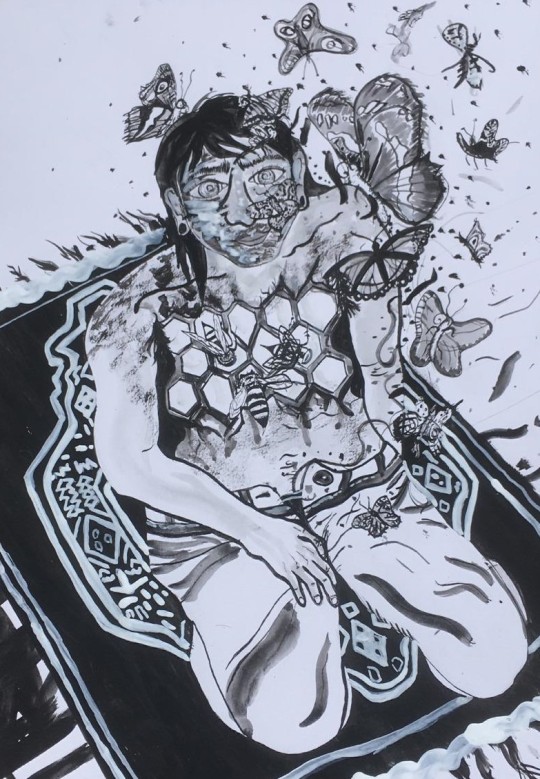
Image by Xavier Singer-Kingsmith for Gray, Nicky Singer’s new book.
From Matilda:
In a month in which my son’s primary focus is the forthcoming arrival of his Lord of The Rings Conquest game and my daughter has just discovered Barbie, I am glad to be able to hold space for some less cis options in between.
On Friday May 28th 10am-12pm I will be holding a MWM Special for non-binary or trans mothers and carers and/ or mothers and carers of non-binary or trans children. I am delighted to introduce the two guests for this meeting: writer and mother Nicky Singer, and director and mother P. Burton Morgan. Please read on for their invitations below:

From Nicky:
My youngest child Xavier (now 24) identifies as a trans man. He is a dancer by training, filmmaker by inclination (shorts for Channel 4 and BBC Arts) and visual artist in the spaces between. I am primarily a novelist - though I have strayed on to the stage for the National Theatre and Glyndebourne. Xavier and I have been working together on my new novel for adults ‘Gray’ – with me on words and Xavier on pictures. The novel is a story of identity, boundaries, intimacy and that ‘place beyond language’ where some trans issues invite investigation. The journey is ongoing. The unexpected is every day. It’s not always easy. There’s joy. Here (above) is one of the illustrations from the book. I am interested in the personal, the creative, the political and how to keep nuance and complexity in the debate.

From P Burton Morgan:
We’re all of us artist mothers wrestling with imposter syndrome at one time or another I’m sure. I can’t be the only one whose work has shifted a bit during the pandemic. I was previously mostly a writer and director of stage work, now increasingly embracing film. But as we all push ourselves, or are unceremoniously shoved, out of our comfort zones we have to confront those pesky inner critics questioning our right to be there, to be taking up space doing something for which we’re wildly unqualified and painfully inexperienced. And so here I am today inviting you all to join me for a session on non-binary parenting / motherhood.
I am as out of my depth here, as I am in my newfound role as a film-maker because I only came out as non-binary last year, and unlike my trans sibling who has been vocally active and activist in their writing and general change-making around trans awareness and trans support for years, I am still taking baby-steps in putting words out into the world that combine my gender politics with my own gender identity and/or gender presentation. Like many enbys I’m still struggling to feel ‘trans enough’ to take up space on trans/NB platforms (which this is of course one). I’m also at great pains to point out that my unique situation (coming out as NB in my mid… ok late… thirties, after already having two children) is going to be so very different to parents/mothers who come out much earlier. I’m also married to a cis man so on a day where I choose to present more femme, or just less androgynously, we can pass as a ‘conventional’ heteronormative couple, which makes life less challenging in the small rural village where we live.
So after that uncharacteristically hesitant opening let me ask some provocations which maybe we can explore together in the session. I sure as hell don’t have the answers, but maybe collectively we can grope our way towards something resembling solutions.
Pronouns. I prefer they/them but apart from my 8 year old who has assimilated that change wholeheartedly (perhaps because he has inherited his mother’s love of, and precision with, language) everyone else reverts to ‘she’ unless I remind them. That is perhaps just part of the deal with changing your pronouns later in life. Especially for family and folk who’ve known you for decades, it takes time to change.
I still use the word ‘mum’ and ‘mother’ to describe myself, but also sometimes simply parent. For me the term 'mum' is a role, almost independent of gender. But I know other parents use other terms. And although I do still use my birth name ‘Poppy’ I now work professionally entirely under P Burton-Morgan.
So that's one thing to discuss - embracing evolving pronouns and names.
What else… gender presentation. Since making peace with who I am, and where I feel at home, I now always identify as non-binary or gender queer but I sometimes still present in a more feminine way, sometimes because that’s how I feel that day and also, if I’m honest, to avoid conflict and micro aggressions in situations and scenarios where I know my queer identity is going to be problematised. Sigh.
Conversely both my children currently identify very happily as male but because they have been raised in a household that eschews traditional gender binaries in terms of clothing they often wear leggings, sequins, nail varnish, and one of them has long hair cut in what many would describe as a ‘feminine’ style. We obviously move in (thankfully) liberal circles but they’ve rarely been challenged on their sartorial choices, and I remember the nursery used to be wonderfully supportive when one of them would come to pre-school in a beloved pink tutu. Sarah Jessica Parker eat your heart out! Just the other day we were in the playground when a child asked my eldest if he was a girl or a boy, but with no judgement, simply trying to ascertain the facts. And he equally matter of factly answered that he was a boy and they carried on playing in the sand.
I wish my experiences were similarly straightforward. But partly that’s why I don’t bother correcting people when they slip up with my pronouns - sometimes there’s more anxiety induced by people trying to get it right and walking on eggshells around me, over emphasising the ‘they’ and then furiously fumbling to correct themselves when they say she. So I just try to be chill about it.
At the end of the day, as an NB parent, or a parent of an NB or trans child, we all want the same thing - acceptance. Queer identity will only ever be a greater or lesser part of a larger identity. For few (maybe none) of us is it our defining feature. And as well all know from inhabiting the dual roles of mother and artist - the nature of our multi-layered messy lives is that our identities may overlap or even conflict with each other, we all contain multitudes - but we are not defined by any one aspect of our complex selves…
So join me in a gentle exploration of these overlapping messy parts of ourselves and let's see how we can support each other and what wisdom we can discover.
To book your place on the meeting (places limited) please go here
And for any questions please email [email protected]
1 note
·
View note
Note
for the country meme: 4, 8, 10, 13, 15, 22?
4. favourite dish specific for your country?
Answered!
8. do you get confused with other nationalities? if so, which ones and by whom?
I think a lot of people who don't have a lot of knowledge about European countries often confuse us with Russians.
On a related note, it's Ukraine and not “the Ukraine”, period. I recently discovered that a lot of media say “the Ukraine” and it’s just wrong.
10. most enjoyable swear word in your native language?
I think a lot of our swear words are similar to the ones in Russian, which many internet residents might have heard of 😅 But there are some particularly Ukrainian swear expressions that sound really funny. It's hard to explain them in English, but I crack up whenever my friends say them.
13. does your country (or family) have any specific superstitions or traditions that might seem strange to outsiders?
My family isn't very traditional, but there are some popular traditions and holidays in our country. We actually celebrate Christmas on January 7th unlike the English-speaking world, and it has more of a religious than commercial vibe. The traditional Christmas dinner includes 12 dishes, and many people dress in national clothes. It's especially prominent in villages.
There's also a holiday in July called Ivana Kupala where you dress in national clothes and go to a dance, and I think that people are supposed to splash each other with water. Additionally, the boldest ones could jump over the fire. I celebrated it a few times at the camps, and some people actually jumped, even though I didn't. Off the top of my head, we also have an apple holiday in August and the one in December when girls are supposed to gather and tell fortunes about their love life.
15. a saying, joke, or hermetic meme that only people from your country will get
We have a lot of interesting sayings that are hard to understand for the foreigners and would take too long to explain. I'll talk about something different, though, as I remembered this story and it's a really fun memory for me.
There's this popular singer who's in his 40s (I think?). He's actually quite talented, though I don't listen to him at all and only know one or two songs that are a meme here. But the funny part is that his audience is mostly middle-aged women who find him attractive and buy tickets to his concerts in every city just to see him. People often make fun of it, seeing how his fanbase is actually called “young female wolves” after one of his songs (we have a particular word for female wolves, it doesn't sound that awkward), and they are so obsessively protective of him. It's a popular topic for joking in our country, they even do on TV.
I remember when I was at the camp last summer, one of the American counselors staged an improv scene with funny prompts where roles were distributed randomly, and I got to play this singer (the American knew the whole deal with him being such a meme and included him in the roles). It was quite hilarious because I even share a hairstyle with him (I have blonde hair that was almost shoulder-length at the moment, though I got a haircut since then, and he styles it in a similar way). Later, this American awkwardly asked me “um... what's a young female wolf?” (because I mentioned this in my acting), and it was really funny how I tried to explain to him that is what his hardcore fanbase is called.
After that, I played him in a few other stagings and my team kept joking that we are one. Moreover, I got my other team at the winter camp to translate his most popular meme song into English and sing it together, and my friend who was in the next room said “as soon as I heard it, I knew it was your doing” 😂
There are some other singers who people often joke at (some of them even embraced their role of a meme). I wish it was just as funny to non-Ukrainians as it is to me.
22. what makes you proud about your country? what makes you ashamed?
The culture dates thousands of years back, and it's incredible. We have amazing nature and plenty of historical places of interest. There are also a lot of talented and motivated people who want to make the country a better place. Our language is also beautiful, it's one of the most melodic and poetic languages. I'm not a huge fan of classic Ukrainian literature as it is often just doom and gloom, but I love the poetry. I have some favourite poems that hold a place in my heart. I'm also very proud when we take a step forward towards European integration, since there's still a long way to go.
Ashamed... politicians, as we're always top every “most corrupt countries” rating. Also sexism, racism, homophobia etc. Overall many people seem to have this “holier than thou” attitude and feel like they have a right to judge others. But I think many countries struggle with it and it's not specific to mine.
Thanks, those were interesting questions!
8 notes
·
View notes
Text
books I read in 2019 (not including rereads, favorites are bolded!)
Come Close - Sappho
Shanghai Baby - Wei Hui
Twenty Love Poems and a Song of Despair - Pablo Neruda
Bad Feminist: Essays - Roxane Gay
The Mother of Black Hollywood: A Memoir - Jenifer Lewis
Sula - Toni Morrison
Reinventing the Enemy’s Language: Contemporary Native Women’s Writings of North America - ed. Joy Harjo and Gloria Bird
How to Write an Autobiographical Novel - Alexander Chee
Night Sky With Exit Wounds - Ocean Vuong
If They Come For Us - Fatimah Asghar
Heart Berries: A Memoir - Terese Marie Mailhot
Less - Andrew Sean Greer
The Astonishing Color of After - Emily X.R. Pan
Goodbye, Vitamin - Rachel Khong
Darius the Great is Not Okay - Adib Khorram
Exit West - Mohsin Hamid
Homegirls and Handgrenades - Sonia Sanchez
Heavy: An American Memoir - Keise Laymon
All You Can Ever Know - Nicole Chung
Unaccustomed Earth - Jhumpa Lahiri
The Wife Between Us - Greer Hendricks and Sarah Pekkanen
The Way You Make Me Feel - Maureen Goo
A Very Large Expanse of Sea - Tahereh Mafi
Water By the Spoonful - Quiara Alegría Hudes
I Can’t Date Jesus: Love, Sex, Family, Race, and Other Reasons I’ve Put My Faith in Beyoncé - Michael Arceneaux
Bury It - Sam Sax
White Dancing Elephants - Chaya Bhuvaneswar
Pulp - Robin Talley
Shit is Real - Aisha Franz
Silencer - Marcus Wicker
Forget Sorrow: An Ancestral Tale - Belle Yang
Bestiary: Poems - Donika Kelly
Monster Portraits - Sofia Samatar
No Matter the Wreckage - Sarah Kay
Violet Energy Ingots - Hoa Nguyen
Olio - Tyehimba Jess
The Kane Chronicles: The Serpent’s Shadow - Rick Riordan
There Are More Beautiful Things Than Beyoncé - Morgan Parker
Nylon Road: A Graphic Memoir of Coming of Age in Iran - Parsua Bashi
The Wedding Date - Jasmine Guillory
Fruit of the Drunken Tree - Ingrid Rojas Contreras
An American Marriage - Tayari Jones
Family Trust - Kathy Wang
Not That Bad: Dispatches from Rape Culture - ed. Roxane Gay
Little & Lion - Brandy Colbert
A Girl Like That - Tanaz Bhathena
Suicide Club: A Novel About Living - Rachel Heng
The Disturbed Girl’s Dictionary - NoNieqa Ramos
My Old Faithful: Stories - Yang Huang
Crazy Rich Asians - Kevin Kwan
Girls Burn Brighter - Shobha Rao
Moon of the Crusted Snow - Waubgeshig Rice
Kingdom Animalia - Aracelis Girmay
Happiness - Aminatta Forna
Devotions - Mary Oliver
The Proposal - Jasmine Guillory
The Kiss Quotient - Helen Hoang
When Katie Met Cassidy - Camille Perri
Heads of the Colored People - Nafissa Thompson-Spires
Friday Black: Stories - Nana Kwame Adjei-Brenyah
The Word is Murder - Anthony Horowitz
Miles from Nowhere - Nami Mun
The Lost Ones - Sheena Kamal
All the Names They Used for God - Anjali Sachdeva
Confessions of the Fox - Jordy Rosenberg
Love, Loss, and What We Ate: A Memoir - Padma Lakshmi
On the Come Up - Angie Thomas
The Guernsey Literary and Potato Peel Pie Society - Mary Ann Shaffer and Annie Barrows
The Love & Lies of Rukhsana Ali - Sabina Khan
See What I Have Done - Sarah Schmitt
Convenience Store Woman - Sayaka Murata
I Am Not Your Perfect Mexican Daughter - Erika Sánchez
For Today I Am A Boy - Kim Fu
The Seven Husbands of Evelyn Hugo - Taylor Jenkins Reid
Conflict Resolution for Holy Beings - Joy Harjo
They Can’t Kill Us Until They Kill Us - Hanif Abdurraqib
Mongrels - Stephen Graham Jones
If Beale Street Could Talk - James Baldwin
Death of Innocence: The Story of the Hate Crime that Changed America - Mamie Till-Mobley and Christopher Benson
The Gilded Wolves - Roshani Chokshi
To All the Boys I’ve Loved Before - Jenny Han
The Perfect Nanny - Leila Slimani, translated by Sam Taylor
The Travelling Cat Chronicles - Hiro Arikawa, translated by Philip Gabriel
Things We Lost in the Fire - Mariana Enríquez, translated by Megan McDowell
Sunburn - Laura Lippman
The House of Impossible Beauties - Joseph Cassara
Freshwater - Akwaeke Emezi
A Private Life - Chen Ran, translated by John Howard-Gibbon
Invisible: The Forgotten Story of the Black Woman Lawyer Who Took Down America’s Most Powerful Mobster - Stephen L. Carter
Undead Girl Gang - Lily Anderson
They Both Die at the End - Adam Silvera
The Friend - Sigrid Nunez
Severance - Ling Ma
Tiny Crimes: Very Short Tales of Mystery & Murder - ed. Licoln Michel and Nadxieli Nieto
Mapping the Interior - Stephen Graham Jones
Give Me Some Truth - Eric Gansworth
How to Love a Jamaican - Alexia Arthurs
All of This is True - Lygia Day Peñaflor
Swimmer Among the Stars - Kanishk Tharoor
The Wicked + the Divine, Vol. 7: Mothering Invention - Kieron Gillen and Jamie McKelvie
This is Kind of an Epic Love Story - Kheryn Callender
Gingerbread - Helen Oyeyemi
Where the Dead Sit Talking - Brandon Hobson
The Ensemble - Aja Gabel
My Education - Susan Choi
More Happy than Not - Adam Silvera
Nobody Cares: Essays - Anne T. Donahue
Kiss and Tell: A Romantic Résumé, Ages 0 to 22 - Marinaomi
Oculus: Poems - Sally Wen Mao
Let’s Talk About Love - Claire Kann
History is All You Left Me - Adam Silvera
Opposite of Always - Justin A. Reynolds
The Crown Ain’t Worth Much - Hanif Abdurraqib
The Weight of Our Sky - Hanna Alkaf
If You See Me, Don’t Say Hi - Neel Patel
Girls of Paper and Fire - Natasha Ngan
What if It’s Us - Becky Albertalli and Adam Silvera
The Map of Salt and Stars - Jennifer Zeynab Joukhadar
October Mourning: A Song for Matthew Shepard - Lesléa Newman
The Big Smoke - Adrian Matejka
Dissolve - Sherwin Bitsui
The Woman Next Door - Yewande Omotoso
The Refugees - Viet Thanh Nguyen
White Tears - Hari Kunzru
Electric Arches - Eve Ewing
The Black Maria - Aracelis Girmay
Bloodchild and Other Stories - Octavia Butler
Soft Science - Franny Choi
The White Card - Claudia Rankine
Mad Honey Symposium - Sally Wen Mao
The Care and Feeding of Ravenously Hungry Girls - Anissa Gray
Next: New Poems - Lucille Clifton
The Marvelous Arithmetics of Distance: Poems 1987-1992 - Audre Lorde
Quilting the Black-Eyed Pea: Poems and Not Quite Poems - Nikki Giovanni
The Arab of the Future - Riad Sattouf
Ghosts in the Schoolyard: Racism and School Closings on Chicago’s South Side - Eve L. Ewing
Gruel - Bunkong Tuon
Marriage of a Thousand Lies - SJ Sindu
Parable of the Sower - Octavia Butler
Good Night, Willie Lee, I’ll See You in the Morning - Alice Walker
That Kind of Mother - Rumaan Alam
Erotic Stories for Punjabi Widows - Balli Kaur Jaswal
Hera Lindsay Bird - Hera Lindsay Bird
Queenie - Candice Carty-Williams
And Still I Rise - Maya Angelou
The Man Who Shot Out My Eye Is Dead - Chanelle Benz
Everyone Knows You Go Home - Natalia Sylvester
Naming Our Destiny: New and Selected Poems - June Jordan
The 100* Best African American Poems (*But I Cheated) - ed. Nikki Giovanni
The Haunting of Tram Car 015 - P. Djèlí Clark
Bury My Clothes - Roger Bonair-Agard
Selected Poems - Langston Hughes
Their Eyes Were Watching God - Zora Neale Hurston
Sonata Mulattica - Rita Dove
Winnie - Gwendolyn Brooks
Bicycles: Love Poems - Nikki Giovanni
The Black God’s Drums - P. Djèlí Clark
Kid Gloves: Nine Months of Careful Chaos - Lucy Knisley
Annie Allen - Gwendolyn Brooks
Parable of the Talents - Octavia Butler
After Disasters - Viet Dinh
Passing for Human: A Graphic Memoir - Liana Finck
Teeth - Aracelis Girmay
A Surprised Queenhood in the New Black Sun: The Life & Legacy of Gwendolyn Brooks - Angela Jackson
Peluda - Melissa Lozada-Oliva
A Map to the Next World - Joy Harjo
Magical Negro - Morgan Parker
Corpse Whale - dg nanouk okpik
Hawkeye: Volume 1 - Matt Fraction
Cenzontle - Marcelo Hernandez Castillo
Don’t Let Me Be Lonely: An American Lyric - Claudia Rankine
Selected Poems - Gwendolyn Brooks
She Had Some Horses - Joy Harjo
The BreakBeat Poets: New American Poetry in the Age of Hip-Hope - ed. Kevin Coval, Quraysh Ali Lansana, and Nate Marshall
Beyond Uhura: Star Trek and Other Memories - Nichelle Nichols
The Past and Other Things that Should Stay Buried - Shaun David Hutchinson
Difficult Women - Roxane Gay
The Woman Who Fell From the Sky - Joy Harjo
The Collected Schizophrenias: Essays - Esmé Weijun Wang
Go Ahead in the Rain: Notes to A Tribe Called Quest - Hanif Abdurraqib
The Frolic of the Beasts - Yukio Mishima
Hawkeye Omnibus - Matt Fraction
Good Talk: A Memoir in Conversations - Mira Jacob
Karamo: My Story of Embracing Purpose, Healing, and Hope - Karamo Brown
Tipping the Velvet - Sarah Waters
When My Brother Was an Aztec - Natalie Diaz
Toxic Flora: Poems - Kimiko Hahn
Virgin - Analicia Sotelo
Easy Prey - Catherine Lo
Laura Dean Keeps Breaking Up With Me - Mariko Tamaki and Rosemary Valero-O’Connell
Saints and Misfits - S.K. Ali
Intercepted - Alexa Martin
Love from A to Z - S.K. Ali
Gemini - Sonya Mukherjee
The Atlas of Reds and Blues - Devi S. Laskar
My Brother’s Husband Vol. II - Gengoroh Tagame
Black Queer Hoe - Britteney Black Rose Kapri
Internment - Samira Ahmed
Dothead: Poems - Amit Majmudar
With the Fire On High - Elizabeth Acevedo
Sabrina & Corina: Stories - Kali Fajardo-Anstine
Milk and Filth - Carmen Giménez Smith
The Key to Happily Ever After - Tif Marcelo
If You’re Out There - Katy Loutzenhiser
Farewell to Manzanar - Jeanne Wakatsuki Houston
New Poets of Native Nations - ed. Heid E. Erdrich
Bodymap: Poems - Leah Lakshmi Piepzna-Samarasinha
Wolf by Wolf - Ryan Graudin
Tell Me How It Ends - Valeria Luiselli
Born a Crime: Stories from a South African Childhood - Trevor Noah
Down and Across - Arvin Ahmadi
The Tradition - Jericho Brown
About Betty’s Boob - Vero Cazot and Julie Rocheleau
Fake It Till You Break It - Jenn P. Nguyen
Storm of Locusts - Rebecca Roanhorse
Silver Sparrow - Tayari Jones
Pride, Prejudice, and Other Flavors - Sonali Dev
Mongrel: Essays, Diatribes, Pranks - Justin Chin
When I Grow Up I Want To Be a List of Further Possibilities - Chen Chen
The New Testament - Jericho Brown
Fumbled - Alexa Martin
If It Makes You Happy - Claire Kann
Brave Face - Shaun David Hutchinson
Words in Deep Blue - Cath Crowley
Lost Children Archive - Valeria Luiselli
Care Work: Dreaming Disability Justice - Leah Lakshmi Piepzna-Samarasinha
We Were Eight Years in Power: An American Tragedy - Ta-Nehisi Coates
Anger is a Gift - Mark Oshiro
The Bride Test - Helen Hoang
Not Your Backup - C.B. Lee
Prelude to Bruise - Saeed Jones
The Night Wanderer: A Graphic Novel - Drew Hayden Taylor and Michael Wyatt
Naturally Tan - Tan France
Bloom - Kevin Panetta and Savanna Ganucheau
Like a Love Story - Abdi Nazemian
I’m Afraid of Men - Vivek Shraya
Juliet Takes a Breath - Gabby Rivera
On Earth We’re Briefly Gorgeous - Ocean Vuong
Let Me Hear a Rhyme - Tiffany D. Jackson
I Wanna Be Where You Are - Kristina Forest
Hurricane Season - Nicole Melleby
Split Tooth - Tanya Tagaq
Hungry Hearts: 13 Tales of Love and Food - ed. Elsie Chapman and Caroline Tung Richmond
The Night Tiger - Yangsze Choo
Long Live the Tribe of Fatherless Girls - T Kira Madden
Miracle Creek - Angie Kim
Ayesha at Last - Uzma Jalaluddin
Shout - Laurie Halse Anderson
The Breakbeat Poets Vol. 3: Halal if You Hear Me - ed. Fatimah Asghar and Safia Elhillo
The Tenth Muse - Catherine Chung
This Place: 150 Years Retold - various authors
Kings, Queens, and In-Betweens - Tanya Boteju
Midnight Chicken (& Other Recipes Worth Living For) - Ella Risbridger
Library of Small Catastrophes - Alison C. Rollins
Natalie Tan’s Book of Luck and Fortune - Roselle Lim
No Ashes in the Fire: Coming of Age Black and Free in America - Darnell L. Moore
The Book of Delights - Ross Gay
The 7 1/2 Deaths of Evelyn Hardcastle - Stuart Turton
Speak No Evil - Uzodinma Iweala
How We Fight White Supremacy - Akiba Solomon and Kenrya Rankin
A Love Story Starring My Dead Best Friend - Emily Horner
Here and Now and Then - Mike Chen
The Ghost Bride - Yangsze Choo
Red White and Royal Blue - Casey McQuiston
Becoming - Michelle Obama
The Wedding Party - Jasmine Guillory
Magic for Liars - Sarah Gailey
I’ll Be Gone in the Dark: One Woman’s Obsessive Search for the Golden State Killer - Michelle McNamara
Brain Fever - Kimiko Hahn
Life on Mars - Tracy K. Smith
Notebooks of a Chile Verde Smuggler - Juan Felipe Herrera
Catalog of Unabashed Gratitude - Ross Gay
Tentacle - Rita Indiana
Hapa Tales and Other Lies: A Memoir About the Mixed Race Hawai’i That I Never Knew - Sharon Chang
Loose Woman - Sandra Cisneros
Duende - Tracy K. Smith
Mostly Dead Things - Kristen Arnett
1919 - Eve L. Ewing
Why I’m No Longer Talking to White People About Race - Reni Eddo-Lodge
Negroland - Margo Jefferson
For Black Girls Like Me - Mariama J. Lockington
Super Extra Grande - Yoss
Home Remedies - Xuan Juliana Wang
You Can’t Touch My Hair: And Other Things I Still Have to Explain - Phoebe Robinson
An Anonymous Girl - Greer Hendricks and Sarah Pekkanen
The Abundance - Amit Majmudar
I Shall Not Be Moved - Maya Angelou
Helium - Rudy Francisco
Teaching My Mother to Give Birth - Warsan Shire
Tomie - Junji Ito
Everything’s Trash, But It’s Okay - Phoebe Robinson
This Time Will Be Different - Misa Sugiura
Junji Ito’s Cat Diary: Yon & Mu - Junji Ito
Stag’s Leap - Sharon Olds
Black Card - Chris L. Terry
It’s Not Like It’s A Secret - Misa Sugiura
Washington Black - Esi Edugyan
From Here To Eternity: Traveling the World to Find the Good Death - Caitlin Doughty
I’m Telling the Truth, But I’m Lying: Essays - Bassey Ikpi
A House of My Own: Stories from my Life - Sandra Cisneros
The Terrible - Yrsa Daley-Ward
The Black Tides of Heaven - JY Yang
The Red Threads of Fortune - JY Yang
Little Fish - Casey Plett
Trick Mirror: Reflections on Self-Delusion - Jia Tolentino
The Black Condition ft. Narcissus - Jayy Dodd
The Goldfinch - Donna Tartt
Dealing in Dreams - Lilliam Rivera
The Tiger Flu - Larissa Lai
The Island of Sea Women - Lisa See
America is Not the Heart - Elaine Castillo
Feel Free - Zadie Smith
Walking on the Ceiling - Aysegul Savas
My Time Among the Whites: Notes from an Unfinished Education - Jennine Capo Crucet
The Unpassing - Chia-Chia Lin
Maurice - E.M. Forster
Permanent Record - Mary H.K. Choi
The Downstairs Girl - Stacey Lee
Red Dust Road: An Autobiographical Journey - Jackie Kay
The Ungrateful Refugee: What Immigrants Never Tell You - Dina Nayeri
I Married My Best Friend to Shut My Parents Up - Naoko Kodama
Killers of the Flower Moon: The Osage Murders and the Birth of the FBI - David Grann
Ordinary Light - Tracy K. Smith
Cantoras - Carolina De Robertis
Brain on Fire: My Month of Madness - Susannah Cahalan
How to Be Remy Cameron - Julian Winters
The Marriage Clock - Zara Raheem
Moon: Letters, Maps, Poems - Jennifer S. Cheng
Where Reasons End - Yiyun Li
Pet - Akwaeke Emezi
Meddling Kids - Edgar Cantero
A Lucky Man - Jamel Brinkley
Maiden, Mother, Crone: Fantastical Trans Femmes - ed. Gwen Benaway
What is Obscenity? The Story of a Good for Nothing Artist and her Pussy - Rokudenashiko
The Umbrella Academy Vol. III: Hotel Oblivion - Gerard Way
Who Put This Song On? - Morgan Parker
The Souls of Yellow Folk: Essays - Wesley Yang
Wave - Sonali Deraniyagala
Love War Stories - Ivelisse Rodriguez
Baby Teeth - Zoje Stage
A Fortune for Your Disaster - Hanif Abdurraqib
Eyes Bottle Dark with a Mouthful of Flowers - Jake Skeets
Dear America: Notes of an Undocumented Citizen - Jose Antonio Vargas
The Marrow Thieves - Cherie Dimaline
Polite Society - Mahesh Rao
Patron Saints of Nothing - Randy Ribay
The Body Papers: A Memoir - Grace Talusan
A Woman is No Man - Etaf Rum
Travelers - Helon Habila
Trust Exercise - Susan Choi
The Silent Patient - Alex Michaelides
The Intuitionist - Colson Whitehead
A People’s History of Heaven - Mathangi Subramanian
The Buddha of Suburbia - Hanif Kureishi
This is Paradise: Stories - Kristiana Kahakauwila
Brood - Kimiko Hahn
Don’t Look Now - Daphne du Maurier
How We Fight for Our Lives - Saeed Jones
I Hope You Get This Message - Farah Naz Rishi
Unmarriageable - Soniah Kamal
Bad Endings - Carleigh Baker
The Water Dancer - Ta-Nehisi Coates
The Lady from the Black Lagoon: Hollywood Monsters and the Lost Legacy of Milicent Patrick - Mallory O’Meara
Shapes of Native Nonficton: Collected Essays by Contemporary Writers - ed. Elissa Washuta and Theresa Warburton
Harley Quinn: Breaking Glass - Mariko Tamaki
Even the Saints Audition - Rachel Jackson
Slay - Britney Morris
#NotYourPrincess: Voices of Native American Women - ed. Lisa Charleyboy and Mary Beth Leatherdale
The Starlet and the Spy - Ji-min Lee
North of Dawn - Nuruddin Farah
Daisy Jones & The Six - Taylor Jenkins Reid
The Drowning Boy’s Guide to Water - Cameron Barnett
They Called Us Enemy - George Takei
Dear Girls: Intimate Tales, Untold Secrets, and Advice for Living Your Best Life - Ali Wong
The Right Swipe - Alisha Rai
Full Disclosure - Camryn Garrett
Searching for Sylvie Lee - Jean Kwok
Gideon the Ninth - Tasmyn Muir
Stubborn Archivist - Yara Rodrigues Fowler
The Wicked + the Divine, Vol. 8: Old is the New New - Kieron Gillen and Jamie McKelvie
Never Grow Up - Jackie Chan
“All the Real Indians Died Off”: And 20 Other Myths About Native Americans - Roxanna Dunbar-Ortiz
In the Dream House - Carmen Maria Machado
Blame This on the Boogie - Rina Ayuyang
It - Stephen King
Sea Monsters - Chloe Aridjis
My Fate According to the Butterfly - Gail D. Villanueva
The Wicked + the Divine, Vol. 9: “Okay” - Kieron Gillen and Jamie McKelvie
The Deep - Rivers Solomon
I Hope We Choose Love: A Trans Girl’s Notes from the End of the World - Kai Cheng Thom
Mooncakes - Suzanne Walker
BTTM FDRS - Ezra Claytan Daniels and Ben Passmore
Hot Comb - Ebony Flowers
Notes from a Young Black Chef - Kwame Onwuachi
Bunny - Mona Awad
The Twisted Ones - T. Kingfisher
Shuri, Vol. 1: The Search for Black Panther - Nnedi Okorafor
I Was Their American Dream: A Graphic Memoir - Malaka Gharib
Thick: And Other Essays - Tressie McMillan Cottom
Royal Holiday - Jasmine Guillory
Boxers - Gene Luen Yang
Saints - Gene Luen Yang
Fox 8 - George Saunders
The Memory Police - Yoko Ogawa
Last Day - Domenica Ruta
Wakanda Forever - Nnedi Okorafor
The Revisioners - Margaret Wilkerson Sexton
The Future of Another Timeline - Annalee Newitz
We Have Always Been Here: A Queer Muslim Memoir - Samra Habib
Somewhere in the Middle: A Journey to the Phillipines in Search of Roots, Belonging, and Identity - Deborah Francisco Douglas
Crier’s War - Nina Varela
Something in Between - Melissa de la Cruz
The Secrets We Kept - Lara Prescott
The Tao of Raven: An Alaska Native Memoir - Ernestine Hayes
One of Us is Lying - Karen M. McManus
Piecing Me Together - Renee Watson
Binti - Nnedi Okorafor
The Nickel Boys - Colson Whitehead
Recursion - Blake Crouch
Supper Club - Lara Williams
15 notes
·
View notes
Text
Vanity. Seems like a dated word and an old concept that has never been more prominent before today. What does vanity mean in a world of social media, cellphones and perpetual exposure? What does vanity mean in a world of lax morals and little dignity? What is dignity? What are morals? What are lax morals? Are they a bad thing? Who sets the bar? Everything is up for debate. Is it immoral to be so into yourself? Why is it frowned upon by some but glamourised by others? And if today’s world is characterised more and more by shameless vanity should we just all embrace it? Or should we be more critical of it? Is it an inherent thing that we learn to suppress due to societal standards or are we conditioned into it through societal pressure?
These are a few of my concerns and questions on the matter of vanity and to be honest I haven't been able to answer any. And to be even more honest every answer seems right. Depending on one’s point of view of course. In my case, my background and upbringing are a somewhat unorthodox mix of traditionality and forwardness that have made my confusion on the subject even more intense. My parents were raised in the rural town of Sparta, Greece. Greece, where I’m from, has always been a deeply traditional country that even though considered part of the western world, it has deeply rooted middle eastern influences that can be considered as more conservative. It has also been characterised throughout the years by a core dispute between communist and right wing parties and their respective followers which is still very prominent. Therefore the country itself is a nation defined by a series of conflicts and contradicting mentalities. However, the ‘westernisation’ that we espouse as a nation calls for an open-mindedness and progressiveness that Greeks were not eased into. And that has definitely created a sort of conflict for my peers and me. Because we are a generation that has grown up with the ideals and ethics of our parents and grandparents, family being a very strong institution in Greece, but with the need to keep up with current trends and norms and be more open to change. Moreover, carrying the weight of an ancient civilization that has shaped the entire humanity, we are expected to honour that heritage by adhering to expanding our intellectual capacities and disregarding superficiality. Therefore, it strikes me as odd and troubling when I see any greek girl my age posting pictures on instagram of her face accompanying it with a misspelled inspirational quote in english just to project a certain image of herself and simultaneously downplay the vanity angle by easing it with a ‘meaningful’ message. This is a common occurrence that is truly baffling to me which highlights the vast disparity between truth and image. This is also a recurring theme in many ancient greek written works such as the Odyssey; the concept of «είναι και φαίνεσθαι», the difference between reality and appearances.
On the other hand however, I wonder, am I just being an overly critical, contemptuous, angry person? I could cut people some slack. At the end of the day is vanity so bad? It has existed since the dawn of time and has been the driving factor behind many achievements I am sure. After all how can we distinguish vanity from self-love, ambition and confidence? They say be comfortable with your looks, love the skin you're in, but when does loving yourself become a little too much? These are questions that constantly trouble me and to which i have tried to give answers multiple times but to no avail.

Greek artist’s alter ego Anna Goula shown above is a trash pop singer who mocks contemporary Greek performers.
The most obvious and early tale of vanity is that of Narcissus. Enamoured by his own reflection but not being able to realise his feelings towards himself, he was burned by the flame of his own passion. This myth gave its name to what we now know as narcissism, the overt admiration of ones self and looks and their self-idealisation. Vanity, on the other hand, started off as a term referring to the futility and ephemeral nature of life and material things, however it has mostly become synonymous to narcissism and egomania in current times.
One very prominent example of how the social and cultural dynamics surrounding vanity have drastically changed over the past few years is the rise of the Kardashian aesthetic and the reign of instagram culture. Kim Kardashian has almost single-handedly rendered shameless vanity an acceptable if not desirable trait, and has even managed to capitalise on it by not only using it to expand her followers which in turn translate into more money but by also publishing a book full of her selfies, titled ‘selfish’ and rightfully so. I think that current instagram culture has a lot to give when it comes to insight on the matter and probably more so when it comes to ordinary people rather than celebrities.

Kim Kardashian’s aforementioned book.
I am also interested in how female artists like Cindy Sherman and Nan Goldin explore the female image and sexuality in their photography, which could provide insight coming from either a pro or anti vanity point of view. I also once attended a talk by Juno Calypso, a young photographer who explores the issue of vanity, self-worship, the futility of beauty and its attainability at any cost, through her site specific performances and photographs. Her pinky pastel aesthetic also alludes to stereotypical explicit femininity and seamlessly blends the past with the present. I would certainly like to look at artists like that whose strong aesthetics are a source of debate and inspiration.


Juno Calypso’s Honeymoon Series.
I would also like to look at Yorgos Lanthimos, the only famous Greek director who is currently the pride and joy of Greece due to his accolades. Even though I have only watched some of his movies in fragments, I was surprised by his distinct aesthetics and concepts when I saw a magazine editorial he shot with Taylor Hill. The young model is posing in her underwear in her grandmothers utterly traditional home, resulting in an unusual but very real and gritty visual, that speaks volumes to Lanthimos’ greekness. I would definitely want to explore his earlier movies more in depth, more so because of his exploration of greek social and familial dynamics rather than his exploration of vanity, but at the end of the day aren’t they both related?


Lanthimos’ shoot for V magazine.
Last but not least, I would like to look at how vanity is related to fetish and explore their relationship to fashion and cinema. Looking at collections and runways from the 90s by Thierry Mugler, the sheer theatricality of the models, the way they have been directed to essentially perform instead of simply carry out a catwalk and of course the clothes, inevitably bring to mind dominatrix-y aesthetics. Of course latex also plays an important role in forming that aesthetic and is a big part of the fetish notion which is worth looking into.
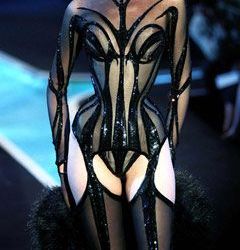

Thierry Mugler’s fashion shows.
I believe that all the works I have done so far have more or less included the element of vanity and body ideals in one way or another. Combining latex with traditional victorian hoop skirts was a way for me to explore the relationship between the traditional and the contemporary and examining the dynamics between the conservative and the sexual. I also tried to explore that relationship in my manifesto project, where I looked at my upbringing and more specifically my rural roots and the agricultural background of my family and tried to explore the gap between the aforementioned traits to the more ‘liberal’ and modern upbringing I had in the city. I also tried to explore that relationship in two linked performance/photography pieces I did last year, combining again my traditional background to my sexuality and self-admiration; one was set in my grandmother’s house while the other one was set in a temporary stay sex hotel in Athens. I feel like my experience so far with latex and pvc will prove useful, at least as material exploration and experimentation are concerned and will pave the way for me to explore further the notion of vanity and fetish through their material realisations.
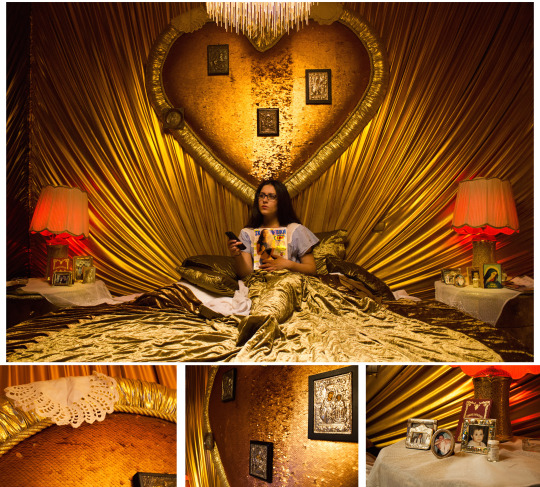
My ‘Portrait of a millenial’ project, set in Priamos sex hotel in Athens. I placed objects like family photos, christian icons and doilies from my grandmother’s house and did traditionally ‘grandmother’ things like crossword puzzles as if I were in my own home.

Second part of my ‘Portrait of a millenial’ project. I made a revealing burlesque costume and wore it around my grandmother’s house to highlight the difference between the sexual and the flamboyant and the religious and traditional.
6 notes
·
View notes
Text
Daenerys Stormborn, First of Her Name
Here’s my first review post on Game of Thrones! Thank you so much for asking about Daenerys, @bixgirl1, @kikibluemay and @oceaxe-ifdawn. She was fascinating and tragic, and I couldn’t really stop talking about her... as in, I ended up writing a 4k+ word essay on her character.
Due to the length, I’ve crossed-posted to AO3 for those who prefer to read it there: https://archiveofourown.org/works/19119595 . As usual, never feel obliged to do anything! Fandom is a happy, carefree place for me :) .
Before I start, I’d like to say this—I’ve never expected GoT to be progressive. Its medieval aesthetics aside, the gratuitous violence and nudity really seal the deal. Therefore, this review is written decidedly without a social justice lens; I shall not argue if the showrunners were feminists, racists, imperialists etc. Also, I haven’t read the books and have read few metas and reviews; so these are my unfiltered thoughts and of course, my personal opinion. I got interested in Game of Thrones because the snippets I knew of it reminded me of ancient Chinese history, which I loved for its twists, its very blurred lines between truths and myths, its cynical record of human nature, clever strategies and bloodshed. Along this vein, I was, and still am, the most interested in how each contender of the Iron Throne got there, and as the theme of the story emerged (“the lies we spin, our fates they weave” is my way of describing it), the things they told for motivation—the lies and truths that, should they win, would become history.
Of all the contenders and their stories, Daenerys’ rise was the most…mythical and uplifting. She was easy to root for, partly because we’re conditioned to root for heroes like her. The last descendant of a dynasty. Orphan. Exiled, abused, went through her personal journey from little better than a slave to become queen. She even birthed dragons and rode them to war. I really enjoyed the part of her story as the Khaleesi. She grew into a queen in every way, and an ideal one, by the time led her small group of followers across the desert. I loved her—she was strong, resilient, intelligent, righteous. And she understood and respected a culture that was supposedly far below her (as her brother Viserys frequently reminded everyone).
But then came Astapor, then Yunkai, then Meereen. She became a true ruler, without a Khal by her side…
I started feeling a little uncomfortable. I was puzzled by that. Her cause was emancipation, one I believe was absolutely correct. Her stance was uncompromising. She walked the walk. Every single one of these traits was beyond admirable, and precious among rulers. Nailing 163 slave masters for 163 children might seem brutal, but the world of GoT *was* brutal.
And yet, something felt...off.
Then I realized: after all the screen time in Meereen, I remained very much ignorant of the place, other than it practiced slavery. Slavery—and the barbaric practices surrounding it, such as the fighting pits—was presented as the only thing that defined her new constituents in her eyes. This could be by design, to show Daenerys’ “style” as a ruler. This can also be a reflection of the showrunners’ perspectives, their disquiet about tackling slavery for a larger audience. But if I must judge the show by its own merits and ignore the hands behind it, the repeated shots of Daenerys sitting high in the Great Pyramid, she and her advisors donned in their foreign attire, telling the locals who looked nothing like them, over and over again, that they were wrong…
She looked like a coloniser. My radars were beeping for that reason. I grew up in a colony, a well cared for one (ie, it would’ve fared far worse if it hadn’t been colonised). Colonialism is therefore an integral part of my life, and my views of it are coloured and educated by the experience. Controversial point: far from a general rule, but I recognise that colonizers can do great good. I’m a beneficiary of that myself. However, I’ve also learned that there’s an art to bringing these great goods to the colonised. One lesson: defining these people, especially when they’re foreign to the ruler, with anything that the ruler is seeking to eradicate — a habit, a tradition, a set of beliefs… —is not a recipe for success. It’s a matter of human pride—the pride of, in this case, the people who’d just suffered defeat. The former ruling class needs to feel some respect, which translates to a sense of security, for any transition of power to be smooth. One may say, the slave masters deserved neither pride nor respect nor security; this is very true, but there was a very practical consideration, one that Daenerys acknowledged: the ultimate goal of conquest is to rule. An un-governable colony won’t change for the better, because it won’t remain a colony for long. In Meereen, as in many real-world colonies, colonisers were few and their constituents were many. Revolts would favour the latter, in particular, the former ruling class who often had both financial and geographical advantages. The Sons of Harpy’s revolt did address that, albeit weakly.
No, I don’t mean Daenerys should yield on the issue of slavery. Lives were at stake and the emancipation had to be immediate. But then, merely insisting this was the right thing to do and punishing offenders with increasing severity, while reinforcing the segregation between the ruling class and the ruled (Daenerys pretty much sequestered herself in the Great Pyramid), was not a direction to take to render the emancipation permanent. Daenerys had to be out there. She had to make serious effort to find common grounds in the 3-way between herself, the former slaves and former slave owners, especially after she’d removed one of the pillars of Meereen’s sociopolitical structure. It didn't matter that the latter were despicable; she had to find a connection. And being a nation that had stood thousands of years, with its wealth and fine architecture, Meereen had got to have something benign and beautiful that Queen Daenerys could embrace, that she could use as a bridge to endear her to her constituents and at the same time, de-emphasize the role of slavery in defining what Meereen was. Wear their clothes. Visit the temples. Whether she actually believed in their gods didn’t matter. Join their festivities—if she did it enough it would matter much less if she skipped the fighting pits. Go to their Flea’s Bottom equivalent (as Margaery Tyrell did in King’s Landing; she would’ve made a good colonial governor). Talk to their craftsman and ask about their traditional crafts. Never for once did Daenerys consider these strategies. She could’ve used Tyrion as her ambassador—his stature and broken language skills, if utilized correctly, could loosen people’s defense, and the parties he’d attend would give him access to the good wines he craved and the setting for him to establish alliances with small talks. If governing foreign lands is indeed an art form, Daenerys didn’t pursue it in Meereen, even though from her time with the Dothrakis, it seemed unlikely that she was ignorant of its necessity (She did eat a horse heart for her Khal and her unborn child).
Again, assuming that the writers were merely following GRRM’s guideposts on her character arc, I had to contend with these possibilities that inform me about Daenerys the Ruler: 1) somewhere in her journey in Essos, she’d lost her ability to empathize with the cultures under her rule. This seemed unlikely. Or, 2) she no longer felt the need to do it, her power no longer derived from a Khal. Either way, with Westeros also being foreign to Daenerys, I started to wonder the kind of ruler she would end up being …
… and it looked rather similar to the Daenerys in her final scenes, asserting that her moral compass should make the entire Westeros bent their knees. I started to wonder if the show intended this to be a good or bad thing, or something more nuanced, as it should be. My hopes weren’t high—after all, our own western world still retains much of its colonial sensibilities, which would’ve (rightly) praised Daenerys’ role as a Liberator, but would also (sub)consciously downplay her … colonising tendencies.
Does it mean I see Daenerys as a bad person, or going mad? Not at all. Conflating character and ability to rule is, IMO, one of the major weaknesses of her ending (more on that later); it was also, perhaps ironically, Daenerys’ own fatal mistake. My question is merely one about her fitness to rule, which is itself a fluid thing. War-time rulers require different skills compared to peace-time rulers, conquerors to defenders. The serious contenders of the Iron Throne each had their own strengths, some better suited for rulership and some better for rulership at different times. Stannis was a strong general but was too easily swayed as a ruler. Daenerys was a conqueror. Jon Snow was a diplomat.
One thing, however, is true and consistent in the world of GoT: to gain power, being morally righteous is not enough. Ned Stark’s detached head brought this point across all too well. Rulers win the hearts of their people. Not the brains, not the logic that decides what is right or wrong. Humans are inherently passionate about power, whether it’s theirs to own or not.
And this is, perhaps, Daenerys Stormborn’s greatest tragedy. She assumed her strict moral compass, along with her birthright and strong will, would be sufficient to take her to the Iron Throne. Her dragons further misguided her in that regard—punishments by Dracarys lent an extra mythical weight and poetry to her judgments, as if she had a higher power, like God, on her side. When she asked Jon Snow if she was to rule with love or fear, she asked as if the two were a dichotomy, seemingly blind to the fact that she had always treaded the line between the two. Love got her the Unsullied, the talents who came far and wide to advise her; fear got her the Dothrakis, the fragile peace in Essos.
If you’ve read till here (thank you), you may assume I’d defend Daenerys’ decision to burn King’s Landing, or suggest it was foreshadowed. I’d say this: I find it to be within the realms of possibility, but only given my personal opinion about her rule in Meereen. I don’t see it as a botched coin-flip by the Gods, because nothing in her prior judgment suggested madness. Yes, she’d ignored advice before, but no more than, say, Robert Baratheon or Joffrey (Cersei simply killed those who gave her advice she didn’t like). Daenerys’ decision to march to King’s Landing immediately after the Battle of Winterfell—the last major decision she made before the sacking—might not be wise to some but was logically sound. I’d also venture to say this, perhaps in defence of the show’s writers: I’m also not quite sure if the show intended her decision to be a proof of madness.
Because I’m not sure if the madness told in this show was real at all.
Because curiously, while the coin flip had been mentioned several times, the show never offered us any concrete, visual evidence that Daenerys had suffered a loss of reason, which defines madness for us who live on Earth in the 21st century. The destruction of King’s Landing was portrayed at the ground level; we didn’t exactly see Daenerys cackling, or enjoying the carnage. Making a terrible decision does not a mad person make. She was seen to be sure of herself in her final scene with Jon Snow—but why shouldn’t she be, when she’d just emerged victorious and achieved her life’s goal, her revenge? If cockiness had been the mark of madness, half of the characters in the show would’ve been mad.
Even more curious to me is this: people like Ramsey or Joffrey or Cersei, who’d done seriously mad things in our perspective, were never once described as “mad”. The adjective “Mad” had always been reserved for the Mad King.
How was the Mad King mad then? This is important, because Daenerys supposedly inherited his madness. But the audience hadn’t been given much information. We know The Mad King killed his dissidents, but that seemed to fall within standard monarch behaviour. We know he and his advisors—including, notably, Varys—were at increasing odds with each other, but put a bunch of power-hungry men with immense power imbalance in the same room and that would happen more likely than not. He killed Ned Stark’s father and brother in a confrontation—so he was vengeful, distrustful, and brutal, yes, just like Joffrey or Cersei, but still, nothing that spoke particularly of madness. He was said to want King’s Landing destroyed, but the act was never realized; we only learned of his intentions via Jaimie. He set up the network of wildfires, which were terrible weapons but also … traditional in the Targaryen dynasty, if wildfires had indeed been invented as replacements of Dracarys. So how mad was actually the Mad King then, compared to his ancestors? Or was he called Mad only because he lost his game of thrones, and history was written by victors? When Varys claimed to be worried about Daenerys’ state—when he hinted at her madness and being a bad coin flip—was he merely repeating the same lies that had been told about her father, with the purpose of setting up a chain reaction that would propel Jon Snow to the Iron Throne, as the same lies had helped justify and cement Robert Baratheon’s reign? Varys might have been trying to feed Daenerys something. A “crazy potion”, maybe?
Yes, I know. I’m probably reading too much into this. It’s my wishful thinking, perhaps, to not see Daenerys as mad (or the writers writing her as mad) because that would’ve taken away her agency. Because Daenerys’ character arc doesn’t deserve an ending equivalent to death by a falling flowerpot. Because, if her sacking of King’s Landing was meant to be the Shock of Season 8, she must retain her agency. It’s shocking because a good person did it. A good person is good only when she has the agency to make terrible mistakes.
So how am I reading Daenerys’ decision to sack King’s Landing? If I were to ignore all inputs outside the show—I don’t know if the showrunners had commented on anything—this is how I would “bridge the gap”, so to speak; how I’d imagine the thoughts running through Daenery’s mind as the bells rang, behind the few seconds the camera focused on Emilia Clark’s face in the show. I believe the series of tragedies Daenerys had suffered (losing Jorah, Missandei, a dragon son) had only made her more determined to wipe out, as Greyworm told Jon, everyone who’d served Cersei. But while this sounded like a simple task, carrying it out was much more complicated. Cersei’s armies were dispersed all over the city; they could easily remove their armour and feign innocence. Moreover, every resident in King’s Landing could be seen as an accomplice to Cersei’s reign; even the people in Flea’s Bottom, like Gendry, used to make weapons for the Lannisters. Were they to be wiped out as well? If not, where to draw the line? This order nonetheless confirmed Daenerys’ world view that the morally corrupt should perish without mercy, and Cersei was, indeed, corruption defined. Daenerys had seen Cersei’s treachery herself, and the sheer scale of it must be as foreign to her as Westeros itself. Her closest friends and followers, Greyworm and Missandei, didn’t even know how to tell a joke—the smallest, most benign form of treachery. Daenerys knew what treachery was, of course, she’d suffered greatly from it, but treachery in the game of thrones was a different beast and she wasn’t yet equipped to handle it, to make correct assessments of the kind of behaviours it’d instigate—unlike Cersei and Tyrion, who as Lannisters had been breathing it in since birth, or Varys, who’d been both an observer of multiple reigns and a ruthless Kingmaker himself. King’s Landing, the city itself, had also signified little but treachery to Daenerys—her father had been murdered there by someone who’d sworn to protect him; men had been sent from there to murder her since she’d been born.
While Tyrion had told said that Cersei’s armies were serving only out of fear, Daenerys, who’d only had the most faithful / honest armies, the Unsullies and Dothrakis, probably couldn’t truly appreciate what that meant. She had every cause to be terrified then when the bells rang, especially when they rang so early, without her or her army and allies even close to the Red Keep. Ironically, perhaps, her own moral righteousness became her blind spot; she might have assumed Cersei’s forces had something far more sinister waiting for her—because how could they abandon their duties, their queen so easily?
And if they did abandon their duties and their queen so easily, what would stop them from committing the same treachery when Daenerys becomes queen herself? How could she vet the innocent and the treacherous and if she couldn’t—and she couldn’t, not with one dragon, a small army and no geographical advantage—what could she do? What could she do, when she was Daenerys Stormborn, who would never compromise to treachery?
I can see her feeling cornered. I can see her feeling she was left with one option: take the innocents out with the treachery. Do it like removing a tumour. Cut out a ring of good flesh around the bad.
The ring of good flesh was King’s Landing.
Plausible? Maybe? That tragically, both the rise and fall of Daenerys Targaryen could be attributed to her moral code? That she didn’t lose this game of thrones because she was evil, but because war and politics have always been amoral and she was a misfit? People in Westeros change allegiance all the time; morals are fluid and carry a price tag. Appropriately then, the man who understood and lived by these rules, whose loyalty could always be bought—Bronn—was also the biggest winner of this game of thrones.
I’d say this though: a plot point as significant, and as close to the finale as the sacking of King’s Landing, shouldn’t require the audience twisting their minds into pretzels to make it feel plausible, and my brain feels a bit pretzly at a moment. No matter what the writers intended, there remained too many holes for the watchers to fill with their imagination. I’ve read some who said the final season was too rushed; I’m not sure that was the issue. The issue, I think, is that even if given enough screen time, the writers didn’t quite know how to drive the characters without the books’ guidance—an issue that had become apparent by Season 6. The last three seasons felt…derivative, like fanfics of the first four. This isn’t a slight (well, not a big one)—Benioff and Weiss had managed what GRRM hasn’t been able to—but I felt a sense that their visions of the world had evolved to conflict with GRRM’s over the course of the show. Meanwhile, they still needed to hit the goal posts GRRM provided, while they wanted to focus on / believe in something else. The result was the later seasons that felt …schizophrenic at times. GoT had highly implausible moments since Season 1, but the first four seasons sold them because the showrunners believed in them. S8 Ep5&6, meanwhile, offered enough for me to logically agree that the sacking of King’s Landing and Daenerys’ downfall can be canon, but not enough for me to believe emotionally because…I didn’t feel the showrunners believed in them. The events felt written to serve a purpose other than storytelling—maybe to match GRRM’s notes, or satisfy the perceived need to shock; in all cases, I felt the hearts of the writers were somewhere else, somewhere perhaps more spectacular than dissecting the motivations of a fallen queen. The shift towards visual storytelling in the later seasons, perhaps to mitigate the difficulty of writing dialogues for an ensemble of deeply complex and intertwined characters, furthered exposed the incoherence of the show’s focus. While I love the visuals, GoT had its origins as a political show and politics is 99% talk. Similarly, the increased reliance on the actors to convey their characters via facial expressions and body language might work for someone like Brienne, who was taciturn and largely consistent personality wise, but insufficient for characters who used talking as a weapon (Tyrion) or underwent major transformations (Daenerys).
Anyway, back to Dany. If there was one thing I truly, truly dislike about the close of her story arc, it was the very end, when Jon Snow drove that dagger into her. Painfully cliche aside (I’ll leave Cersei’s baby to another day), it also unfairly cemented Daenery’s highly un-rightful place as the villain of the story, given that Jon Snow, the uncontested Good Human of the show, committed the murder. The show pitted two sympathetic characters against each other just to let one … leech the sympathy out of the other, when neither of their characters deserved the treatment (yes, I found this decision to be as unfair to Jon Snow as it was to Daenerys). As much as I had reservations about Daenery’s ability to govern, I never doubted the heart that Jon stabbed, the desire in it to do good for the people. Yes, I said it isn’t enough, and yes, I believe that too inflexible a moral code forcibly imposed upon others can do great damage, but this is very different from saying that Daenerys Stormborn was a villain. Conflating character and ability is human, but I expected this show to know enough nuance to avoid this mistake. Having the heart, the desire to rule well, is a start. A great and important start. A start seen in few others in the whole series. The early seasons of GoT were particularly strong in depicting characters in the grey but Daenerys, sadly, was robbed of that; she swung violently from white to black.
And what was so disappointing is that it needn’t be that way. Daenerys could have caused the destruction to King’s Landing and still be sympathetic. Queen Cersei was still in the Red Keep, and the Wildfires buried by the Mad King remained all over the city. Innocents die in wars, there’s never an exception to that, even if the wars are waged with the best intentions. I’m no show writer, but this is what I could come up with to spare Daenery’s fate as a villain after a few walking trips around my city, while keeping most major plot points intact. Show writers can do (much) better.
Just for the fun of it, below is the alternative ending for Daenerys I came up with, and I will end my very, very long thesis here :) . Thank you so, so much for reading! ❤️❤️❤️
===
1) Start of the episode. Qyburn teaching his little birds a nursery rhyme about a Mad King and his Wildfires, and an Evil Queen who will set them all burning. He tells them to sing far and wide. (This is just an excuse to get another song from Ramin Djawadi)
2) Long shots of combustibles being laid in the same tunnels Lancel Lannister crawled through back in Season 6 Ep 10, before the explosion of the Sept of Baelor. That 10-minute sequence was so classic that the audience would likely remember the place. Piles of wood connect the stores of barrels that we know contain the Wildfires. Black tar flows down the sewers of the Red Keep, down the alleys in Flea Bottom, slicking everything, staining the innocents there with (Queen Cersei’s) muck. This sequence can be done entirely through visuals.
3) The Bell rings. Daenerys attacks the Red Keep with Dracarys. The tar and wood catch fire and carry the flames to the Wildfires around the city. As Wildfire is Dracarys’ substitute, the two augments each other and the city soon turns into an Inferno. Daenerys watches, horrified and unable to do a thing. The nursery rhyme becomes a prophecy: as much as a Lannister laid the grounds, the Targaryens are solely responsible for the King’s Landing destruction. Woods and tar are, after all, harmless without fire. And Daenerys Stormborn, who swore to protect and liberate the weak, ends up killing more innocents than Cersei ever had.
4) Tyrion advises Daenerys that for now, she has no choice but to rule by fear. A reign cannot start with apologies, and what good will it do? So Daenerys gives the same speech to her armies on the steps of the ruined Red Keep, but noticeably distraught.
5) Daenerys must also restrain Drogon. She can’t afford him accidentally setting more fires in the city, while her armies scour every tunnel to make sure all Wildfires have been consumed. So the Breaker of Chains is forced to chain down her son, the symbol of her power.
6) Drogon, being intelligent but still a beast, maims Daenerys badly in his struggle to be free. Jon finds Daenerys, but she’s beyond saving. She tells Jon to keep what he saw secret, and if he can’t—she knows he can’t—to please lie for her, for once, that Drogon did it to avenge for the innocents she killed; that Drogon, and their family name he represents, knows justice above the fire and blood. When honest Jon reacts…honestly, she asks him to ask Tyrion for advice. She struggles to stand, says she wants to try the Iron Throne before she goes. She refuses Jon’s help; she walks, head high, blood trailing like a cape behind her, as she crosses the ruins. She won’t make it. Only her finger will get to touch the Iron Throne, as in her prophecy in the House of the Undying. Jon kneels behind her as she falls on her own knees. She will always be his queen. Drogon carries her away.
7) The waiting period can be a mourning period for all who have perished. Tyrion will still recommend Bran to be their King, as his proposal will be accepted as he remains the Hand. Jon would’ve asked Tyrion about the lying, and the issue can be brought up when “A Song of Ice and Fire” is presented in the small council. King Bran can then offer his wisdom as the Three-Eyed Raven, the Living History. What does he think, when he sees both the truth in history and the lies and prophecies told about it, that propel it? Does he approve of them? Disapprove? This will also wrap up the theme of the show, about the stories that make history, the history that makes us. Ser Davos can ask about the legend of Azor Ahai that cost Stannis Baratheon everything. Is it true? Does it matter? Also, how many swords actually make up the Iron Throne? Thousands, as the legends and Daenarys had believed? No more than two hundred, as Little Finger said in Season One? How many more swords have been buried for these thousands or hundreds?
52 notes
·
View notes
Text
【柳承龍】迄今為止從未有過這樣的演員,他是「職業人」呢還是「自然人」呢?【Ryu Seungryong】There has never been such an actor so far. Is he a professional actor or a nature-lover?
原文/Original Text: https://m.post.naver.com/viewer/postView.nhn?volumeNo=17815051&memberNo=10388754
新年快樂!今天我們帶來了超多久違的消息!
Happy New Year! Haven’t heard from us for a long time? Today we’ll bring you lots of information during this time!

太棒啦!
Awesome!
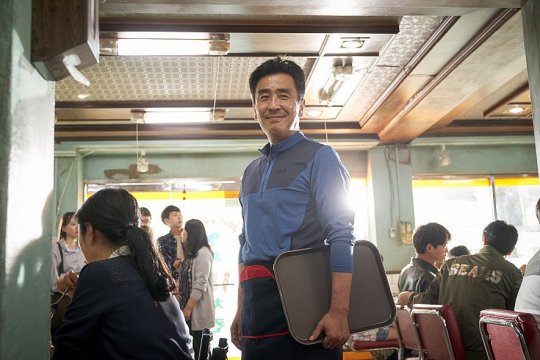
火遍各大影院的「極限職業」高班長。
Chief Go in Extreme Job has excited audiences in every cinema.
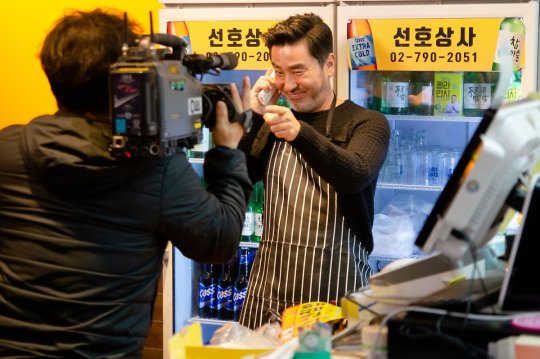
就算只是拿起電話也能讓人爆笑的高班長。
Chief Go can make you burst into laughter even just by picking up the phone.
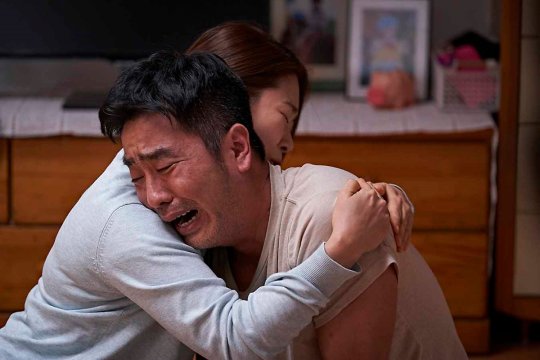
迴蕩在數千萬觀眾耳邊的經典台詞:迄今為止從未有過這樣的味道,這是排骨呢還是炸雞呢?
The classic lines lingering in mind of tens of millions of viewers: There has never been such a taste so far. Is it pork ribs or fried chicken?

今天我們也來試著改寫一下這句已經被無數人模仿過的經典台詞:迄今為止從未有過這樣的演員,他是「職業人」呢還是「自然人」呢?
Today we also want to rewrite the classic lines that already have been adapted by countless people: There has never been such an actor so far. Is he a professional actor or a nature-lover?
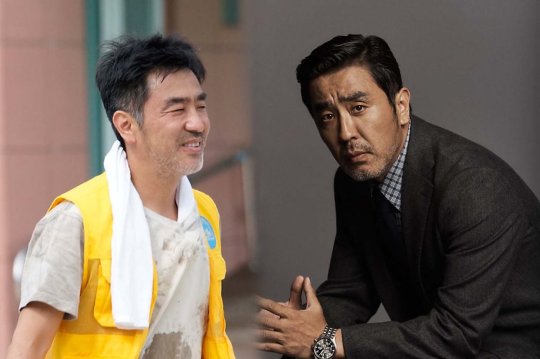
在作品內外呈現出180度反轉魅力的柳承龍會讓您徹底淪陷。
Ryu Seungryong will make you fall in love with him through his completely different charisma in and out of his works.
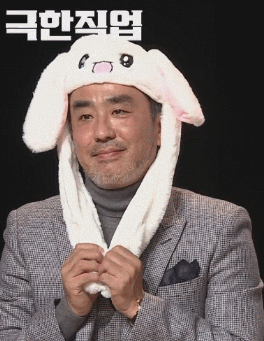
【職業人,職業演員柳承龍】
【Ryu Seungryong as professional actor】

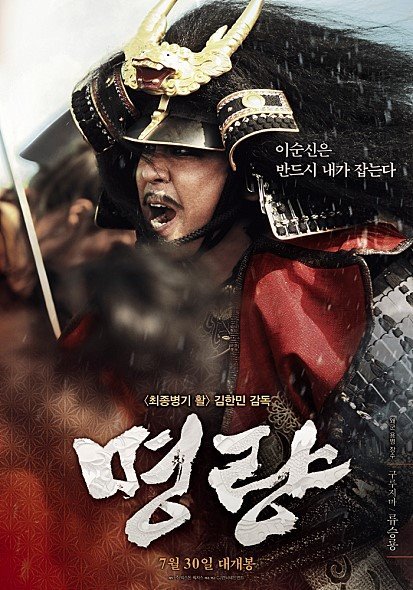

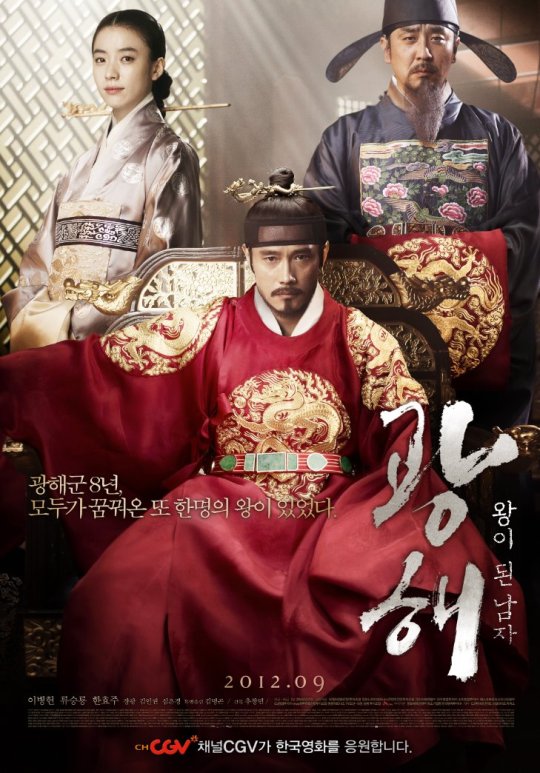
「四千萬演員」、「韓國首位喜劇電影雙千萬演員」……演員柳承龍被冠以各種頭銜。通過無數次地變換角色,他不斷扎實地完善著自己的作品世界。我們首先為您介紹的,是他在工作中閃耀的魅力。
“Forty Million Actor (means that he has starred in four films that have drawn over 10 million viewers each)”, “The first Korean actor who has starred in two comedy films that have drawn over 10 million viewers each” … Actor Ryu Seungryong was awarded various titles. By now he has played countless different roles, which contributed to the perfection of his “work world” solidly. Let’s take a look at his glamour at work firstly.
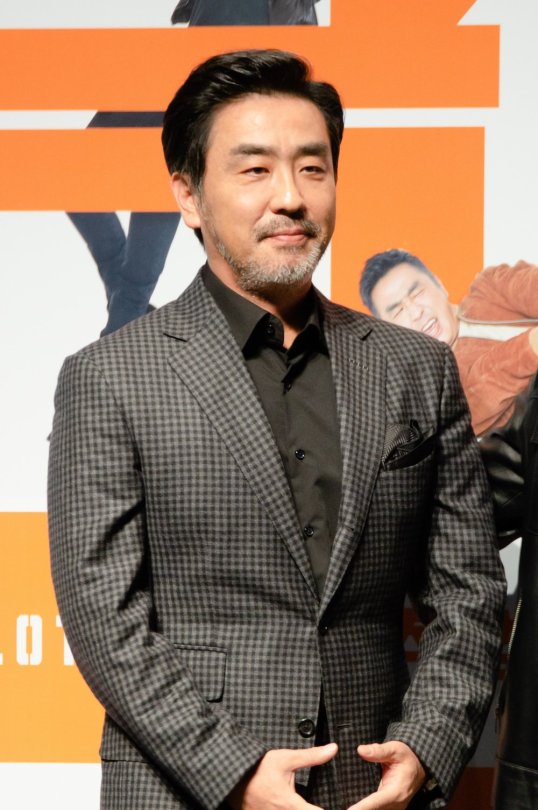
先來看看「極限職業」的製作發佈會現場。
This is the press conference of Extreme Job.
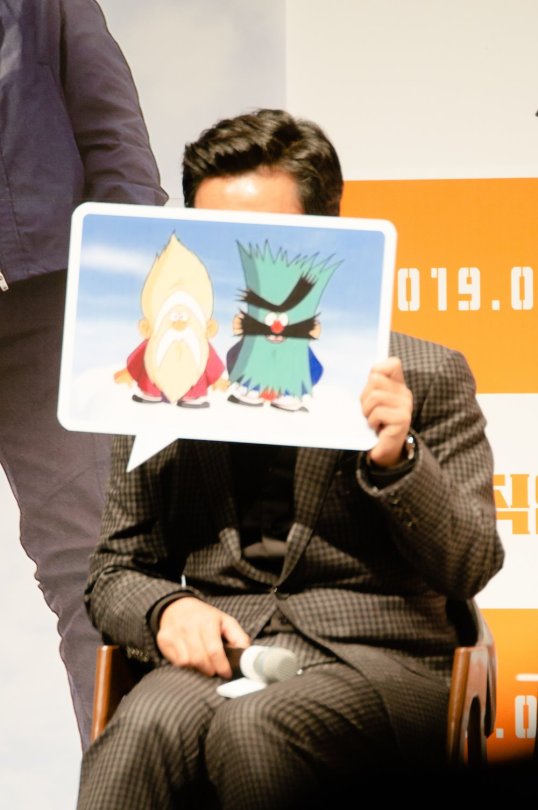
李炳憲導演曾說:「演員柳承龍就像是白菜道士和蘿蔔道士(指韓國動畫形象),有著驚人的才智,特別風趣幽默,能夠包容一切,真的很有道人的感覺。」
Director Lee Byunghun has said: “Actor Ryu Seungryong is like Cabbage Priest and Radish Priest (two images in a Korean animated drama). He’s really witty and humorous and can embrace everything.”
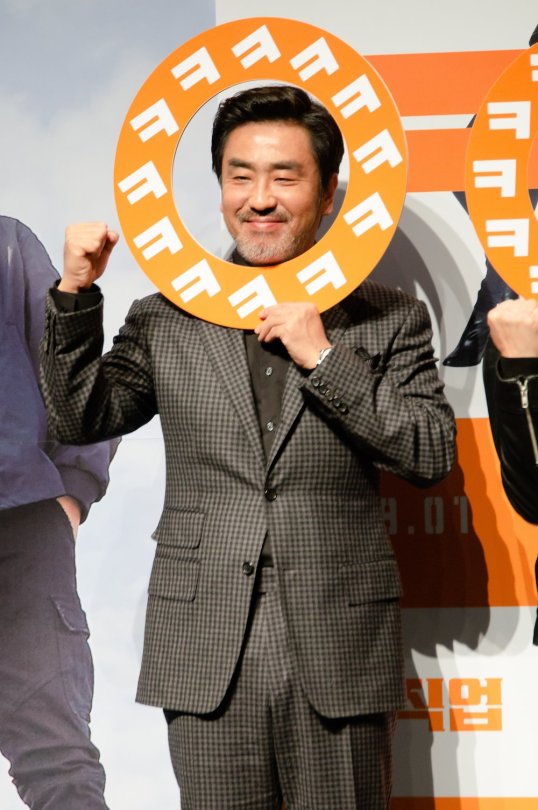
大家好,這裡是白菜道士和蘿蔔道士。
Hello everyone, I’m Cabbage Priest and Radish Priest.
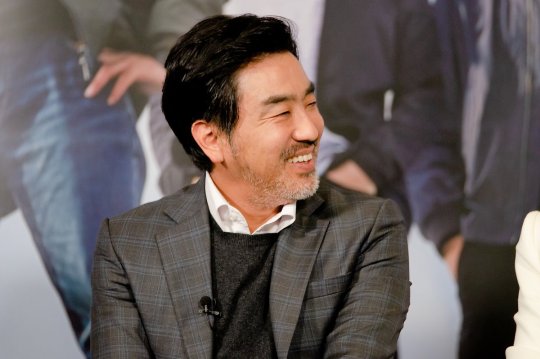
從一開始就充滿歡樂能量的「極限職業」宣傳現場!
The promotion of Extreme Job was full of joy from the beginning!
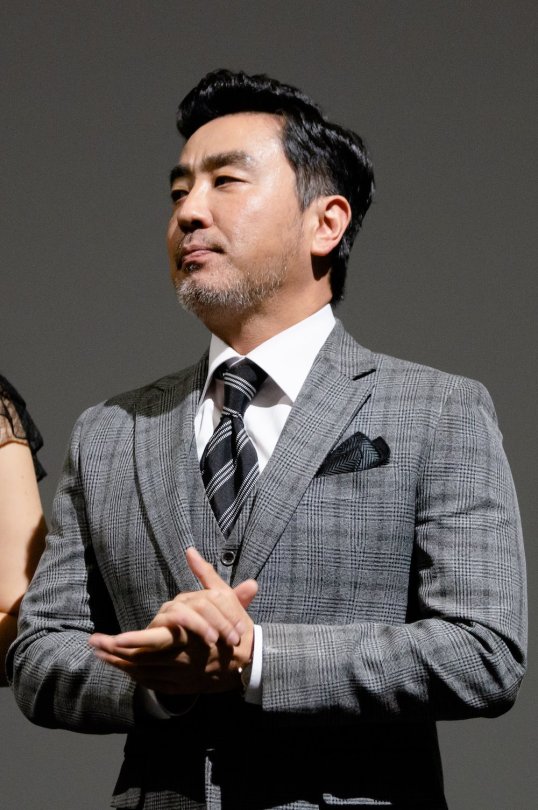
在媒體試映會上首次與記者們見面,不免有些緊張。
He was a little nervous when he met reporters for the first time at the preview.
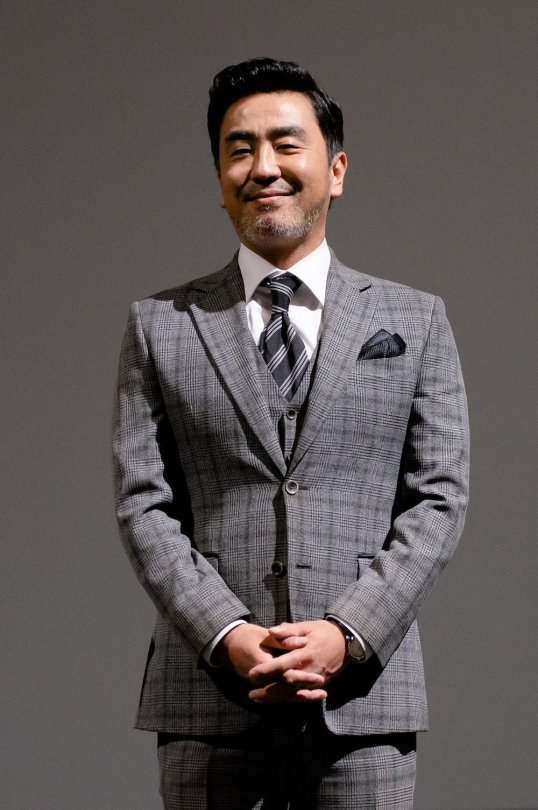
希望通過屏幕,原封不動地傳達自己在拍攝過程中感受到的幸福。在這個過程中,逐漸放鬆下來,找回了自信。
He wanted to convey all their happiness during the shooting of this film through the screen, which helped him relax and regain the confidence.
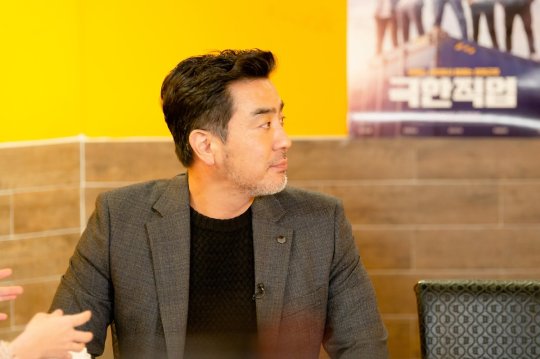
突然襲來的側顏殺。
His side face is gorgeous.
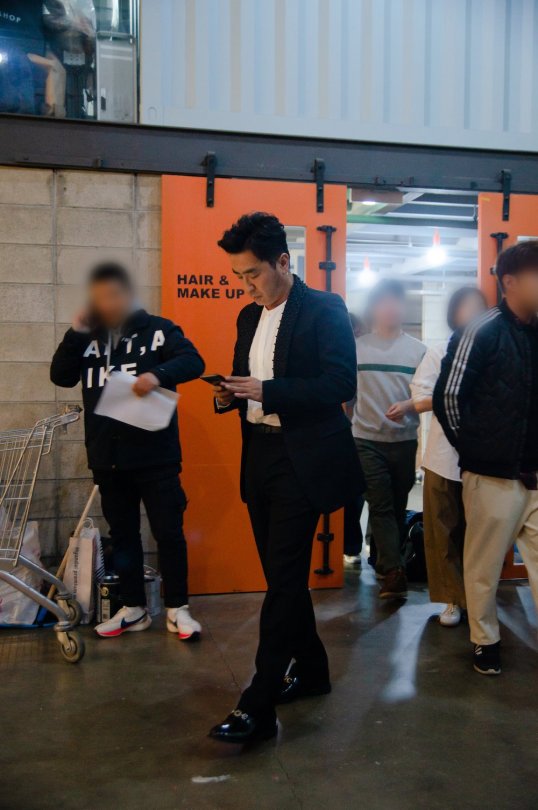
接下來是拍攝宣傳照的現場。
Now we should take photos for the promotion.

忠於影片概念的道具。#大蔥風格
Props loyal to the concept of this film. #Leek Swag
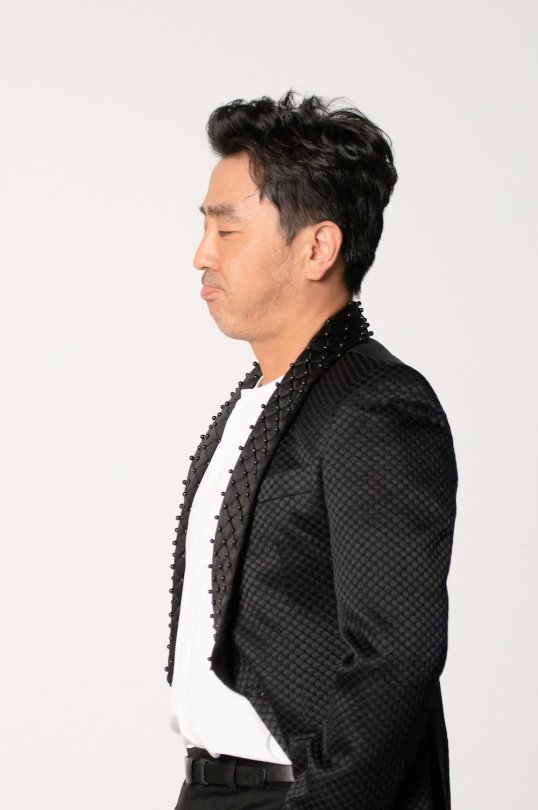
嗯……好像少了點什麼……
Let me see…It seems that something is missing…
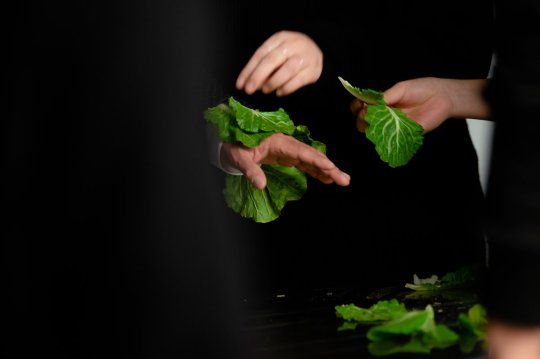
……?



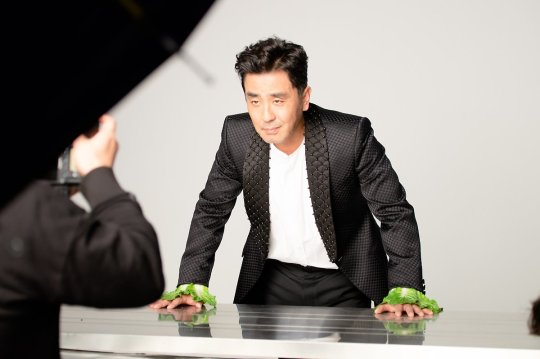
!!!!!
究竟為什麼白菜葉子從袖口出來了?
Why are the cabbages coming out of the sleeves?
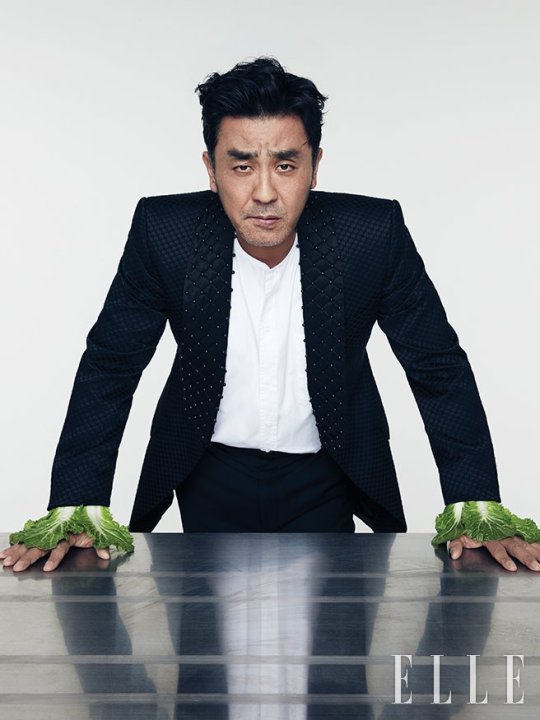
就這樣完成的定妝照。厲害了……
A-Cut is finished in this way. Fantastic…
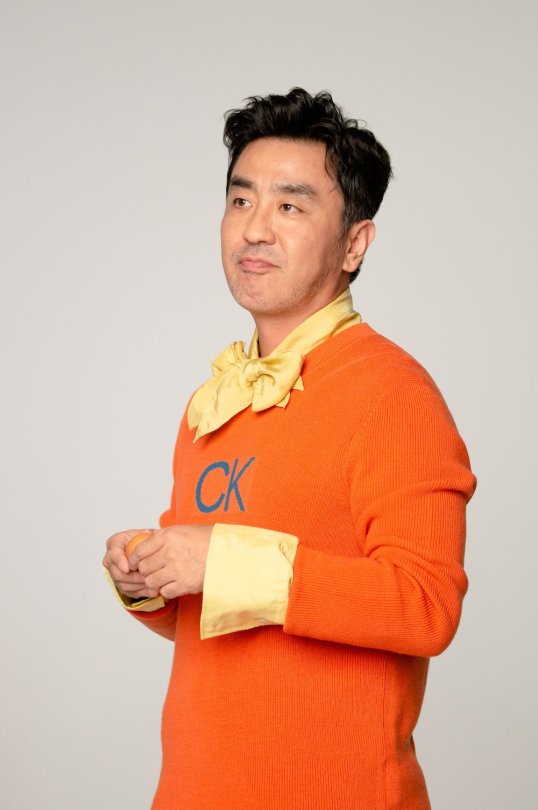
給柳承龍穿上這麼可愛的服裝的設計師在哪裡吖?
Where is the stylist who designed such a cute outfit for him?


請受我一拜!謝謝你喔!
Please accept my love! Thank you!
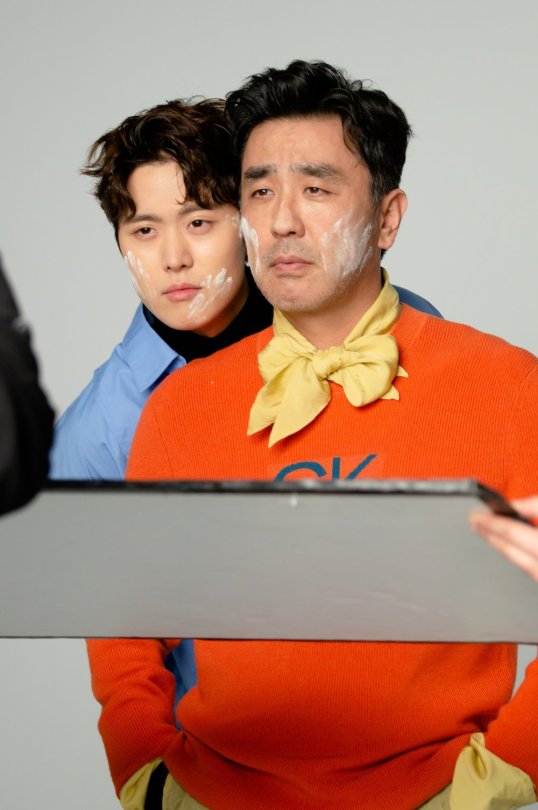
飾演「極限職業」中的可愛擔當宰勋的孔明和柳演員合拍了一張彩色大片。
孔明說 明明明!(參見跑男,當時全昭旻即興創作了這首兩行詩,其中「明明明」與韓語中的「汪汪汪」發音相似,全昭旻藉此意指孔明的小奶狗氣質)
A colourful photo with Gong Myung, who played the lovely detective Jaehoon in Extreme Job.
Gong Myung said, Myung Myung Myung! (In Running Man Jeon Somin improvised this acrostic poetry. The pronunciation of “Myung” is similar to the pronunciation of “Meong”, which means “Woof” in Korean. Jeon indicated the cuteness of Gong Myung like a dog.)
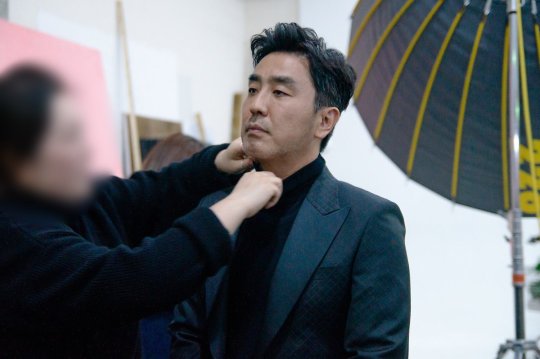
接下來的拍攝主題是黑色西裝!
Now we come to the part of Black Suit!
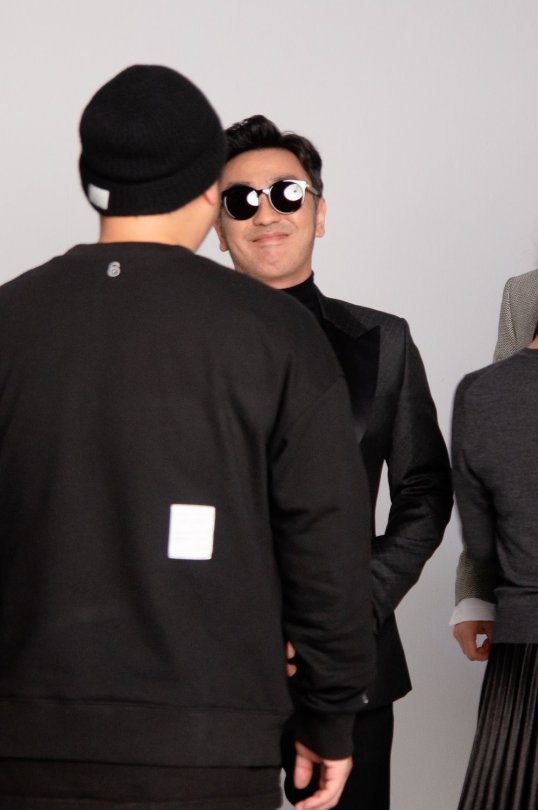
戴上了黑色的墨鏡。
Black sunglasses.
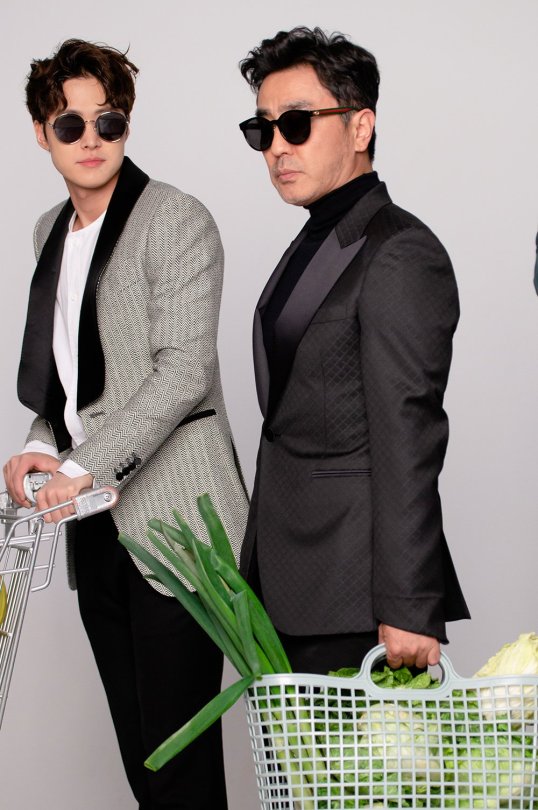
還拎上了……菜籃子?
And…Shopping basket?

對彩椒特別感興趣……
Especially love paprika…
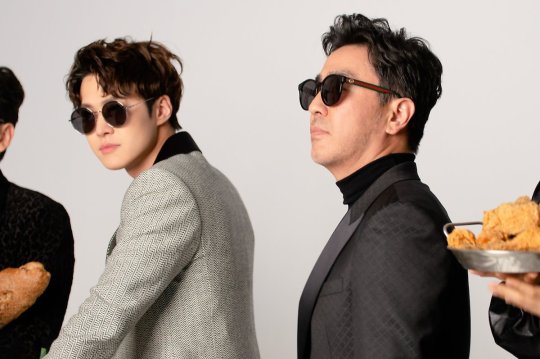
買個東西為什麼也搞這麼帥吶!
Why do you look so gorgeous when you’re just shopping?
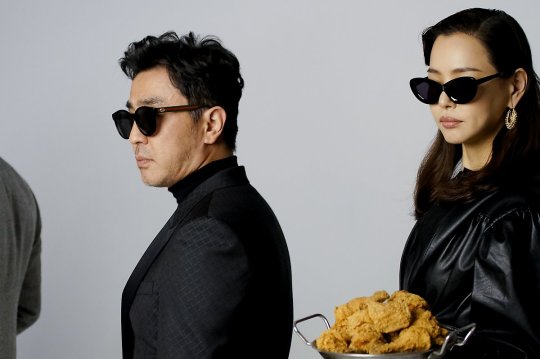
「極限職業」小隊的假面照。以及:国民美食炸雞是在遇到了完美演員李荷妮之後才變得如此玲瓏可人。
Persona of Extreme Job Team. And: The national cuisine - fried chicken didn’t become so elegant until it met perfect actress Lee Hanee.
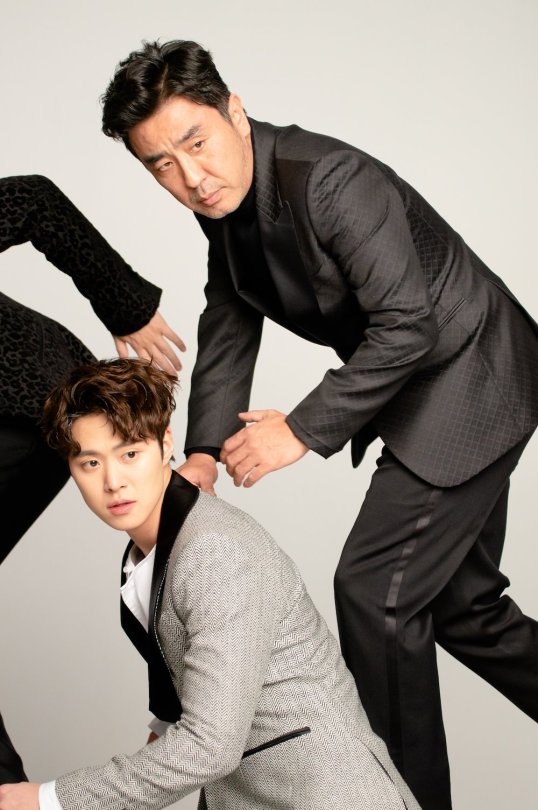
忙於採購的我們��一起去抓犯人了吧?
Now we should catch the criminal together since we’ve been busy shopping, right?
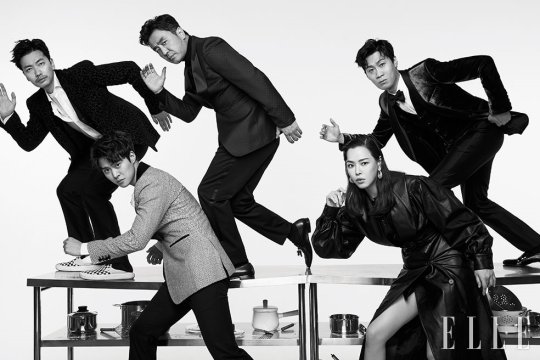
抓到了,就這張!
Got it, A-Cut!

抓到了,就是你!(此處借用了韓國警察吉祥物的經典台詞)
I got you! (The classic lines of the mascot of Korean police is parodied here.)
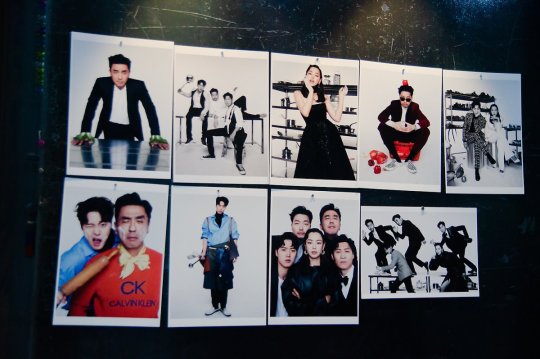
只要在一起就笑聲不斷的老鷹五兄妹的拍攝現場。
The set with Five Eagle Brothers and Sister is always full of joy.

吼吼~
Hee Hee~
演員柳承龍2019年1月的日程真是無縫銜接!
Actor Ryu Seungryong’s busy schedule for January 2019 is really “seamless”!
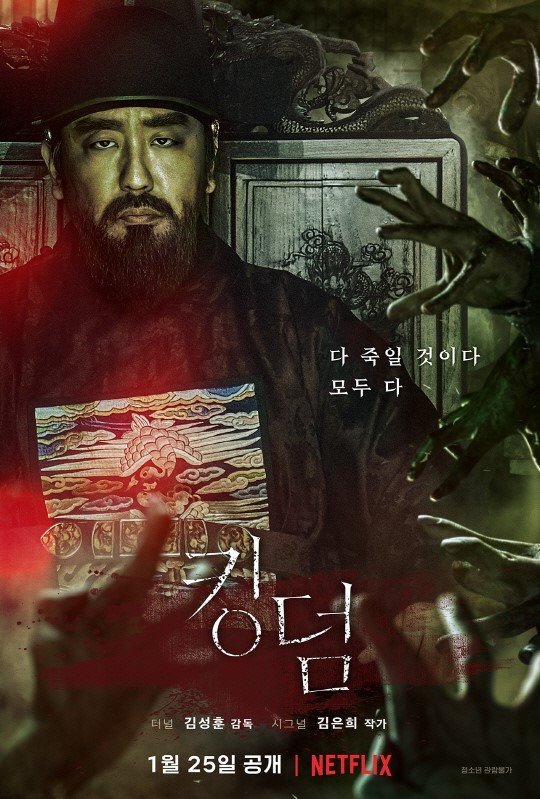
與「極限職業」同期上映的還有網飛原創影集「屍戰朝鮮」。
The original series Kingdom on Netflix was released at the same time as Extreme Job.
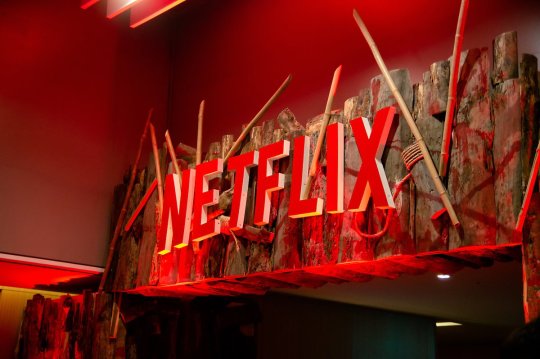
迄今為止從未有過這樣的活動,這是製作發佈會呢還是主題公園呢?僅從製作發佈會的規模就能感受到「屍戰朝鮮」的全球影響力!
There has never been such an event so far. Is it a press conference or a theme park? You can feel the popularity of this drama around the world just by the scale of this event!
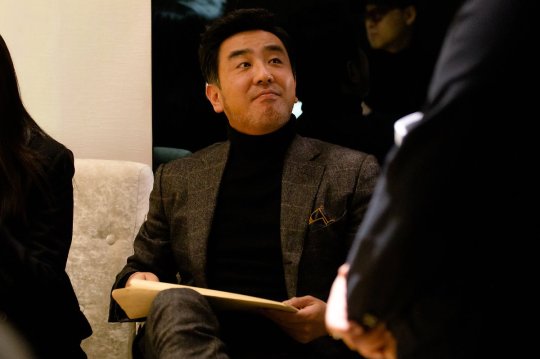
柳承龍依舊游刃有餘。
But Ryu Seungryong was still at ease.
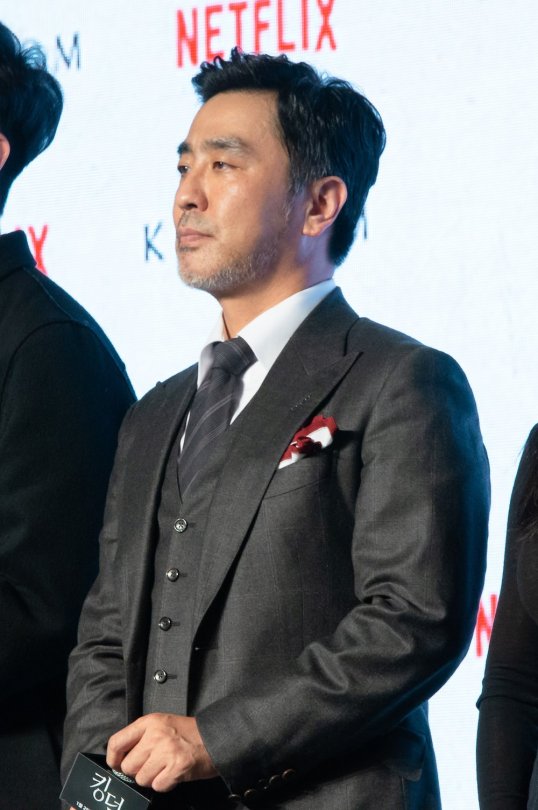
當晚舉辦的VIP紅毯首映禮。
VIP Preview - Red Carpet.
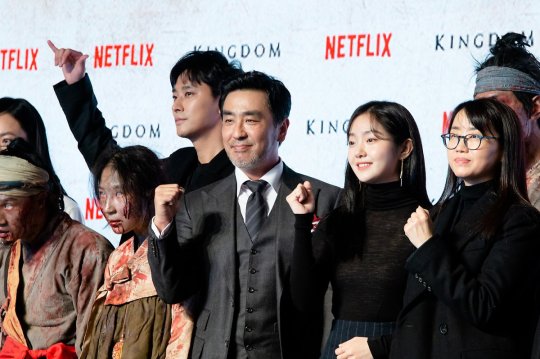
和「屍戰朝鮮」的主創人員們擺出各種造型。
Various poses of the cast and crew members of Kingdom.
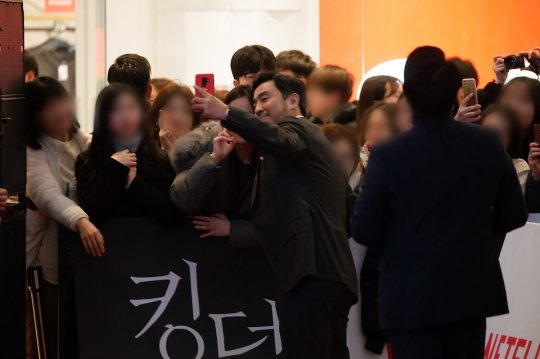
提起粉絲福利,就會想到柳承龍。
When it comes to the kindness to fans, you’ll think of Ryu Seungryong.
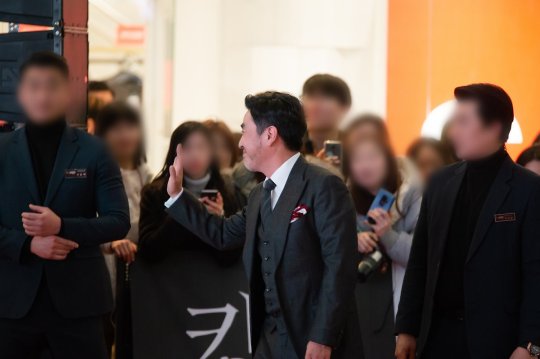
提起柳承龍,就會想到粉絲福利。
When it comes to Ryu Seungryong, you’ll think of his kindness to fans.

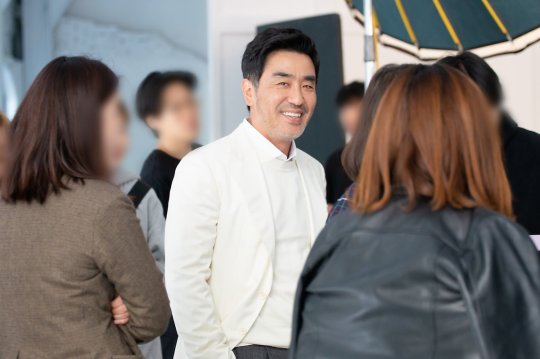
這回是另一處拍攝現象。看著我們露出燦爛微笑的甜心。
Here is another set. The sweet heart who smiled brightly at us.
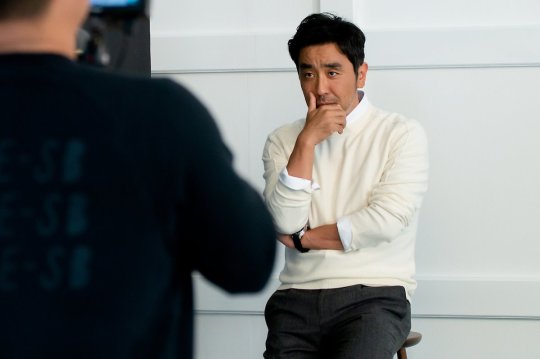
今天要拍攝「屍戰朝鮮」宣傳照。
Today we should take photos for the promotion of Kingdom.
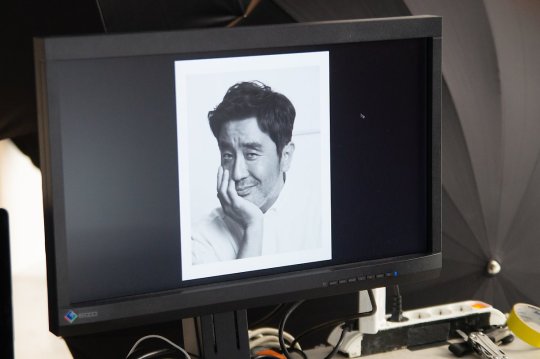
真理般的黑白照。
A great black-and-white photo.

向工作人員發射微笑子彈!砰砰砰~
Smile bullets fired at the staff! Bang Bang Bang~
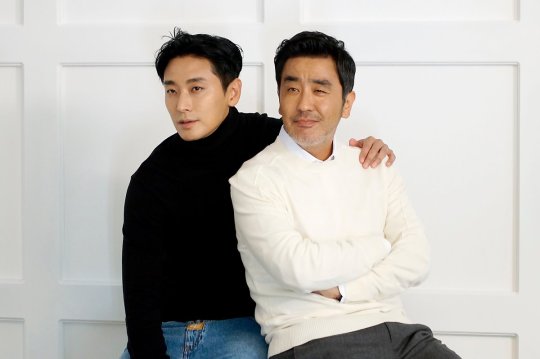
看看誰來了!
Who’s coming!
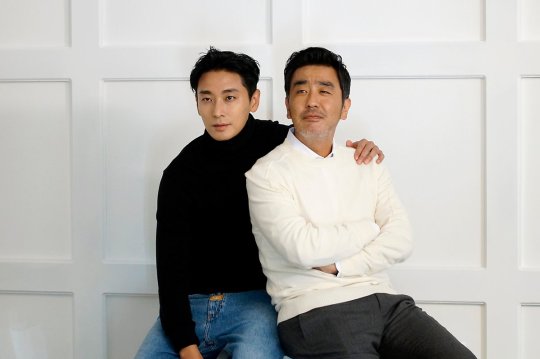
這不是最近的大勢演員朱智勛嗎!
The popular actor Ju Jihoon!
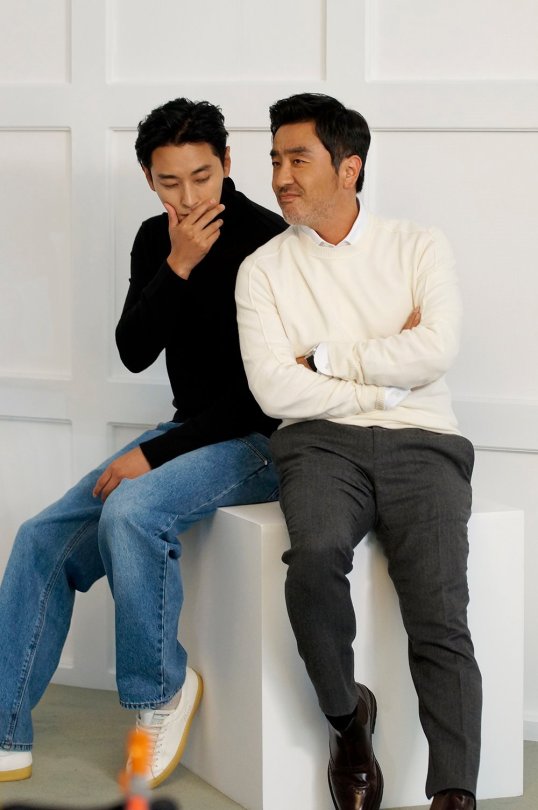
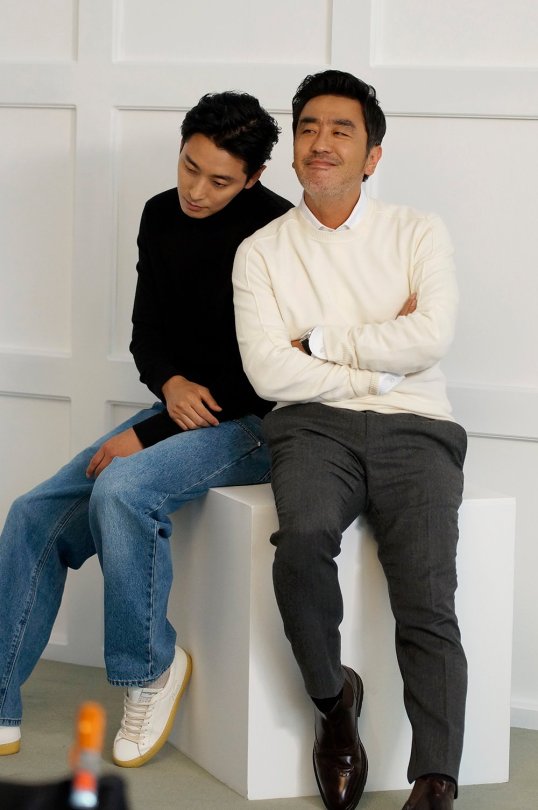
雖然兩人在劇中有著尖銳的矛盾,但這樣清新的化學反應真的好讚!
Although they’re in sharp contradiction with each other in drama, but the refreshing chemistry between them now is awesome!
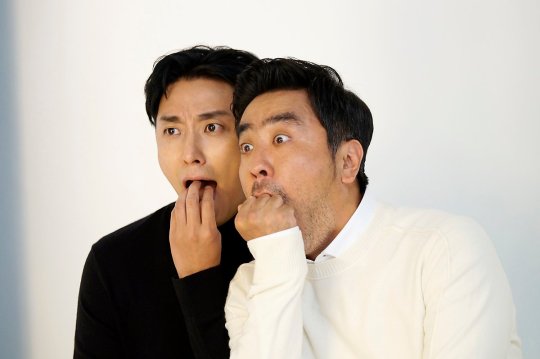
致命的男人們!
These deadly charming men!
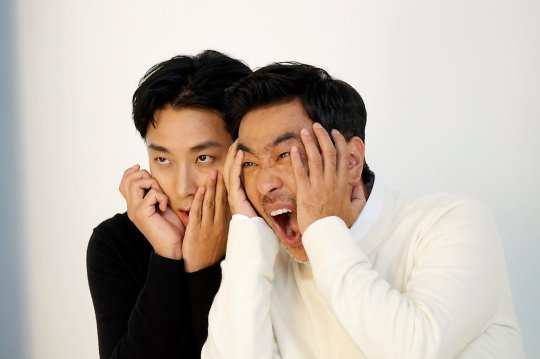
真的讓人無處可逃!
There’s nowhere to escape!

帥到沒朋友!
Too Handsome!
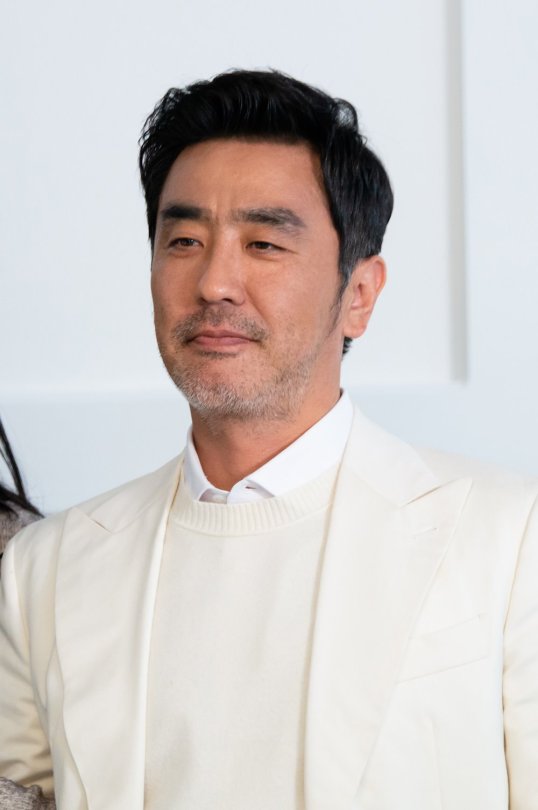
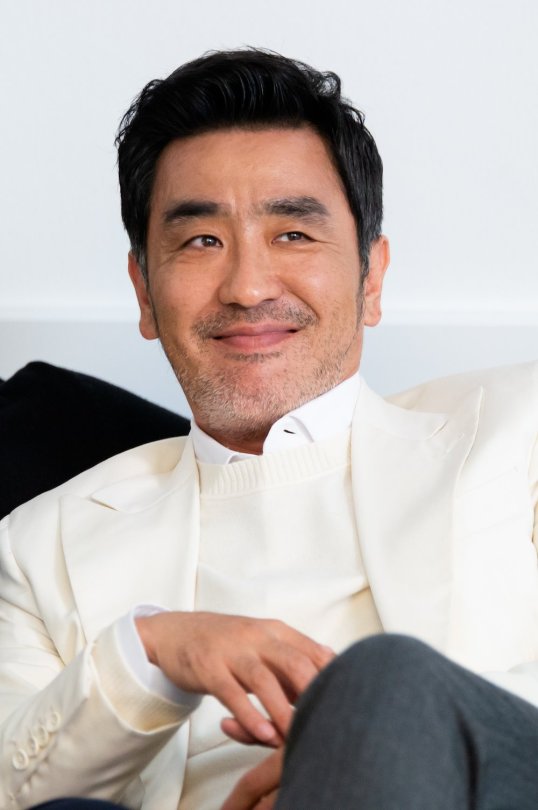
白色的龍龍固然帥炸天!
I know the white Ryong is extremely charming!
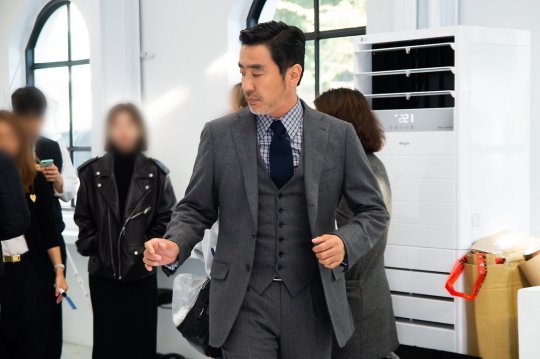
但是我們也不能放棄灰色的龍龍!
But we can’t give up the grey Ryong at the same time!
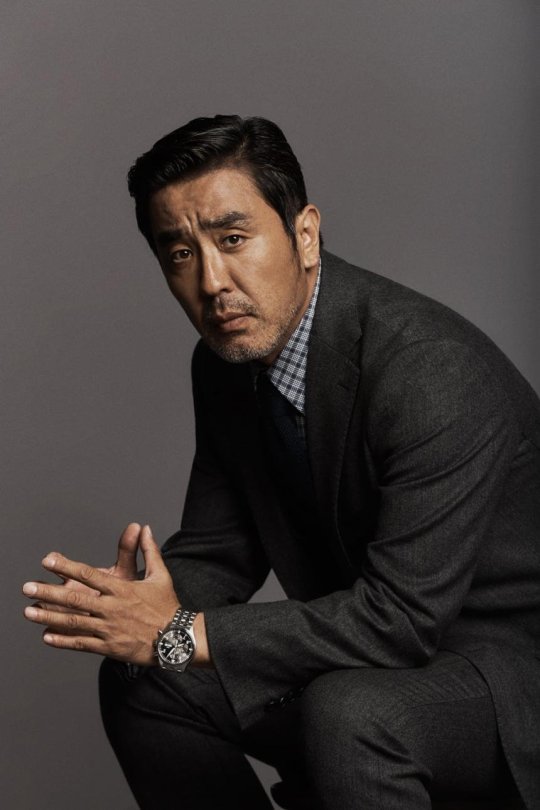
照片源自:網飛
source: Netflix
眼神一瞬間變得十分深沉。
His eyes became melancholy and meditative in a flash.
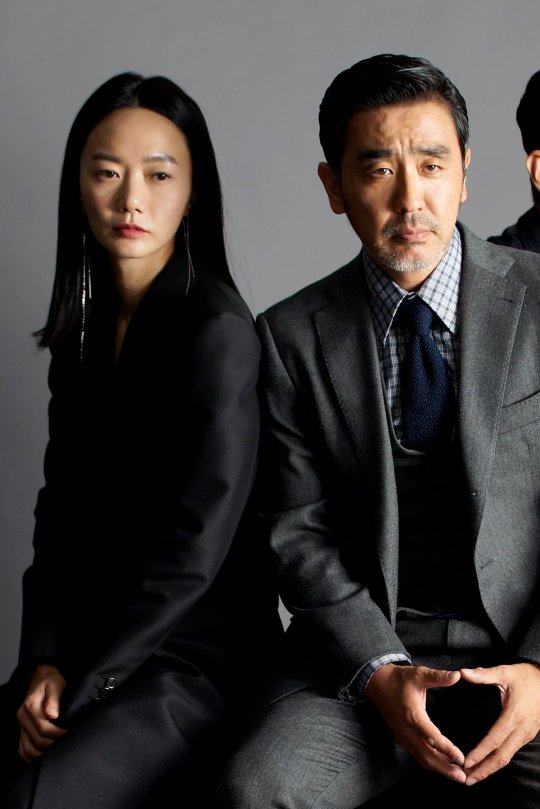
和世界級演員裴斗娜之間精彩的合作。
Wonderful cooperation with world-class actress Bae Doona.
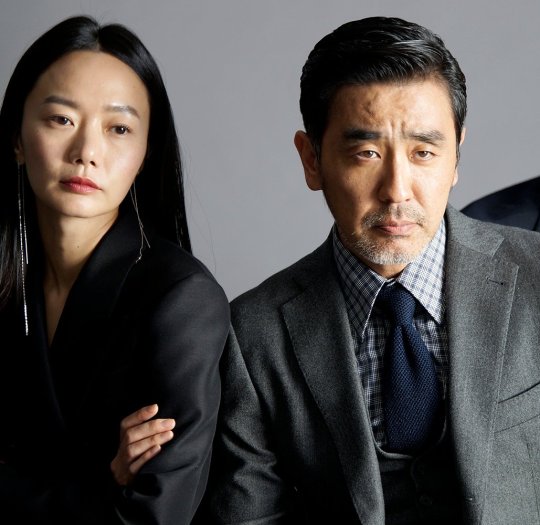
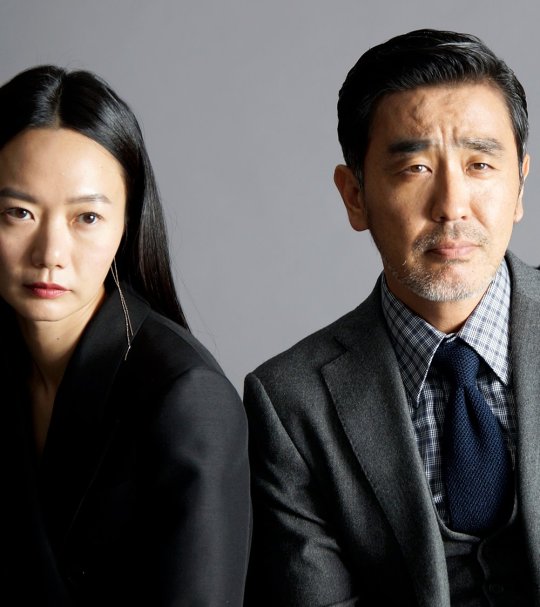
兩位演員以不同的色彩極大地豐富了「屍戰朝鮮」。
They enriched Kingdom greatly with their different “colours”.
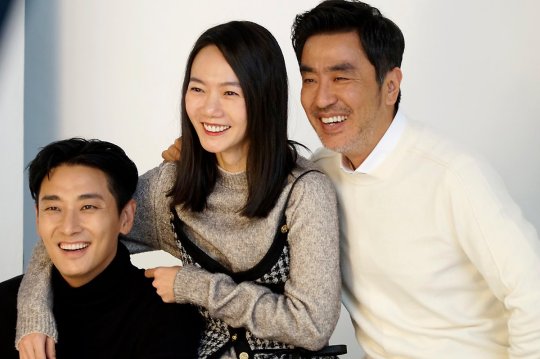
三位主演也愉快地合體!
Three actors came together happily!

完成了這場拍攝。
And finished all the photos.

到這裡,我們向您展示了柳承龍「職業人」的一面。作為一名職業演員,即使在辭舊迎新之際,也不忘努力工作。接下來,我們將向您展示柳承龍作為一名「自然人」的面貌。
This is the professional actor Ryu Seungryong. As a diligent actor, he always works hard, from the end of last year to the beginning of this year. Now you can see his image as a nature-lover.
【自然人,熱愛大自然的柳承龍】鏡頭之外的柳承龍的日常,總是和「路」、「木」、「林」這些字眼相伴。
【Ryu Seungryong as nature-lover】The daily life of Ryu Seungryong off camera can be described with the words “Road”, “Wood” and “Forest”.

柳承龍的大學同窗會定期策劃精彩的島上公演。今年夏天柳承龍也以工作人員的身份加入到了校友的行列中。
One of Ryu Seungryong’s alumni will plan for wonderful performances on island regularly. This summer Ryu Seungryong also joined in the activity as a staff member.
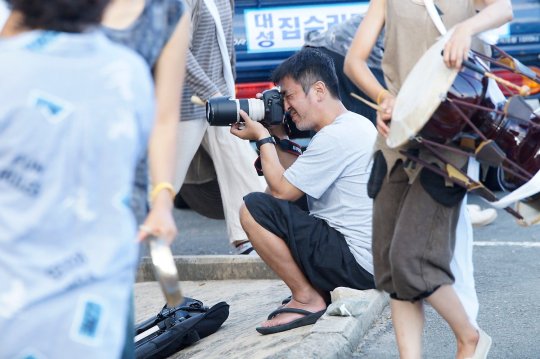
有時他擔任活動的攝影師。
Sometimes he works as a photographer.
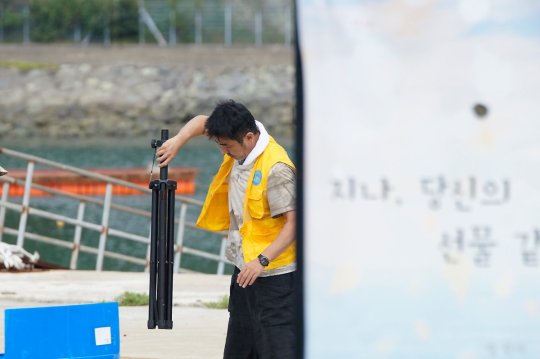
有時他幫忙搬運活動道具。
Sometimes he helps carry the props.
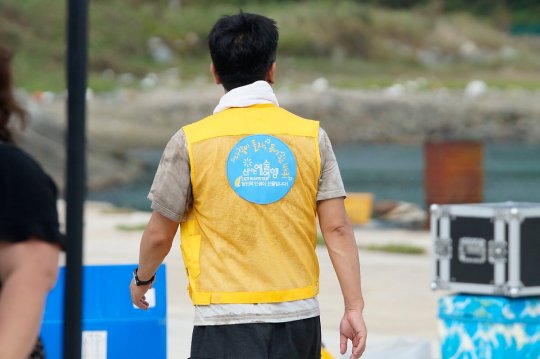
什麼工作都能勝任的他可謂以一當百。
He’s so versatile and can do any job.

樸素的著裝,隨和的樣子,讓人倍感親切的日常。這真的是剛才介紹的那位演員柳承龍!
This easy-going man with simple clothes is really the actor we introduced before!

這回他又要前往何處?
Where is he going?

原來是智異山的老姑壇。
This time he will go to Nogodan Peak of Jirisan Mountain.

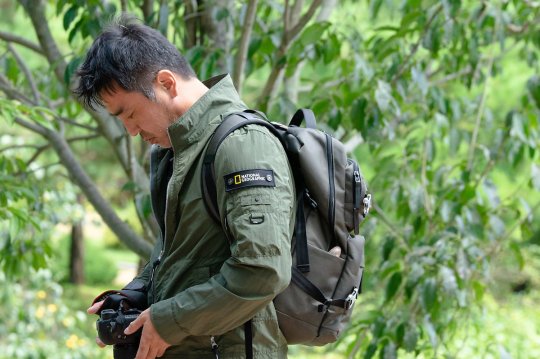
與自然為友、喜歡行走和記錄的柳承龍,於去年夏秋探訪了韓國文化遺產,並參與了Road Documentary的製作。
Ryu Seungryong likes being with nature. He enjoys walking and recording. In summer and autumn last year, he participated in the production of Road Documentary, in which he explored Korean cultural heritage.

他的足跡始於慶尚南道的晉州,直到韓國最北端江原道的揚口。
His footsteps started from Jinju in South Gyeongsang Province and reached Yanggu in Gangwon Province, the northernmost part of South Korea.

沿著白頭大幹一路北上(指朝鮮半島由白頭山至智異山的山脈),仔細品味蘊含在血脈中的歷史文化。
Walk along Baekdudaegan (the mountain range running through Korean Peninsula) from south to north, and experience the Korean history and culture.
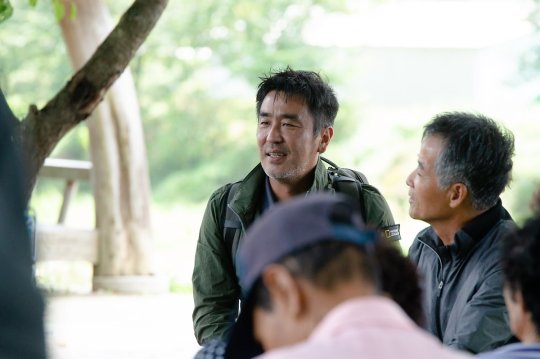
南原的盤索里,密陽的百中遊戲,晉州的劍舞,舒川的韓山苎麻夏布紡織,途径安城的男寺黨戲,直到揚口的突山嶺背架遊戲。
Pansori in Namwon, Baekjung Performance in Miryang, Geommu in Jinju, Hansan Ramie Fabric in Seocheon, Namsadang Performance in Anseong, Jigae (Korean traditional A-Frame back-carrier) Performance in Dolsallyeong of Yanggu.
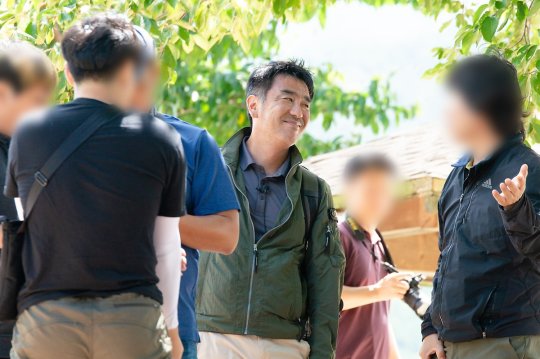
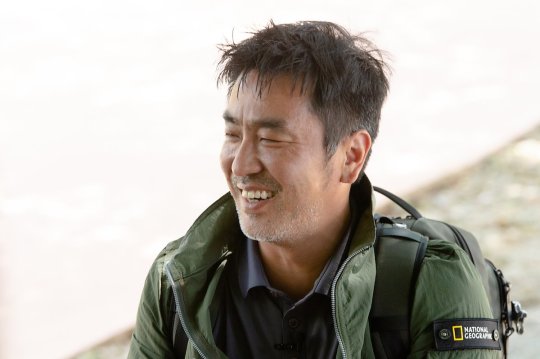
顺着白頭大幹的山脉及河流,亲身感受非物质文化遗产的魅力。
Experience the charming intangible cultural heritage along the mountains and rivers of Baekdudaegan.
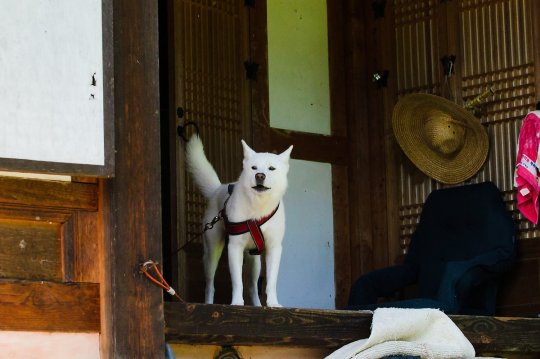
你好呀,小白!
Hello, Mr. White!
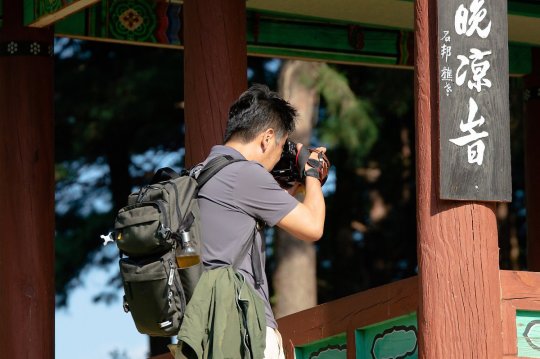
在這個過程中,柳承龍記錄著每一個瞬間。
Ryu Seungryong recorded every moment in this process.

盡情地享受著餘韻。
He enjoyed the aftertaste of this trip.

讓身心得到了洗禮。
And recharged his batteries.
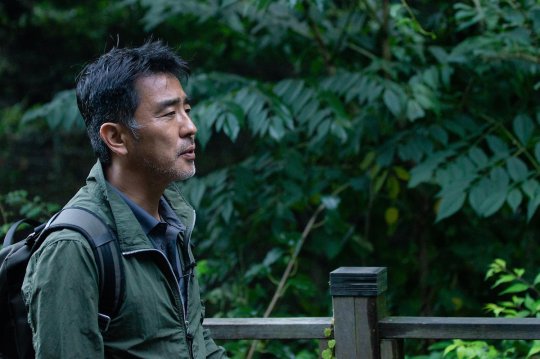
柳承龍將這樣的瞬間融進作品裡,化為另一種能量。
Ryu Seungryong integrated these moments into the documentary and turned them into another kind of energy.

EBS特輯紀錄片「柳承龍的白頭大幹文化遺產考察記」已可在EBS的官方網站上回看。
EBS special documentary “Ryu Seungryong’s exploration of cultural heritage along Baekdudaegan” is now available on EBS official website.

在這間工作室裡,可以感受木頭的紋理。
In this studio, you can feel the texture of wood.
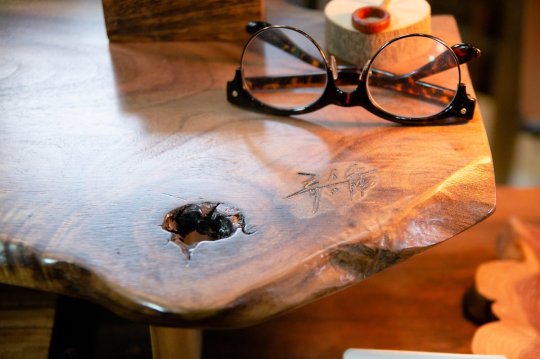

這些木製品上,刻有柳承龍的簽名。也許……?
The woodwork is engraved with Ryu Seungryong’s signature. Maybe…?

你猜對了!
You’re right!

親自挑選木材。
Select the wood personally.
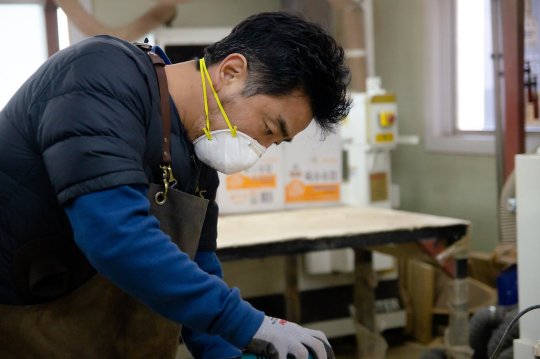
加工。
Wood processing.
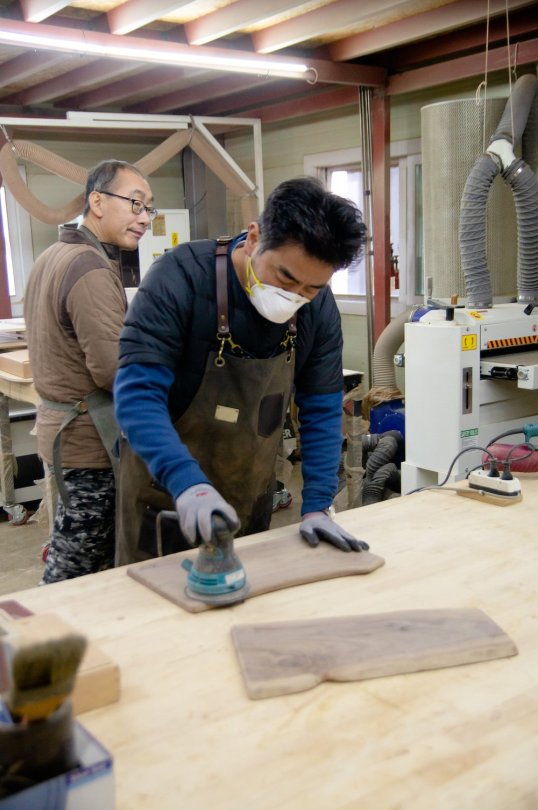

一塊多功能木板誕生了!
A multi-functional wood plate is finished!
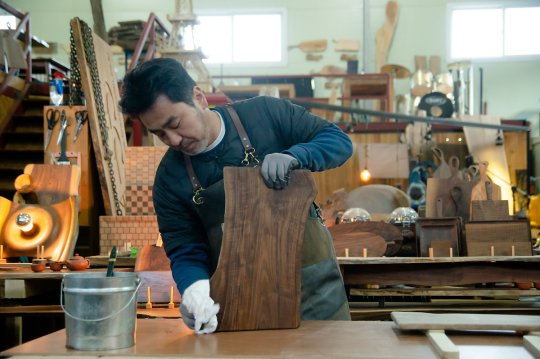
因為喜歡木頭帶來的舒心感而開始做木工。
Fall in love with woodworking because of the comfortable feeling when being with wood.

現在做木工不僅是他的愛好。
Now woodworking is not only his hobby.
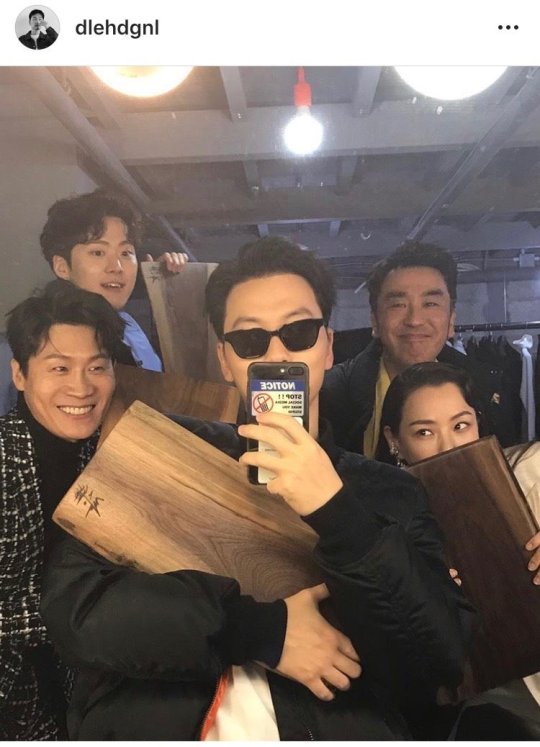
照片來源:演員李東輝的IG
source: Actor Lee Donghwi’s Instagram
更是他和珍重的人們分享喜悅的方式。
It’s also a way for him to share the happiness with the people he loves.
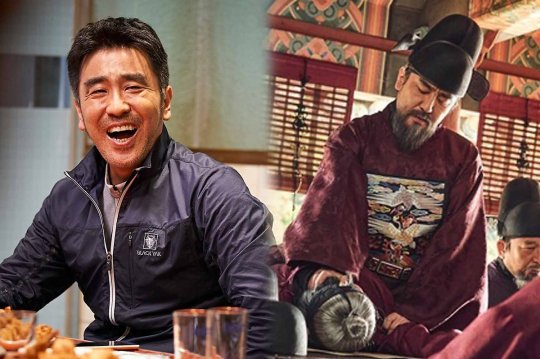
「極限職業」中的高班長和「屍戰朝鮮」中的趙學柱簡直是天壤之別,作品中的柳承龍和日常生活中的柳承龍也是判若兩人。百變之間,每張面孔共同構成了柳承龍。
It’s hard to believe that Chief Go in Extreme Job and Cho Hakju in Kingdom are played by the same actor. His images in works and in daily life are also very different. All these different aspects make up Ryu Seungryong.
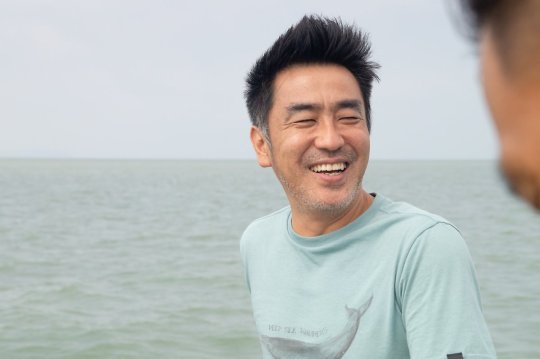
他是「職業人」呢還是「自然人」呢?對這個問題,我們的答案是:作為一名演員也好,作為一個人也好,他始終是那個充滿魅力的柳承龍!
Is he a professional actor or a nature-lover? Our answer is: Whether he’s a professional actor or a nature-lover, he’s just the charming Ryu Seungryong!

這就是今天我們為您帶來的消息!
This is what we bring you today!
……
你一定知道,這麼輕易地走掉不是我們的風格!所以現在是——彩蛋時間!
You must know that we won’t just go away easily! So now is Bonus Time!

你還好嗎?
Are you OK?
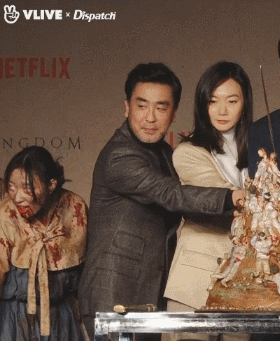
是不是要嚇死啦?
It’s really a big surprise!


被嚇到魂飛魄散的柳承龍先生在網上引起了熱議。
Frightened Mr. Ryu become a heated topic online.

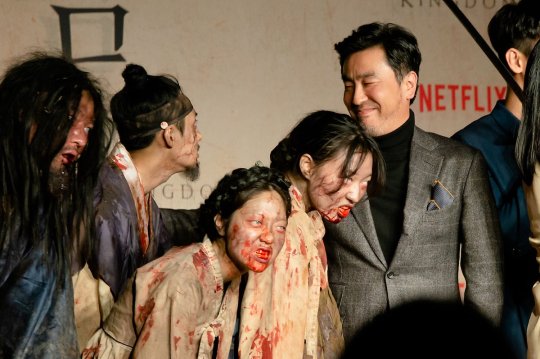
被嚇過之後,柳承龍緊緊地握著他們的手,向這些竭盡全力飾演喪屍的演員們表達衷心的感謝與鼓勵。
After being frightened, Ryu Seungryong held their hands with all his strength to express his sincere gratitude and encouragement to them who did their best to play zombies.
雖然還有很多照片沒有公佈,但也要放下遺憾,第N次去觀看「極限職業」!
Although there’re still lots of photos that haven’t been posted, we should let go of our regret and watch Extreme Job again!

嗖!
Whoosh!
在各自的位置上以極限的毅力和意志度過每一天的諸位!希望您在看過「極限職業」後,能以愉快的能量度過新年的每一天。
For those of you who spent last year with extreme perseverance and determination! We hope you can spend every day happily this year after watching Extreme Job.
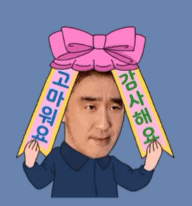


1 note
·
View note
Text
Symphogear, Ep. 1 (Cont)

So obviously, Hibiki lived. What, you thought she died? Nah, not yet.
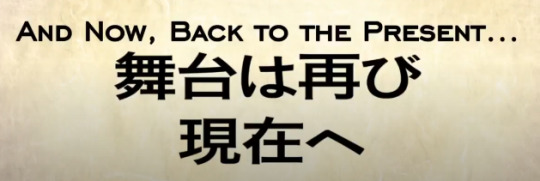
The show punts us back to the present.

And Hibiki’s in a brand new school! Looks good. It looks better than most University campuses. So it be in the psuedo-future, where pods and towers and glass are everywhere, and god knows how the condensation works in the building.

And it’s a music academy! Because fuck you, this is a musical anime. What, you thought she was going to a technical school? Trade school? No buddy. Better get with the choir ‘cause we singin’ out here.
All the teachers hate Hibiki, because she’s the world’s biggest goof.

This is karmically balanced by her having such a swanky dormitory that it outrivals most high end studio apartments. Look at this shit. Look how many square feet that is. A family could live in here. Is she paying for this? How can you afford this?

“i saved my money”
Her roommate? It should be obvious.

Her soon-to-be wife. This is not an exaggeration. She literally acts like her housewife. This is something even the voice actresses keep in mind. It’s that ingrained.

I... what? But. But they do...

She loves her idiot girlfriend.
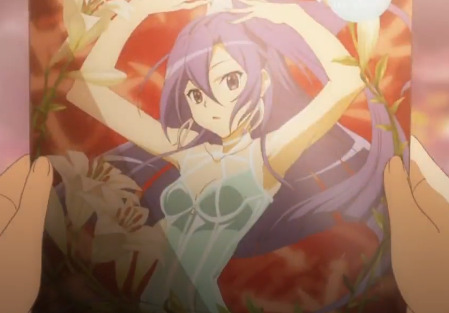
Tsubasa is going solo for depressingly obvious reasons. Also, she goes to this school! Nobody really cares, though. It’s sorta weird really, you’d think more people would freak out that a pop star of national acclaim would be getting classes at their school, but nah! Not a damn person cares. It’s just the usual.

Oh right. Hibiki cares. That’s real fucking creepy, Hibiki.
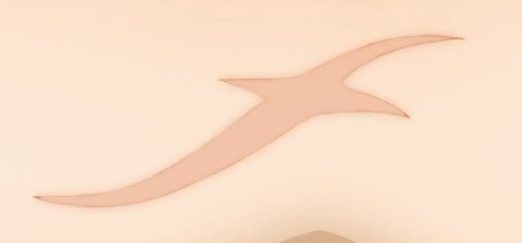
This scar is important. It’s what she got after the whole incident. You might say it’s going to show off her... forte! Eh? Eh...? ‘Cause, ‘cause it’s a forte symbol, and it means force in italian, and it means she’s gonna get stronger, and... okay. Okay, I’ll shut up.
Harry Potter jokes aside, Hibiki isn’t just tailing Tsubasa to be a creepy stalker. She wants answers; mainly an explanation for what the fuck happened during that whole Noisefest 2017 thing, and why they were in admittedly cool outfits singing to themselves without any music (because presumably the music is only in our perspective, not theirs).

Hibiki’s really hung up about not dying, and she’s worried the whole Symphogear revelation was just part of a near death hallucination. Like seeing angels right before dying, except a bit more anime.

Anyway, time to go to sleep together with your bestest friend in the whole wide world who clearly would not marry you at the drop of a dime.

In the top bunk of a bunk bed. Clearly heterosexual behavior. Straight as straight can be.

Meanwhile the Noise are wrecking shop in some undisclosed location somewhere as the military keeps attacking them.

This is a bad time to point out that guns, bullets, and all conventional artillery and means of warfare have no effect on the Noise. This is also a bad time to remind you that this is not the first altercation; so much so that civilians are on a first name basis with them.

“i am literally being thrown into a meat grinder”

Tsubasa shows up explicitly to clown on the military, putting the F. U. in SNAFU.

Tsubasa is currently an angsty gay mess. Her girlfriend’s gone, she’s in the same school as the person she sacrificed her life for, and she’s real fucking lonely. Also her family sucks ass. I mean real ass. Not the traditional ass. We’re talking advanced ass.

Abridged footage of Tsubasa defeating the Noise.

“why the fuck were we even sent out to begin with”

Meanwhile at Lydian, where fully stocked healthy buffet options are just The Norm in this cafeteria. You know, just making more higher tier casual food restaurants be put to shame by this.
Hibiki eats the SHIT out of things. Spiritually, she’s basically Goku.
Tsubasa comes in and some girls sorta lose their shit but otherwise they’re really keeping it together for being near a celebrity. Hibiki gets up and-

“uhhhhhhhh hi”

Awkward sniffing noises.

“aw damn shits gettin real too bad i cant watch this i got a four course meal to get to HA CHA CHA”

And in a single hand gesture, Tsubasa absolutely destroys the shit out of Hibiki.

Annihilated. Never living that one down. Total destruction of her ego.


You know it’s bad when even your girlfriend-to-be roasts you for it.

Yeah, pirating is the only way to get the- I mean! Digital goods are only to be retrieved through purchase.
Anyway. Our lovely little nerd sets off to buy some limited edition CDs of her favorite idol and also her classmate, Tsubasa; the clipped wing of Zwei Wing. A fitting, but unfortunatre title. Hibiki is all giddy about this until her Hibiki sense tingles.

The patented HibikiSense technology only goes off in two scenarios: When she’s hungry, and when she’s in danger. Using her limited, but sharpened, braincells, Hibiki understands that she already ate several times. So the only thing left is-

You know, you’d think there’d be zone warnings about this kind of stuff it happens on the regular. But this is Hibiki, so she probably never paid attention to them.

Intense fax noises in brain.
Hibiki, being A Good Person, goes out of her way to save a little girl she heard in danger.
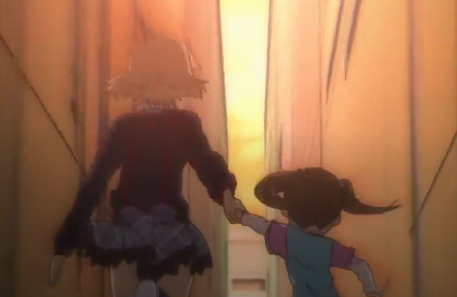
Weirdly, the day changed rapidly, but fuck it, we all know it’s for the drama.

I want you to take a moment to process this picture. How long do you think the Noise have just been standing there to catch those two? Do you think they all collectively went “You know, they’re gonna end up here, so let’s just wait it out for a bit.” And then just stood there for hours? These are the things that keep me up at night.

Hibiki makes her run to the shelter with the girl, but failed to realize having 4 meals in succession is a real bad thing to do before running what culminates a triathlon.
Hibiki remembers Kanade’s words of advice, though. They ring out something like:
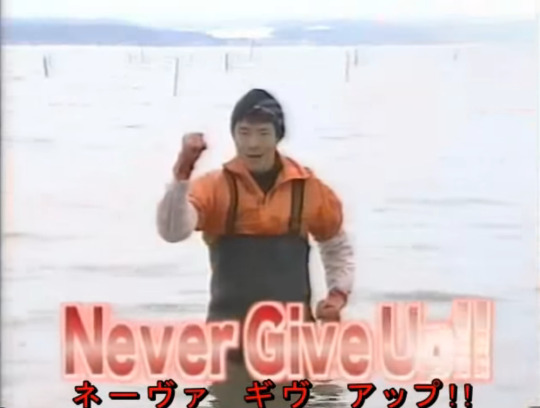
So she keeps going. And going. And going.

What a thrill...
She makes it to the roof of some... power facility complex? With strong Megaman vibes? And they hide out there, blissfully unaware that this does not stop something that has rockets phase right through them. And can, y’know, fly.

Surprise, motherfucker. Thought you saw the last of me.
Cornered, and out of options, she does what any main protagonist would do in the worst possible situation.
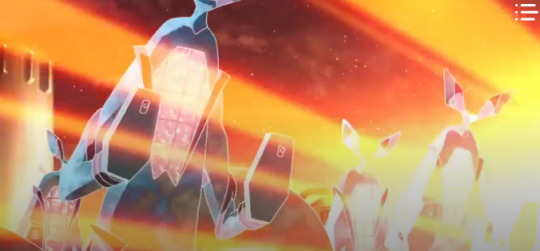
Whips out some good ol’ fashioned superpowers, baby!
Even the noise are confused! They literally look at each other and go “uhhh, what” and wonder what the fuck is going on!

“ohhhhhhh my GODDDDD WHY IS THIS HAPPENING MY EYES”

Naturally it’s just GOTTA be an EVENT everybody’s gotta know about.

“oh my god the gaydar’s OFF THE CHARTS”

The impact of this is that this is Kanade’s old relic, which was used as the basis of her Symphogear. This gives two implications: She’s alive (she can’t be), or someone else is wearing her duds in a hand-me-down fashion.

GUNGIR DATTO?!

“no fucking why. is. is she alive? she cant be. she died in my fucking arms. i SAW her die. how the fuck- who stole her clothes? thats impossible. oh my fucking god. my brain cant take this. who the fuck is running around in my deceased girlfriend’s clothes. im going to fuck them up so bad. im going to rewire their skeleton so they have legs for arms. theyre gonna be lanky fucking kong once i get my hands on them. ohhhh my god. i need to destress at panera or something. fuck. oh my fucking god.”
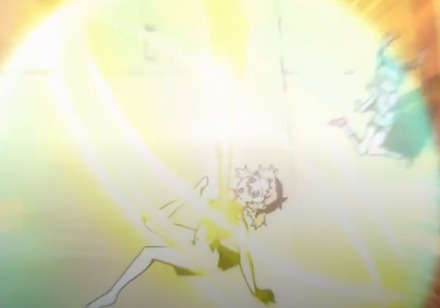
As the elemental piss stream vortex keeps pulsating out of Hibiki’s chest like a strange, pulsating flashlight of energy, her very body transforms to embrace the relic and become..
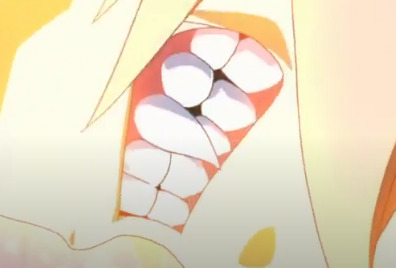
Feral? She’s turning feral? Oh shit. I didn’t remember this. Oh boy. Better go see a dentist later.
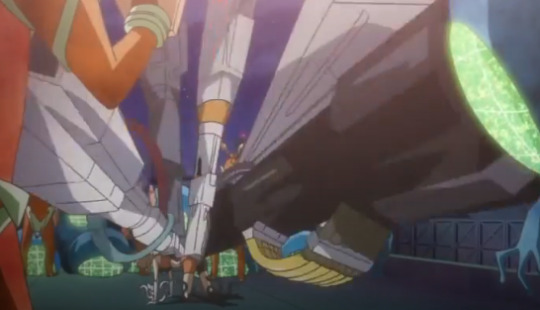
Oh Jesus Christ.
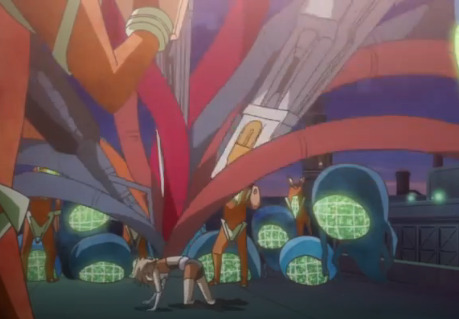
I hope you never watch AKIRA, Hibiki.

Oh. Oh, you thought this was gonna be a happy transformation? You thought wrong, viewer. Hibiki is no longer fucking around. And to think, this is just the beginning...
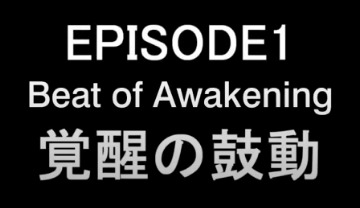
36 notes
·
View notes